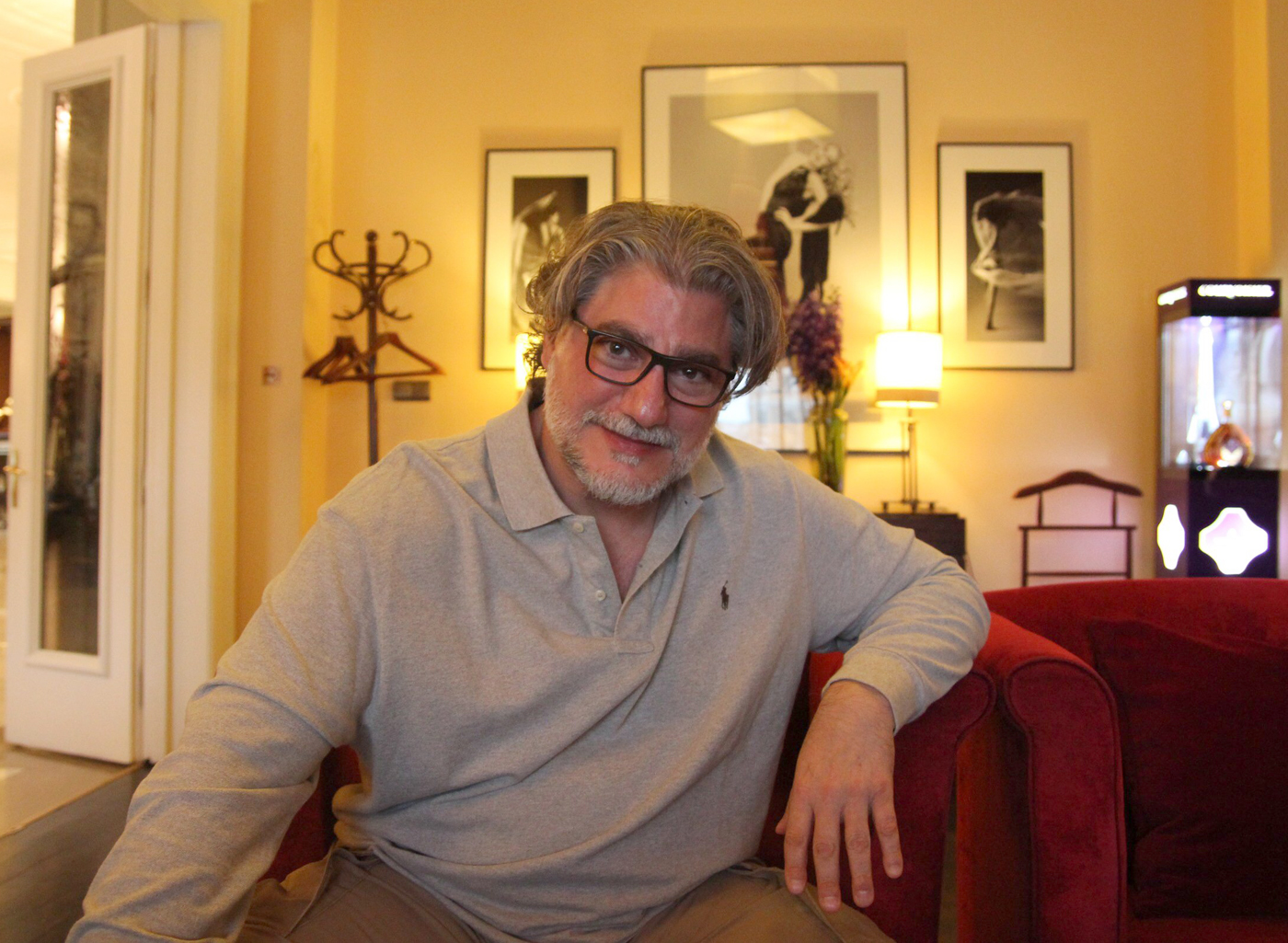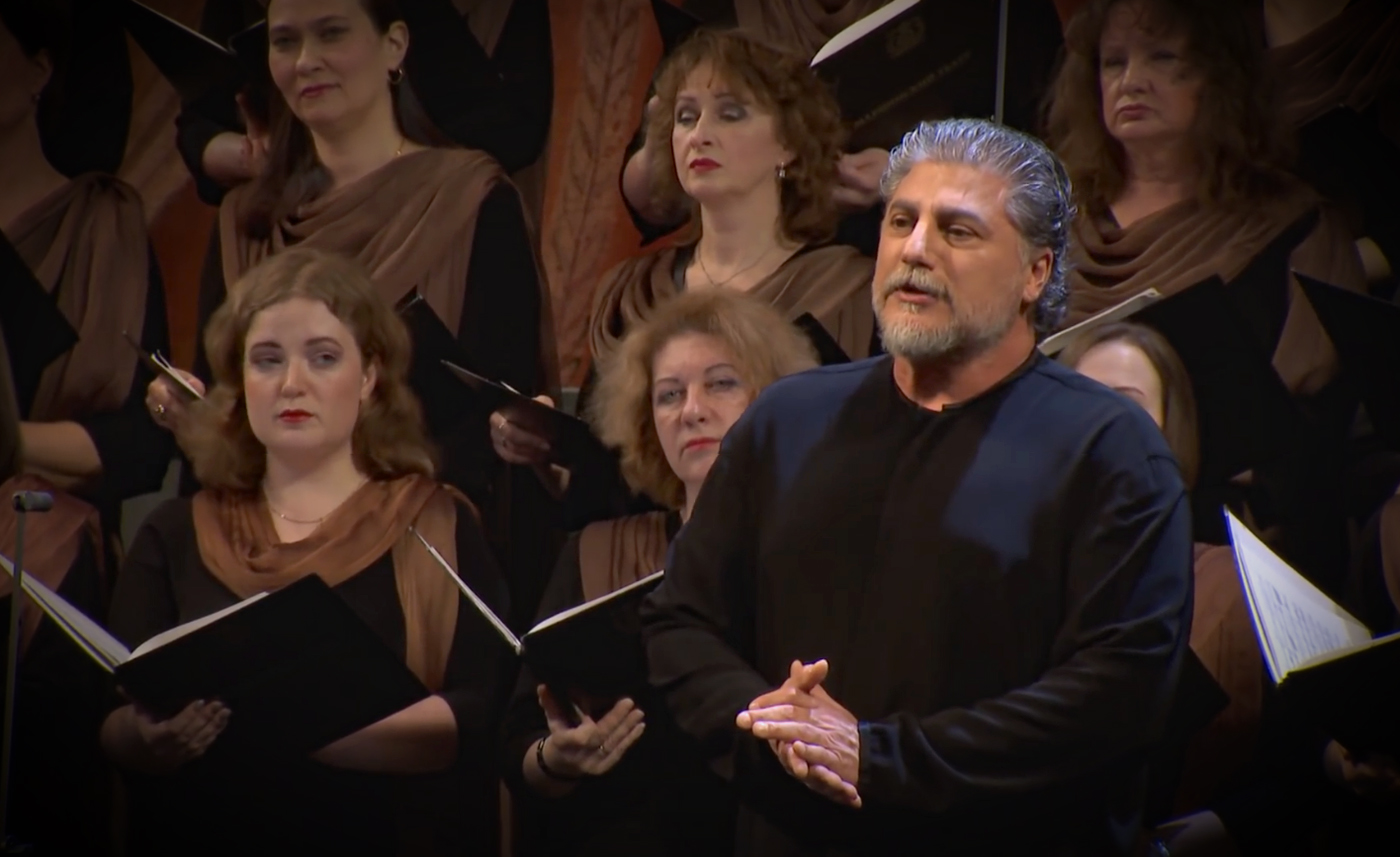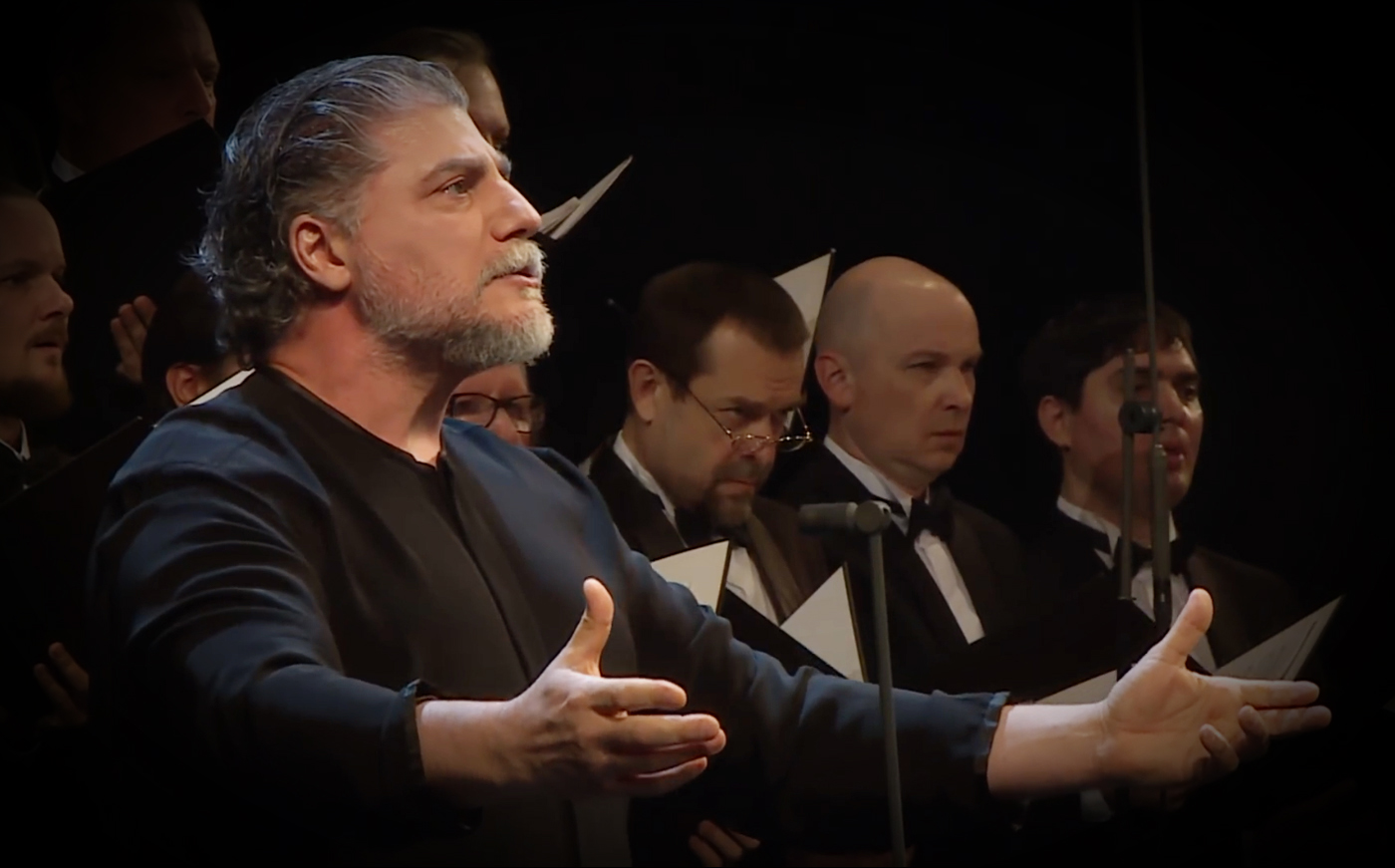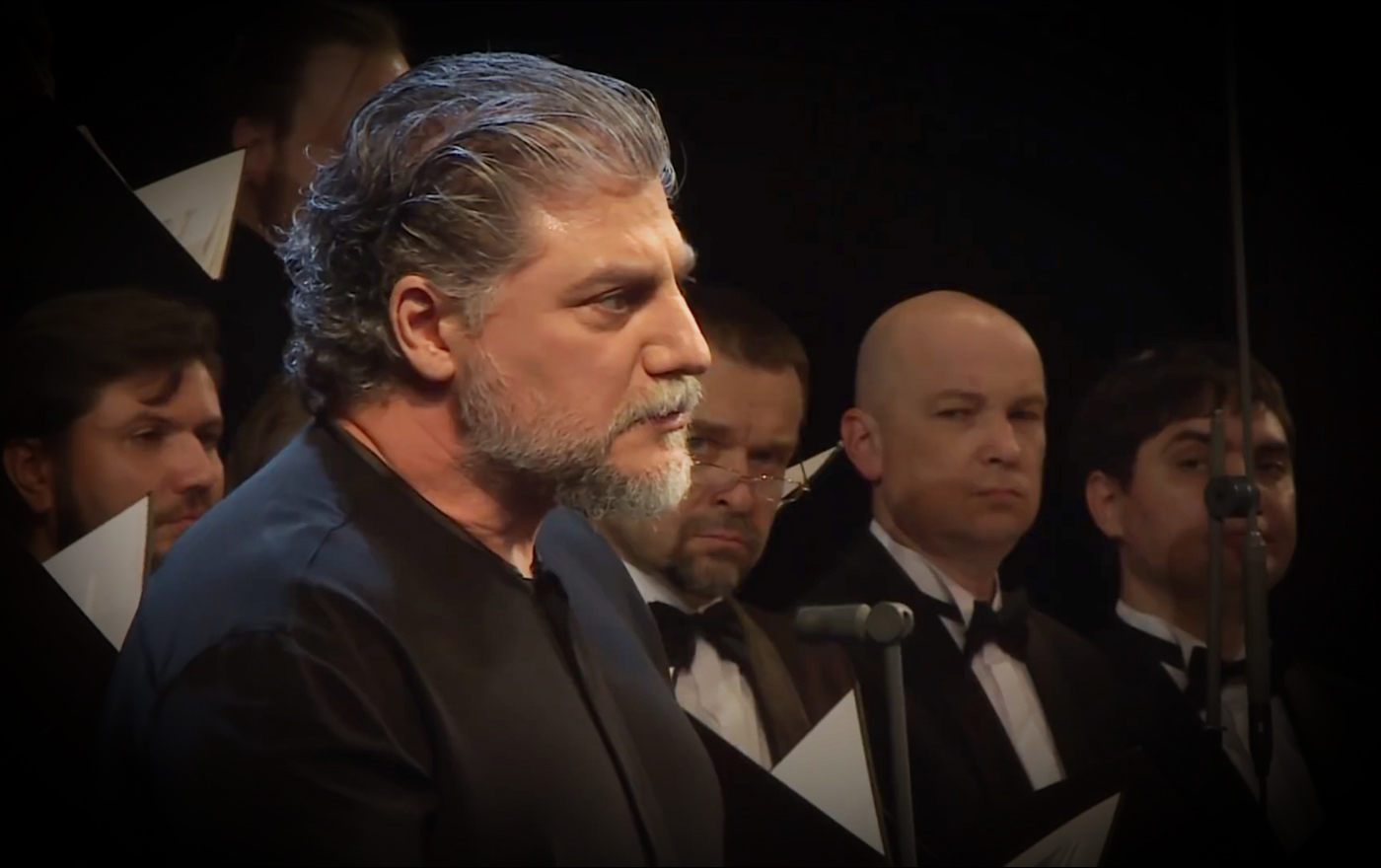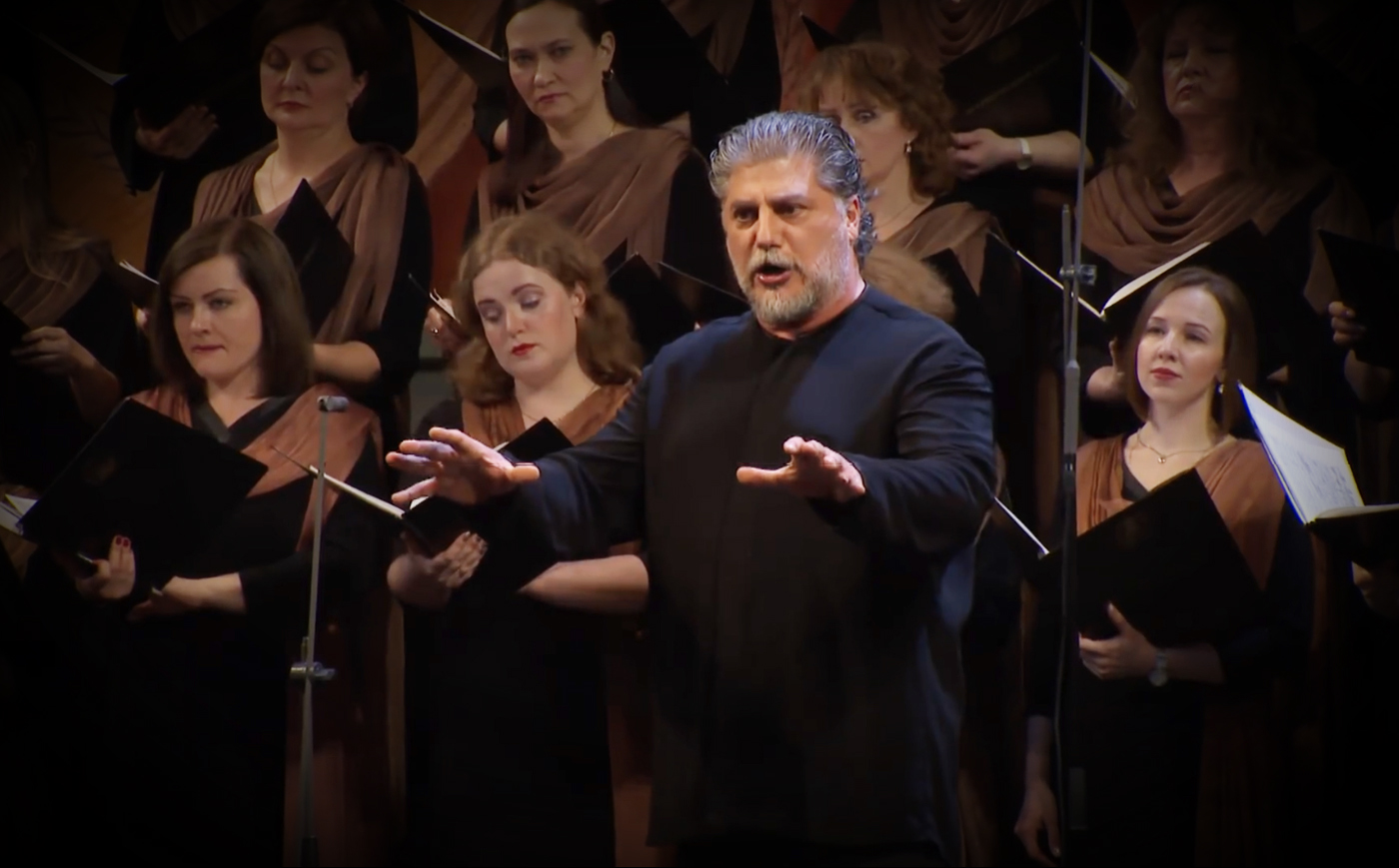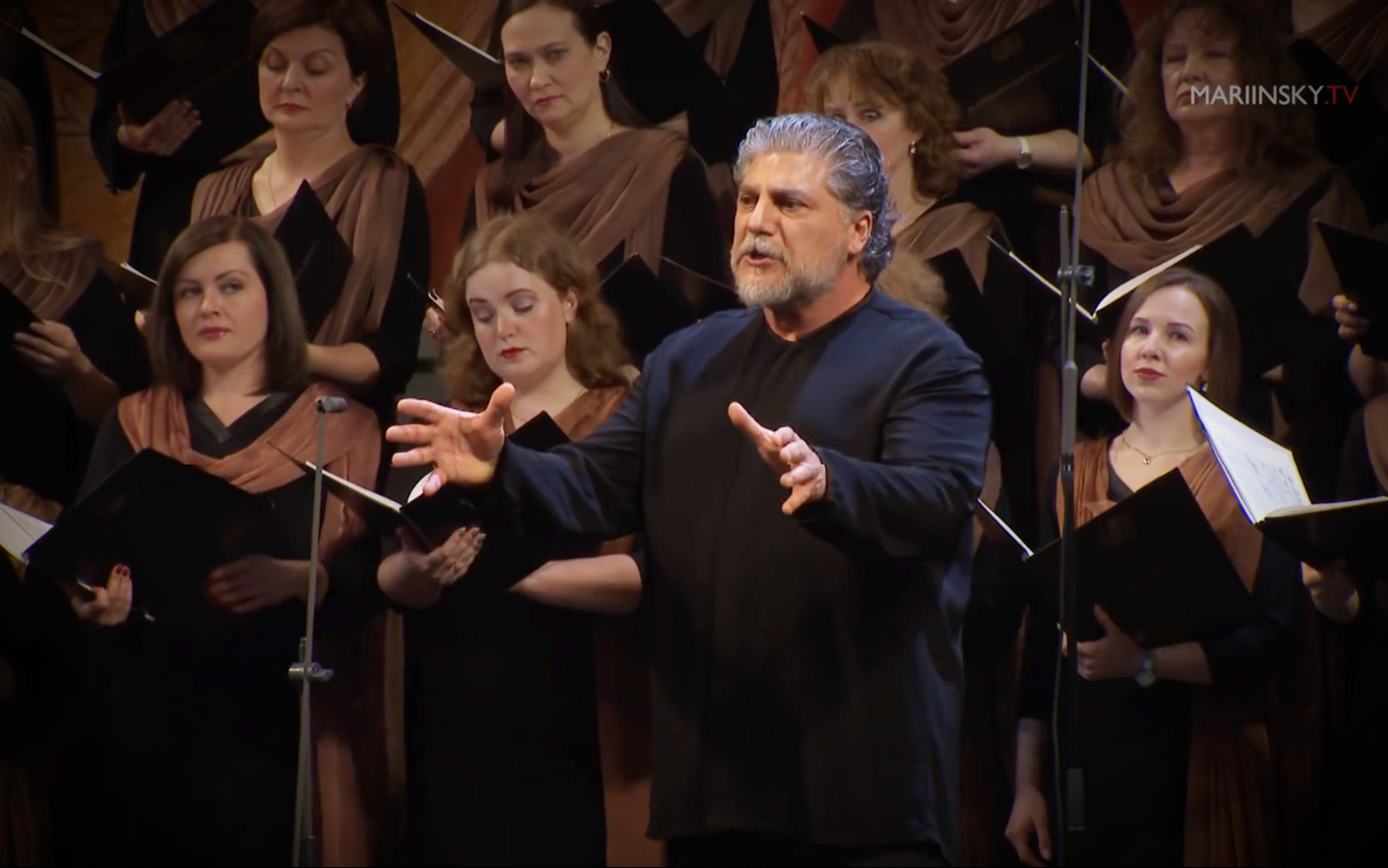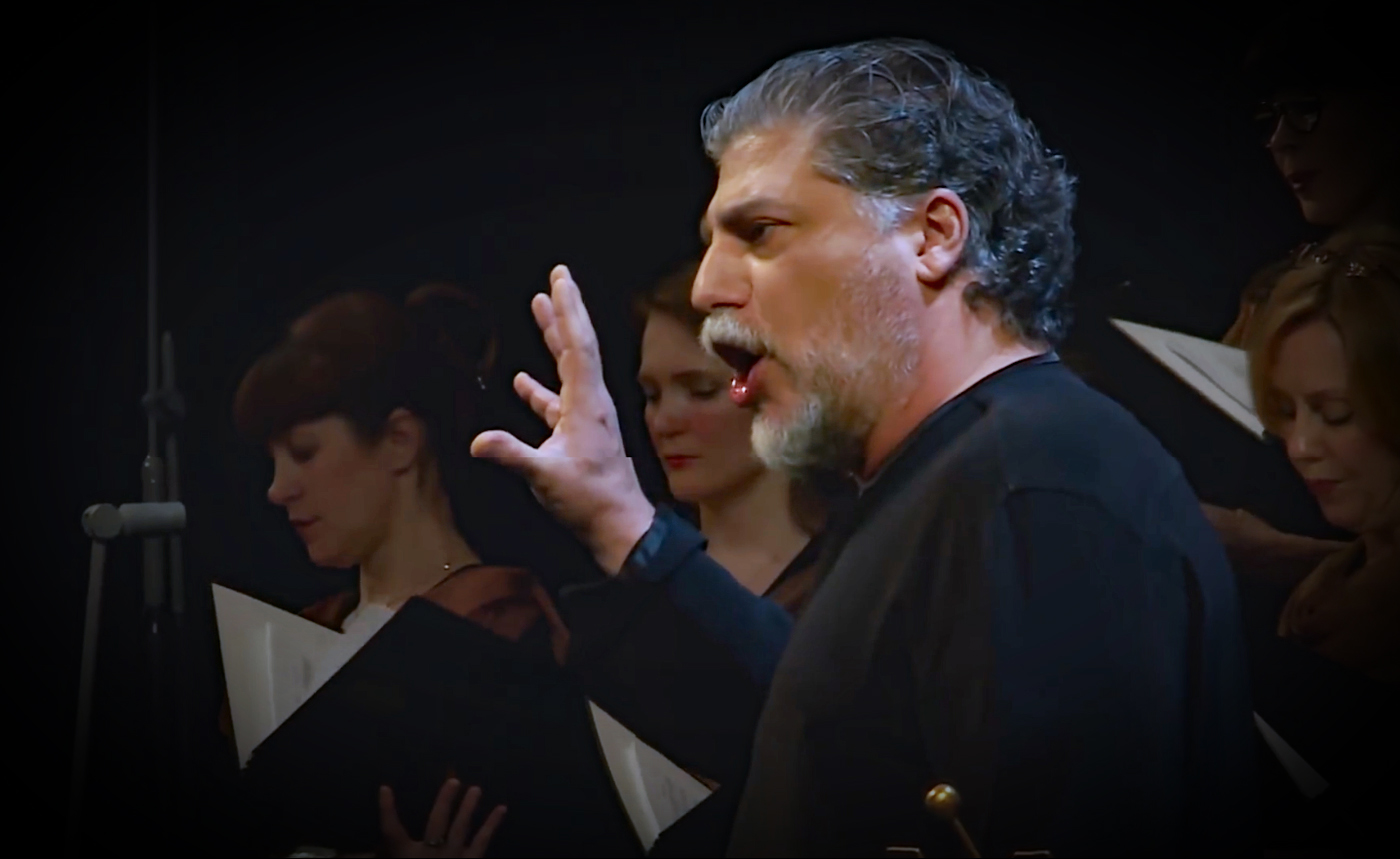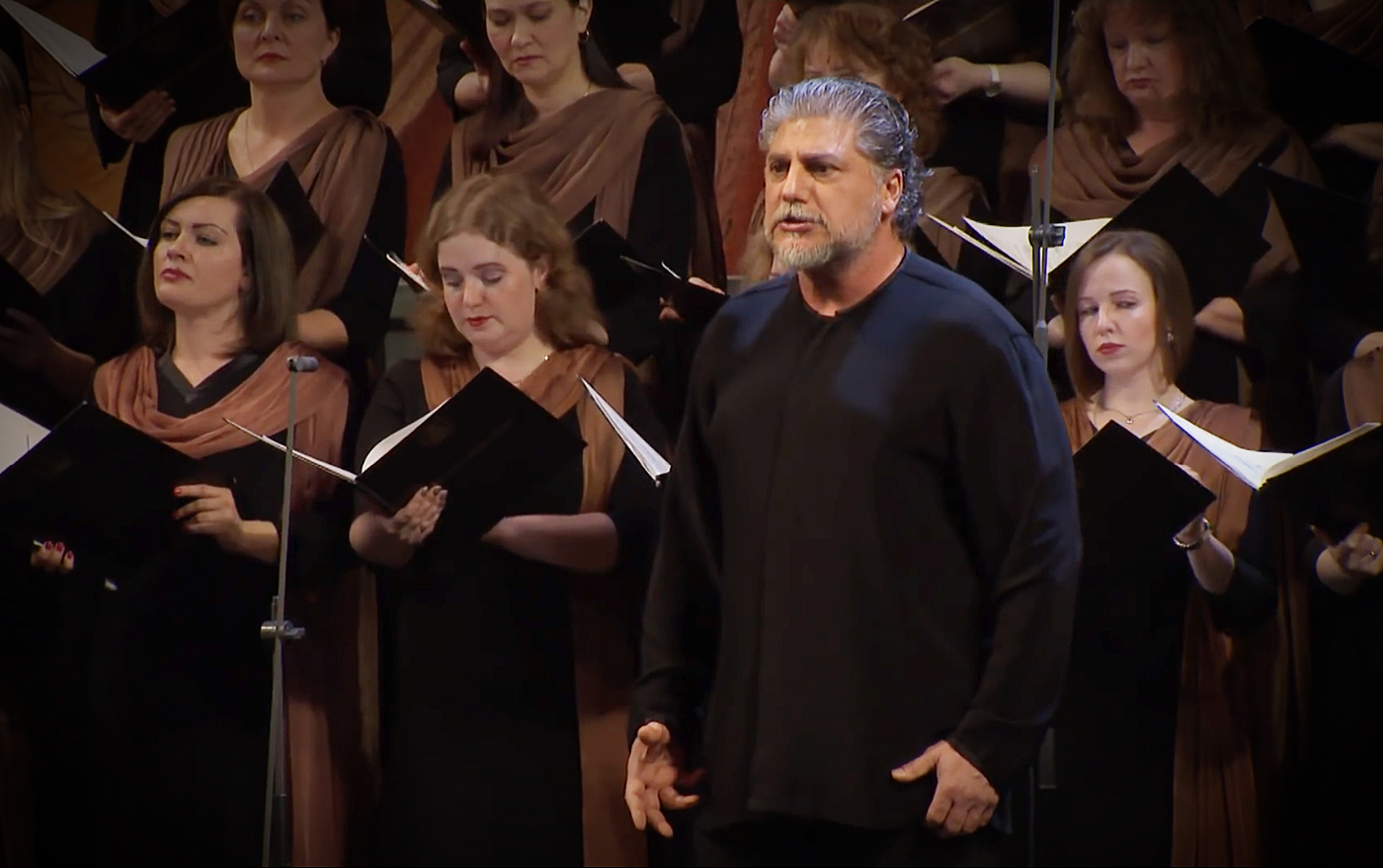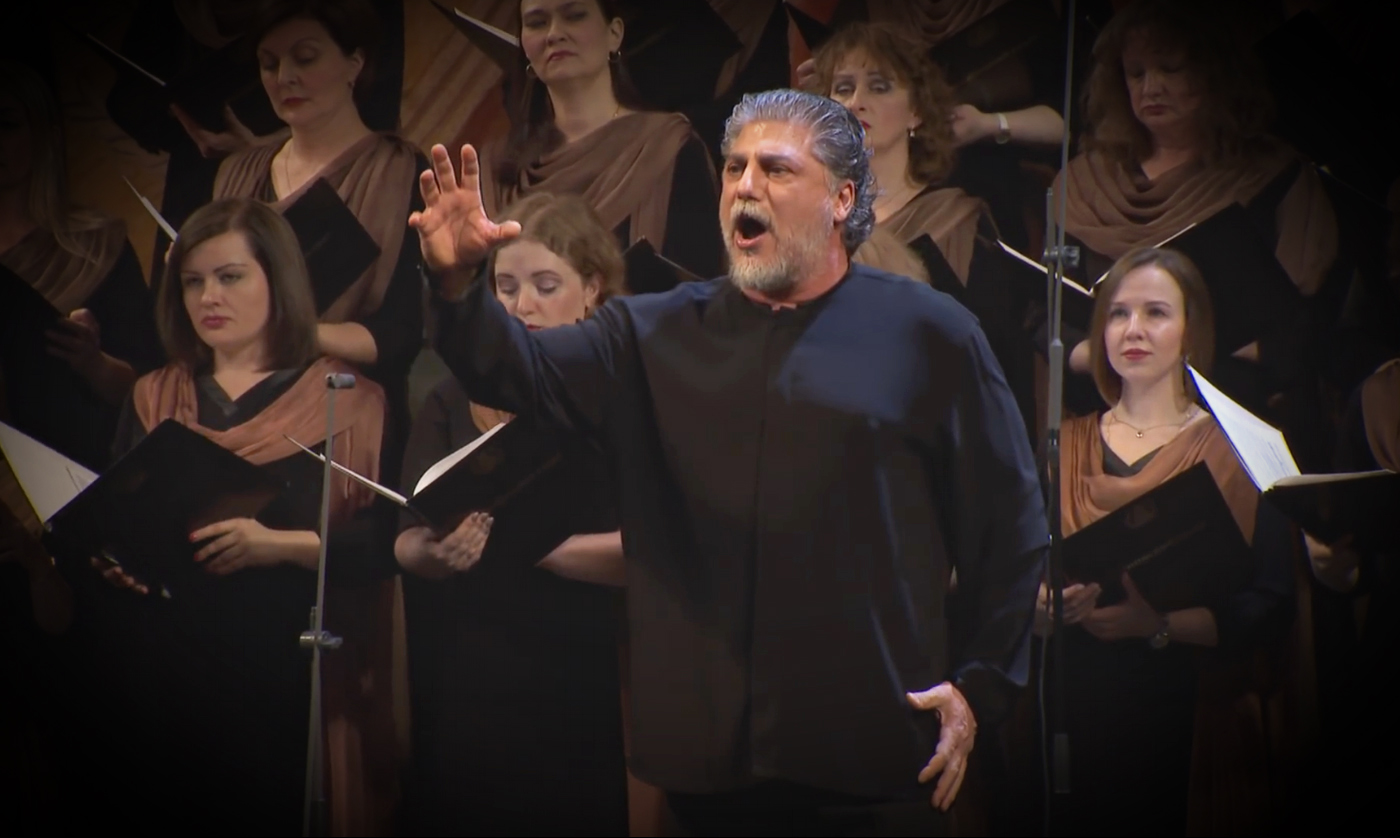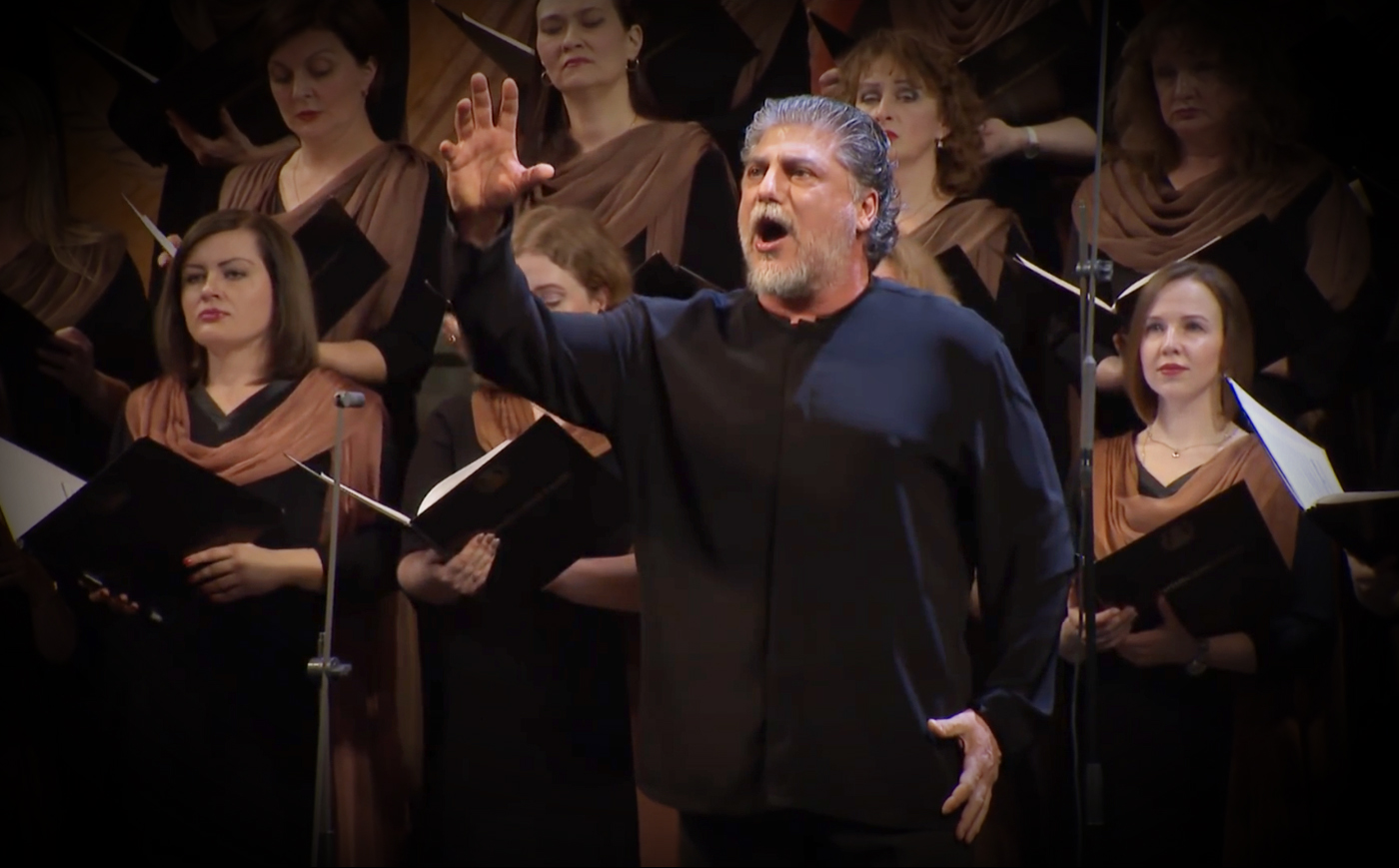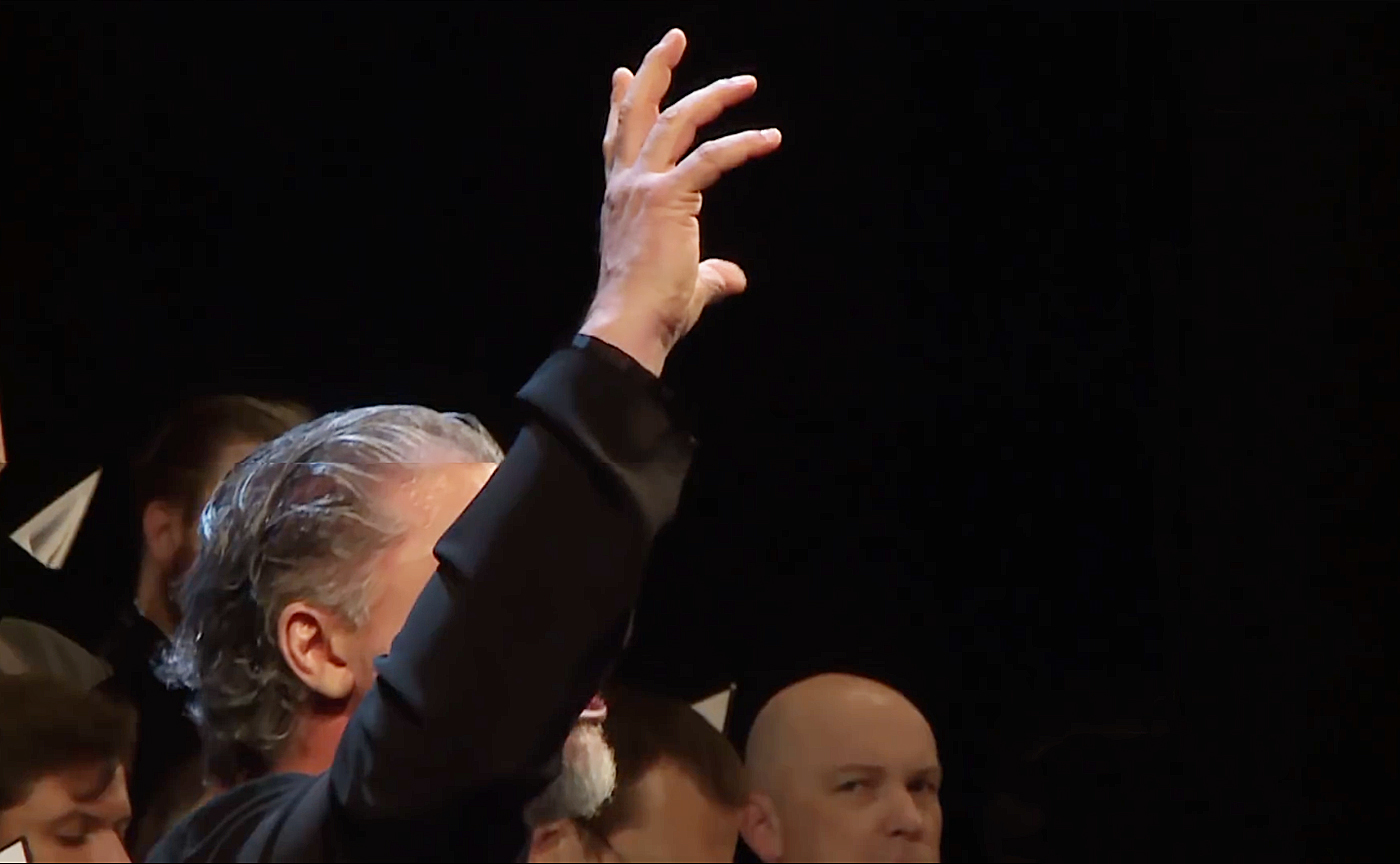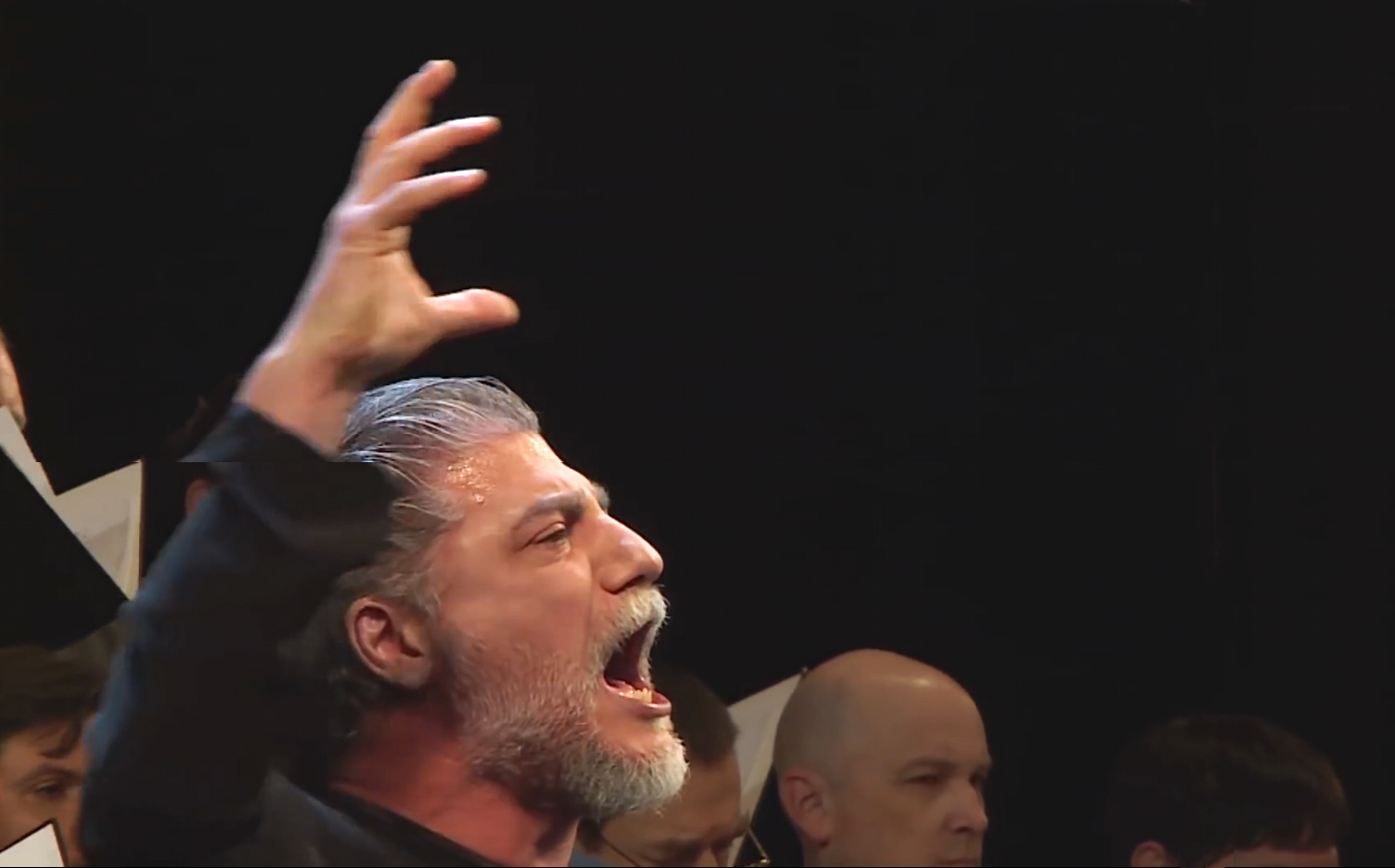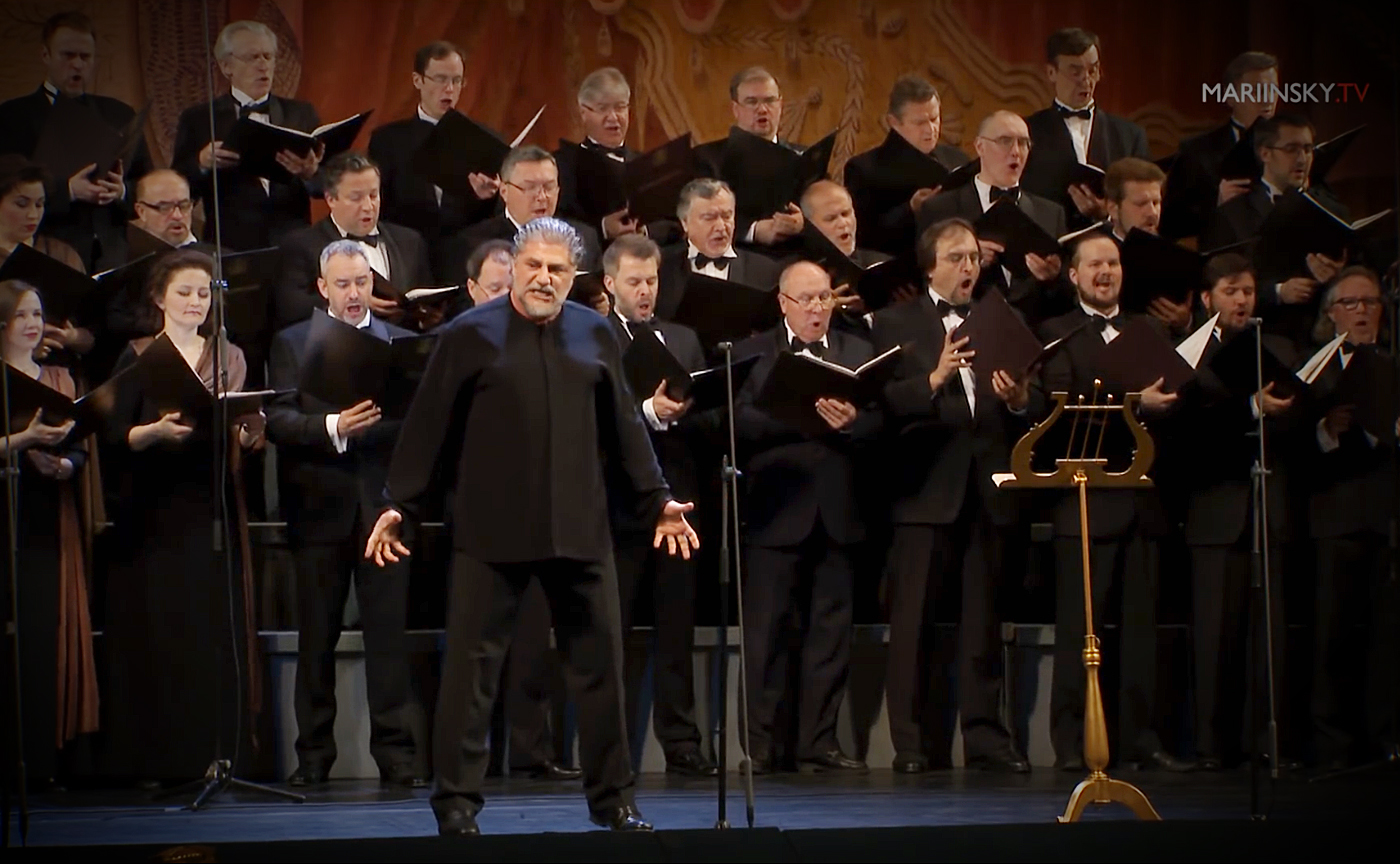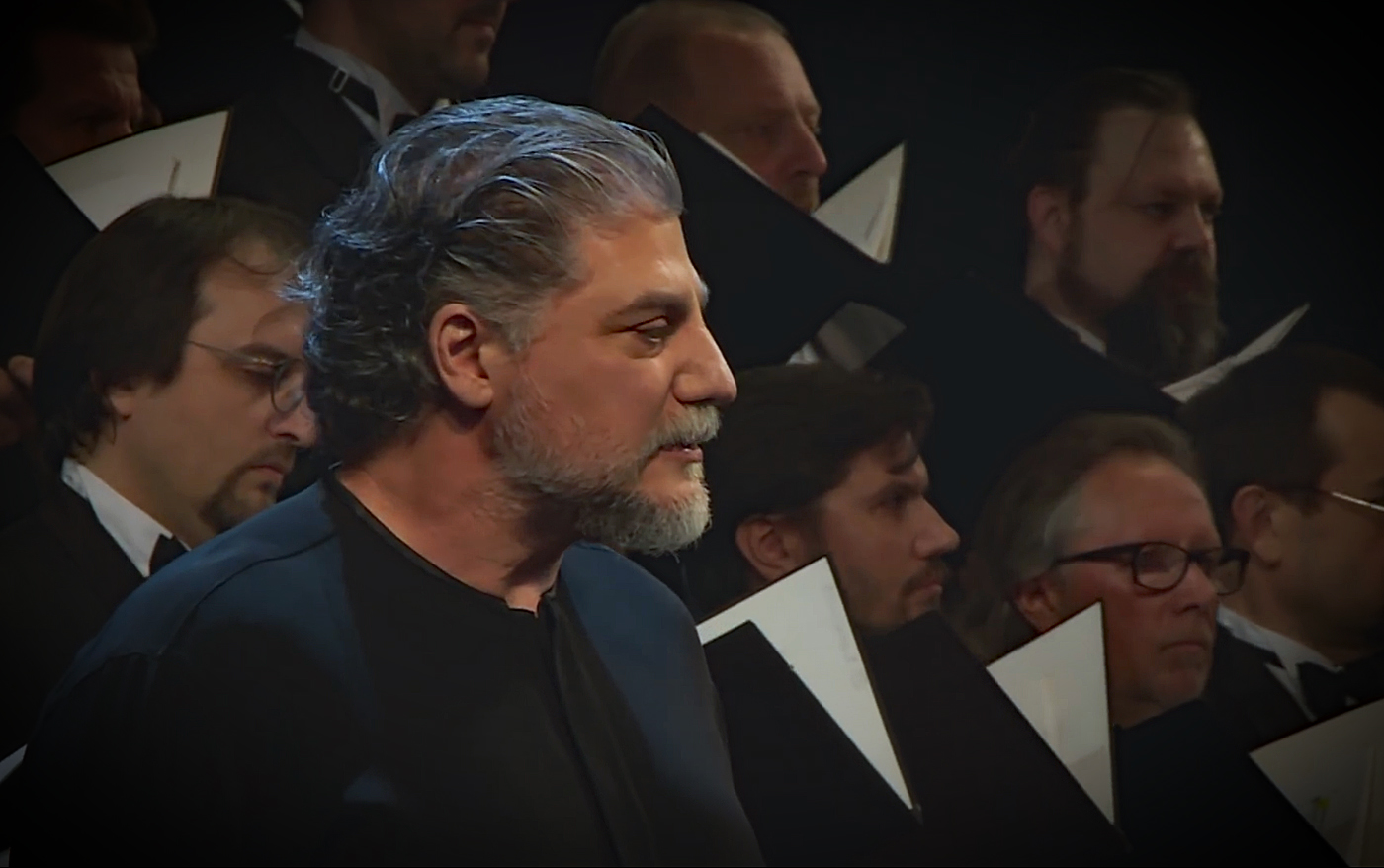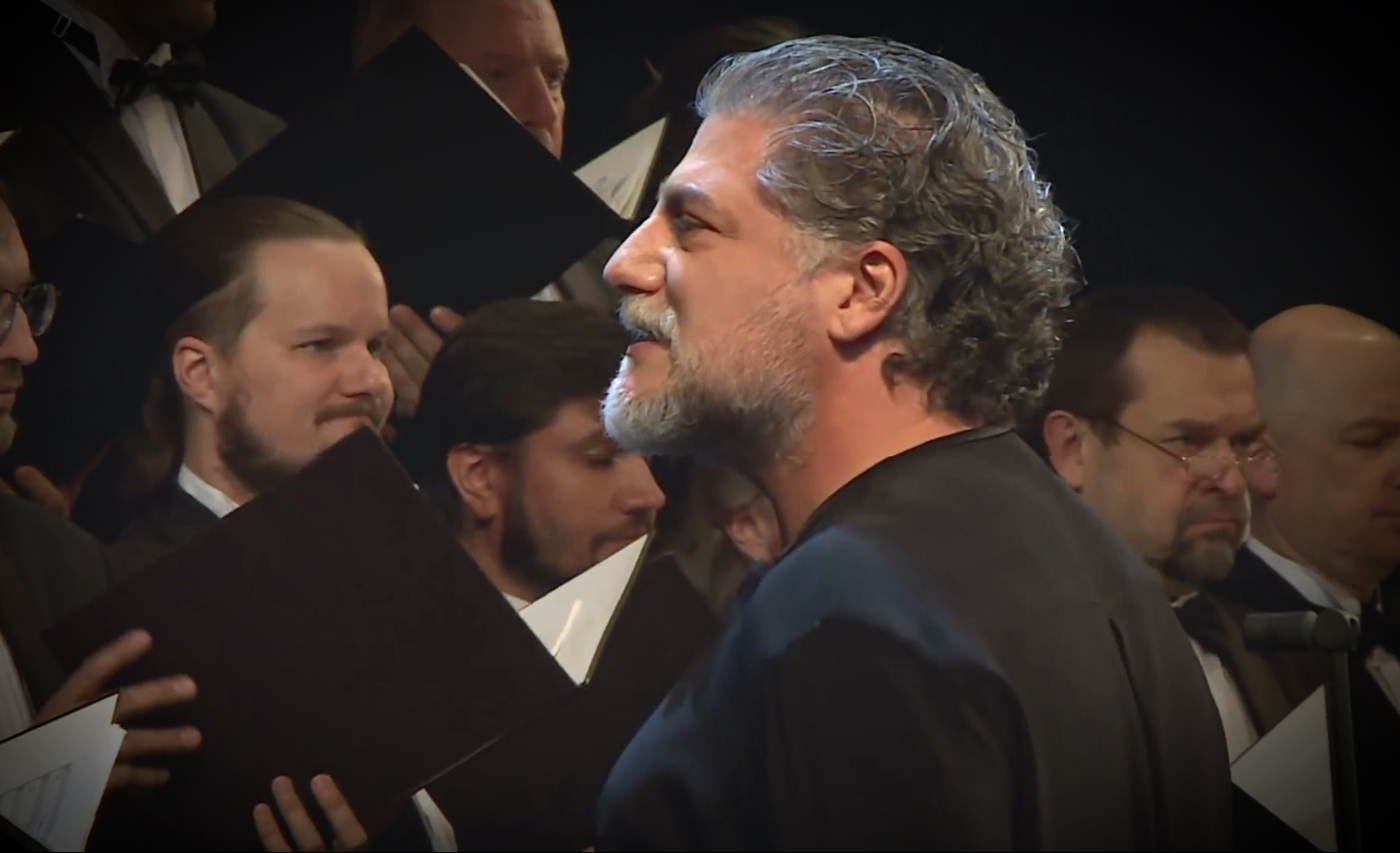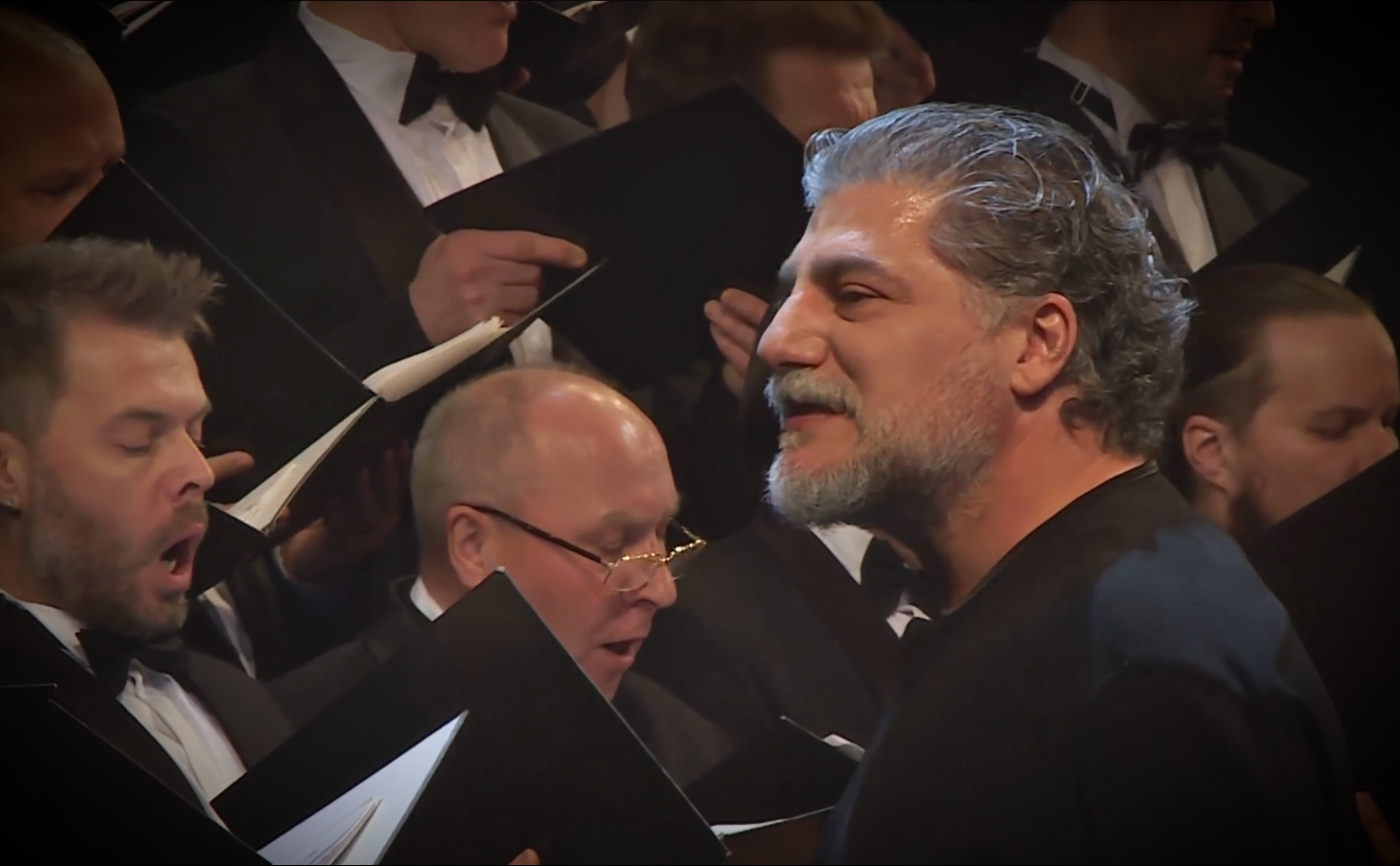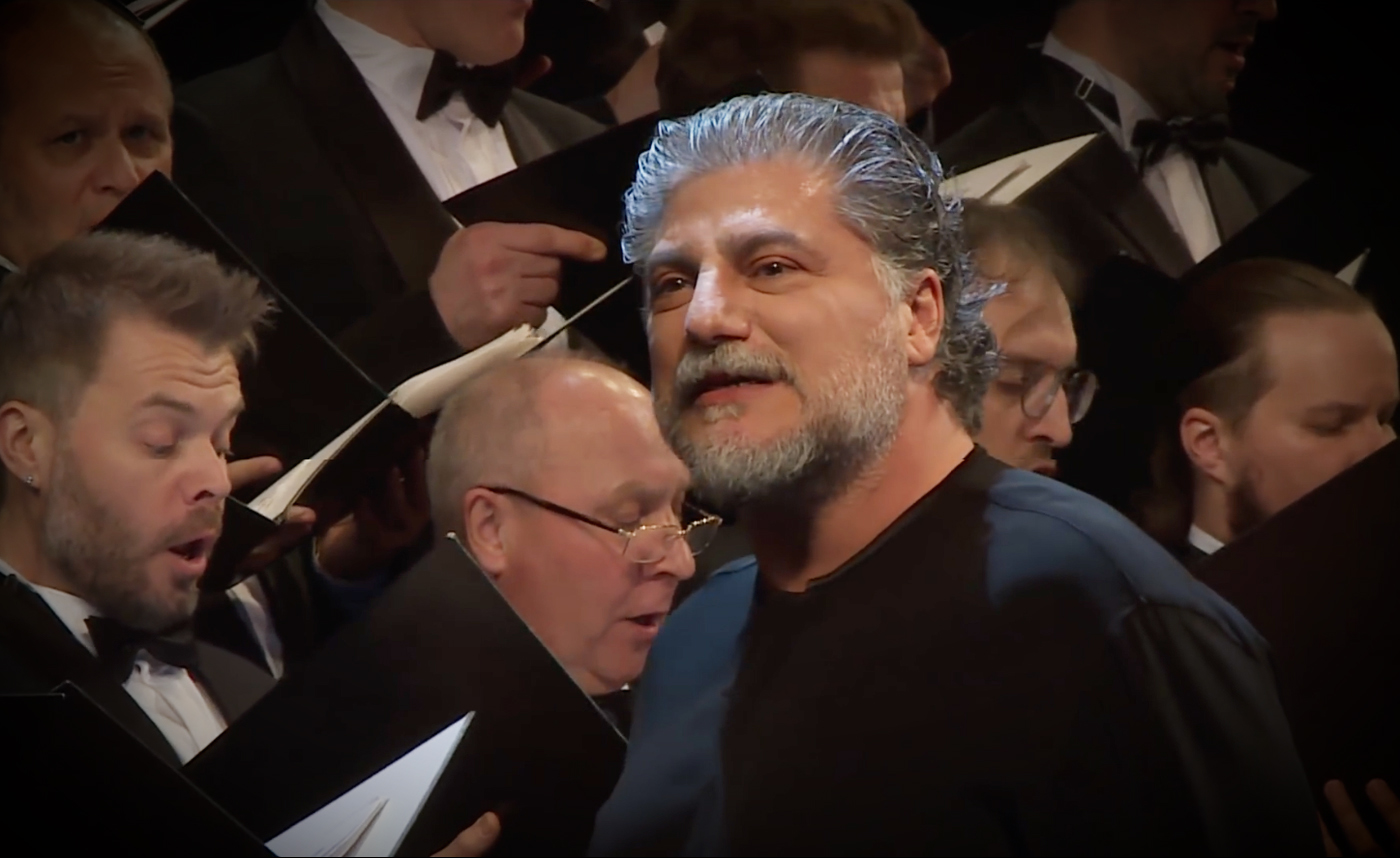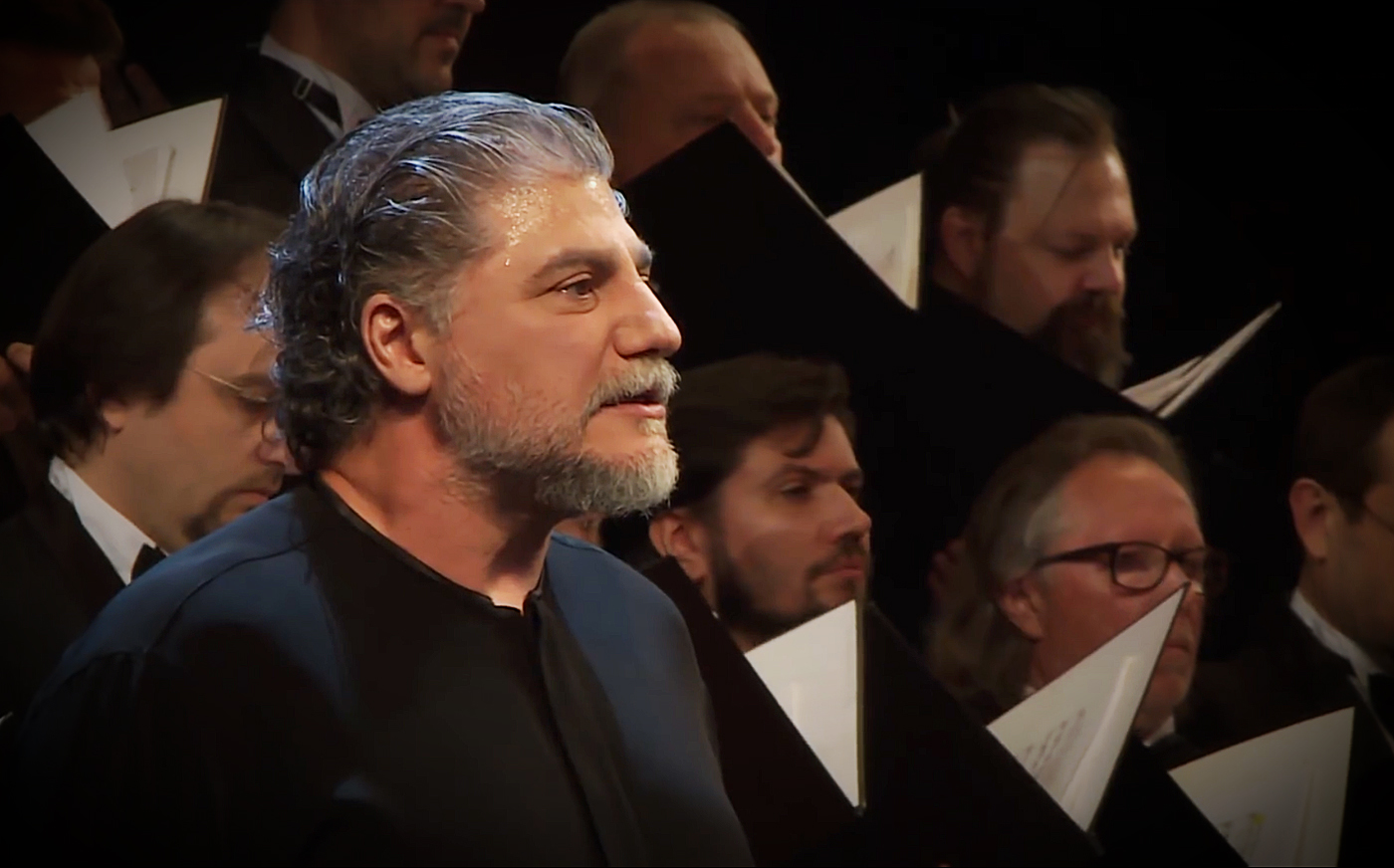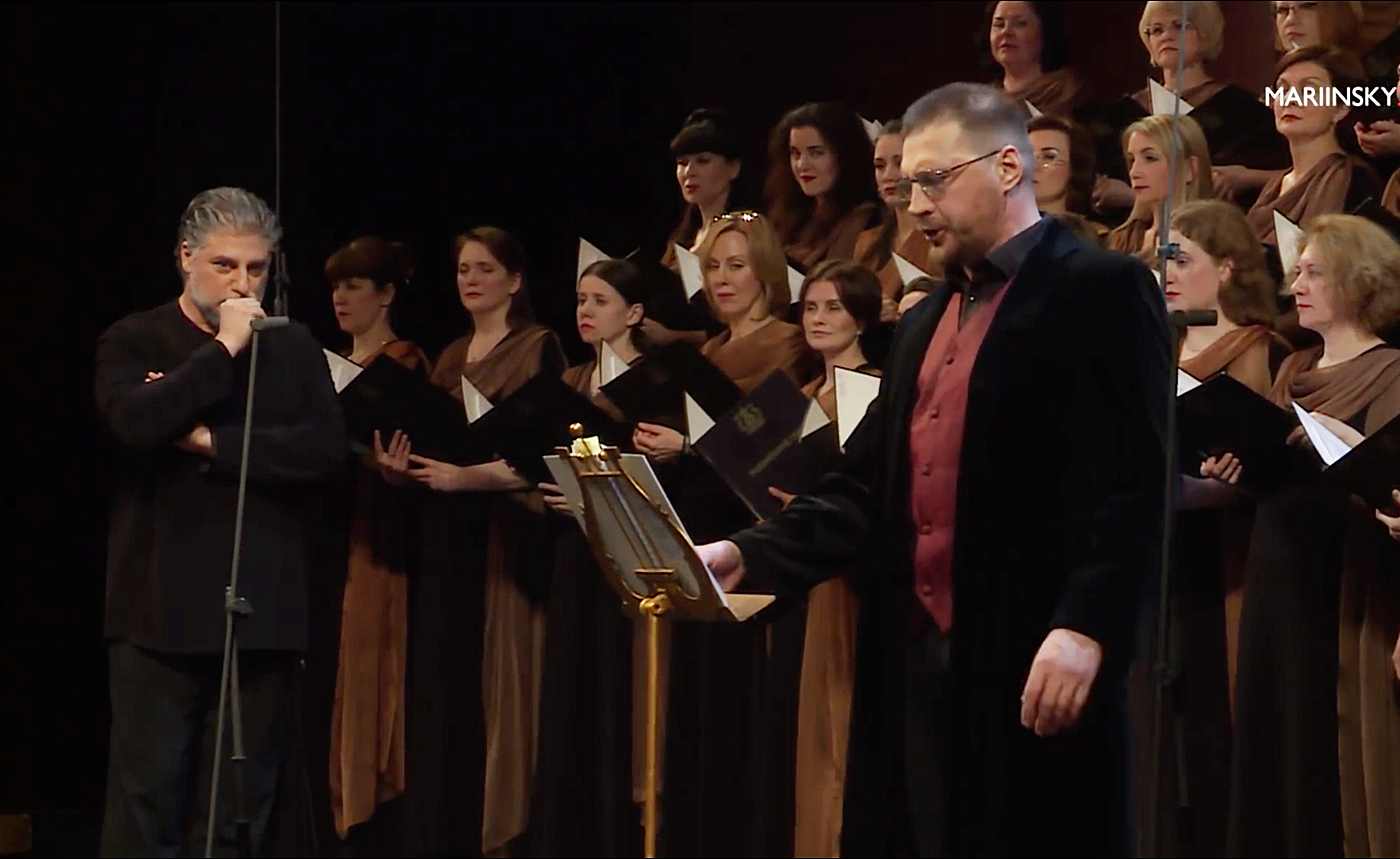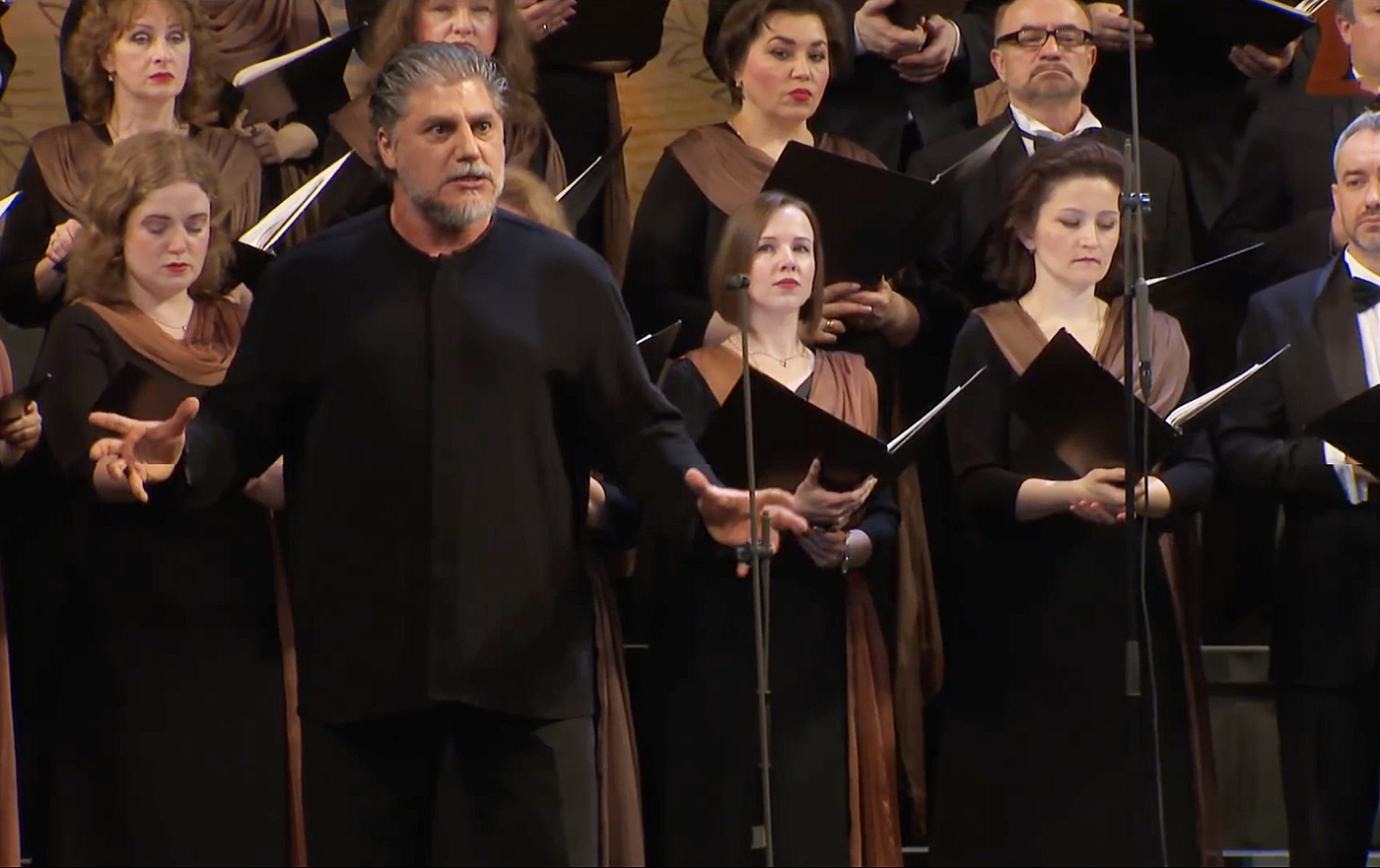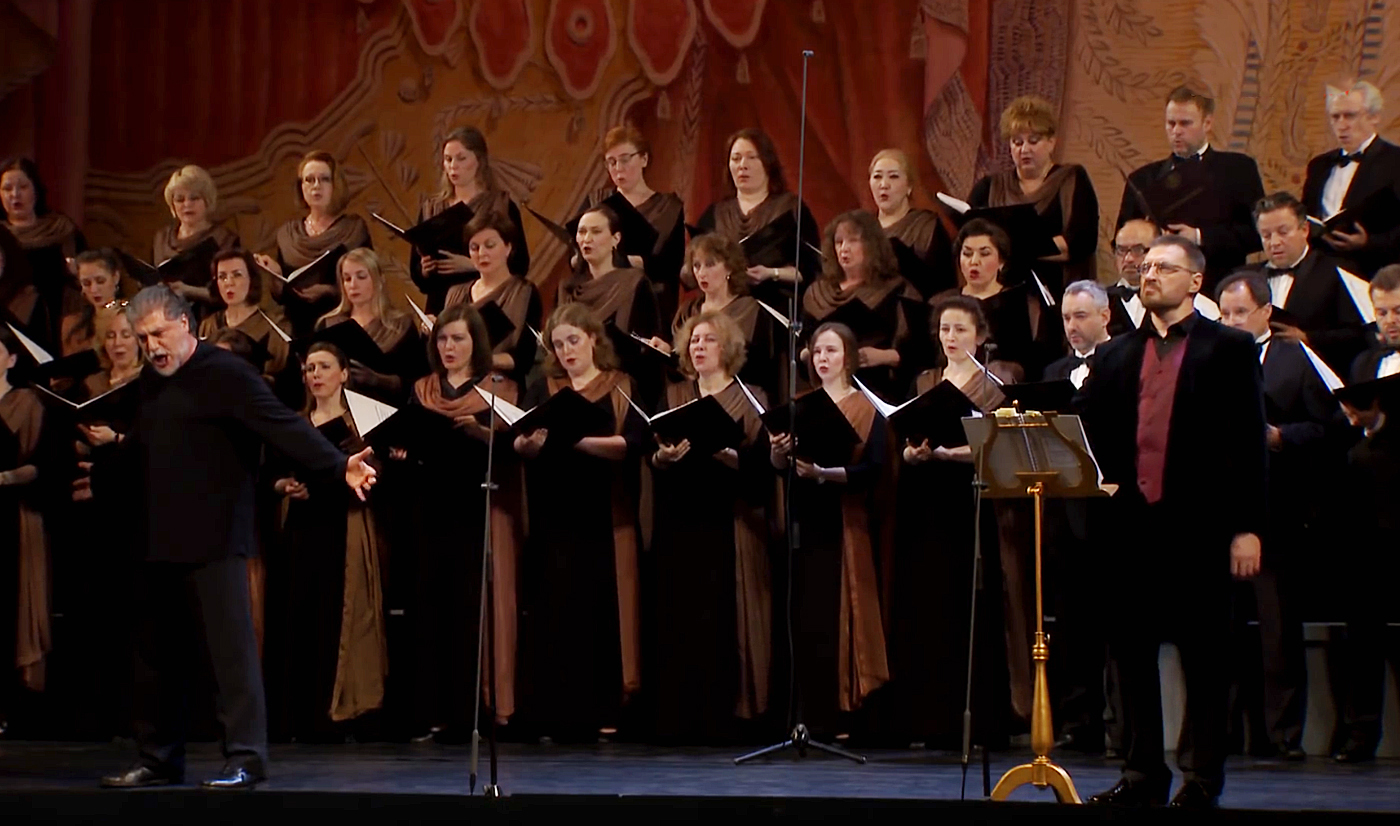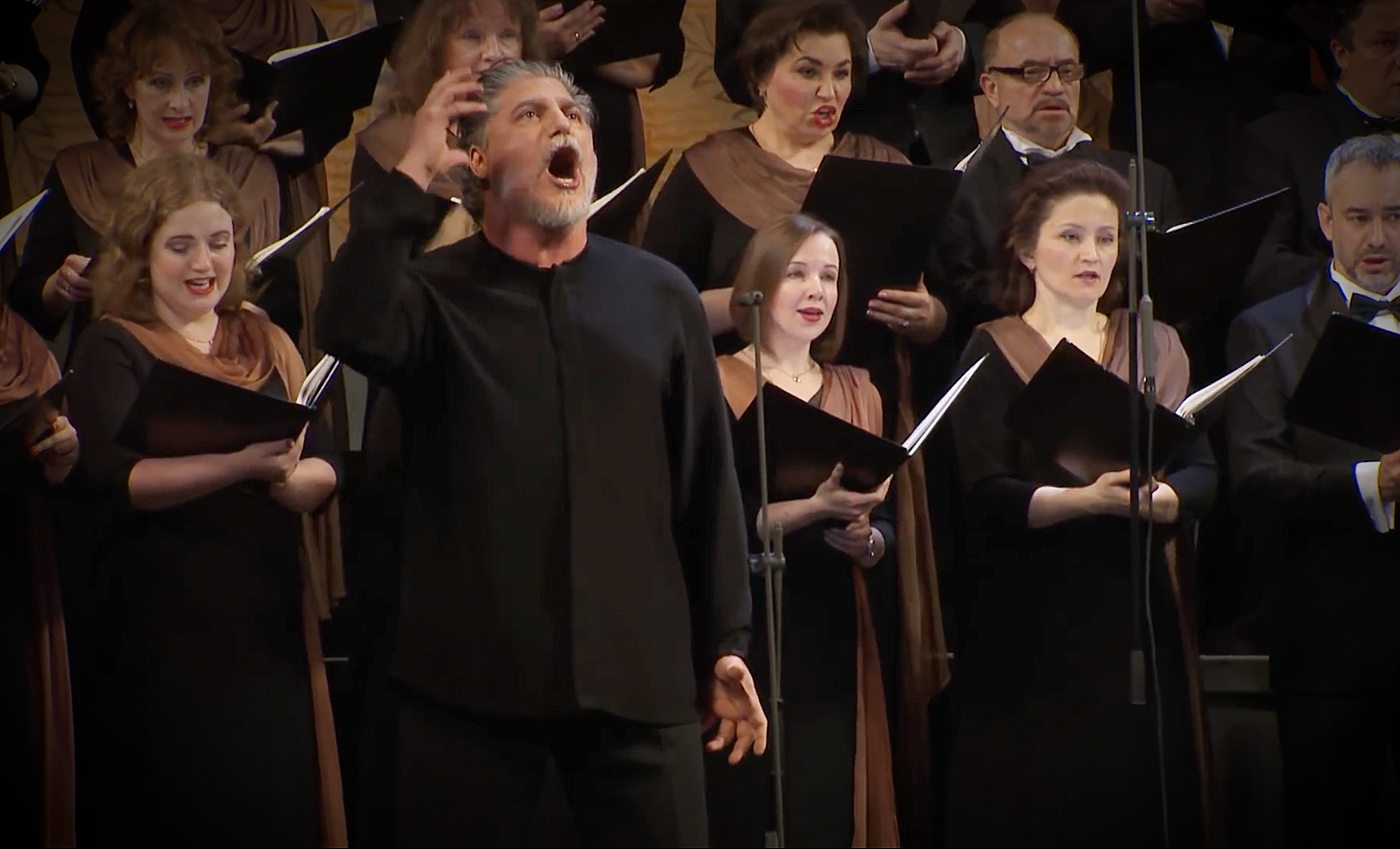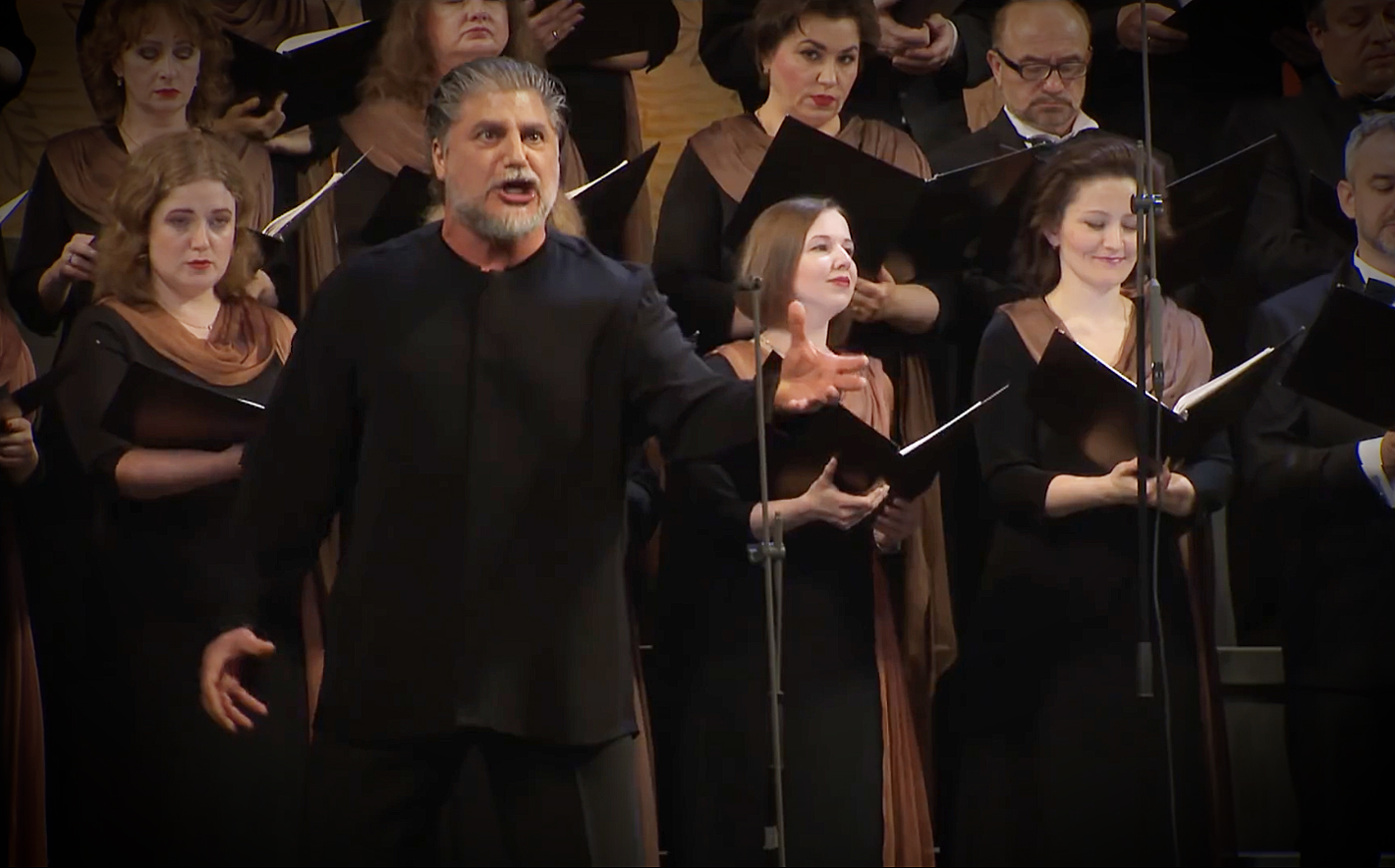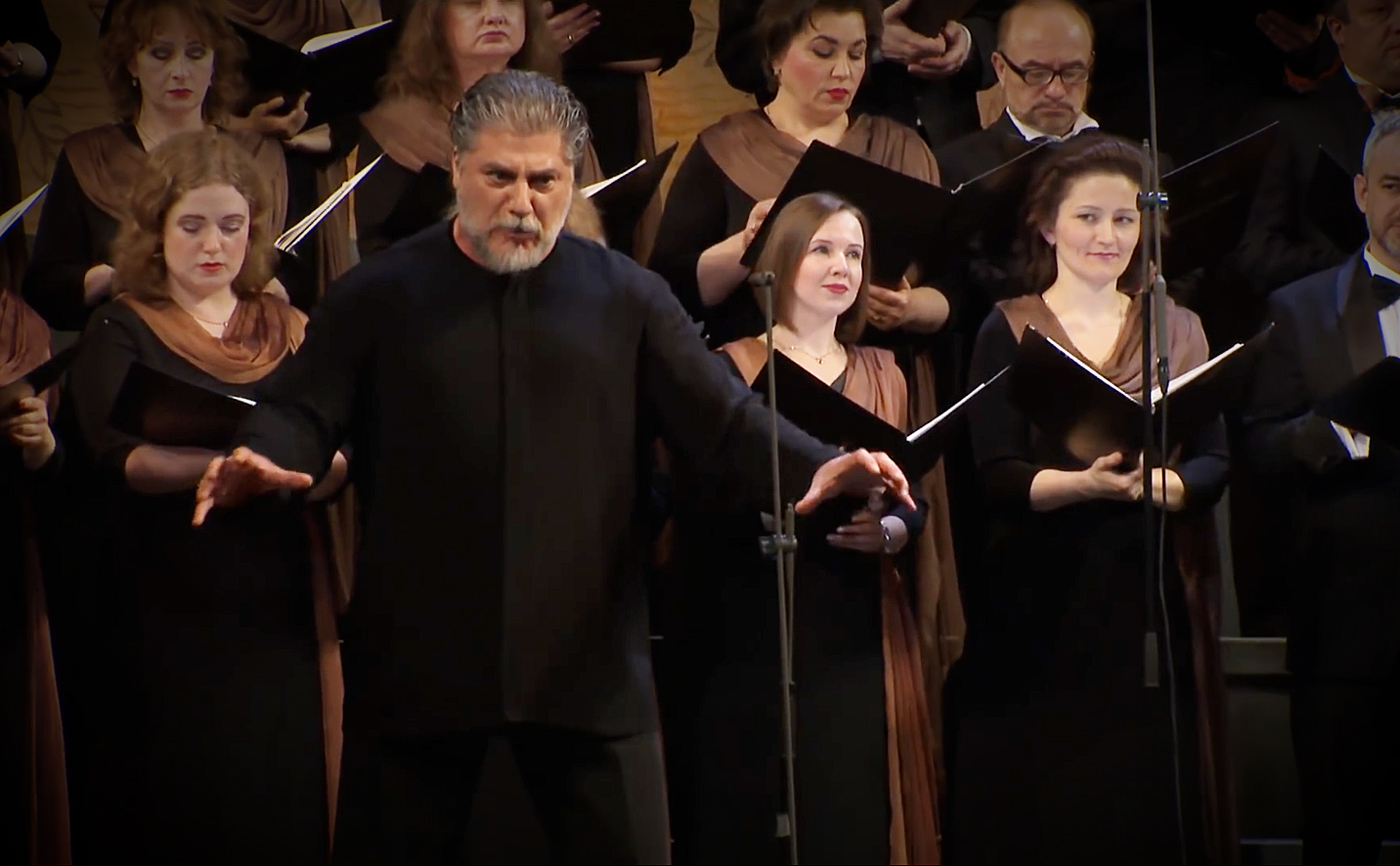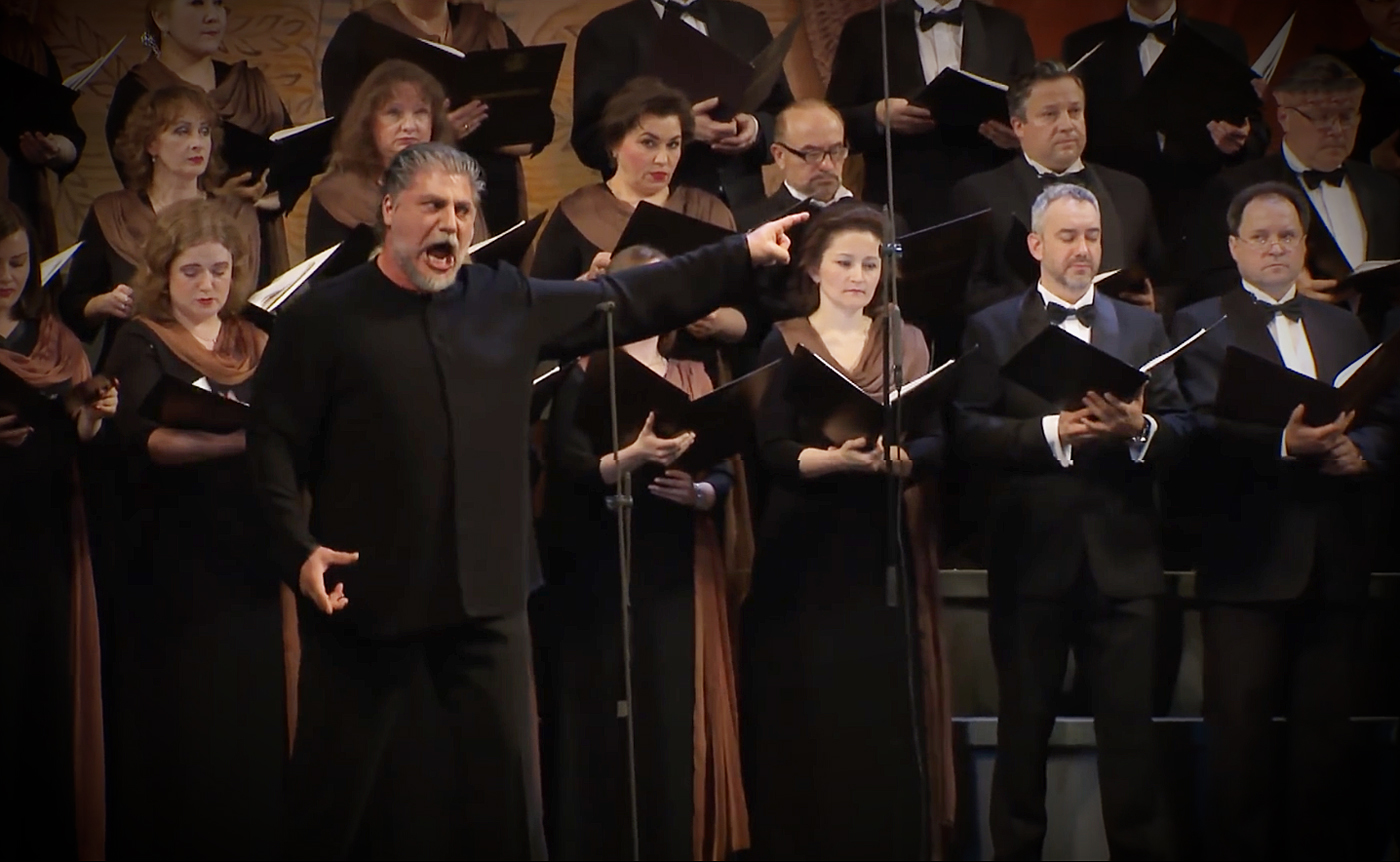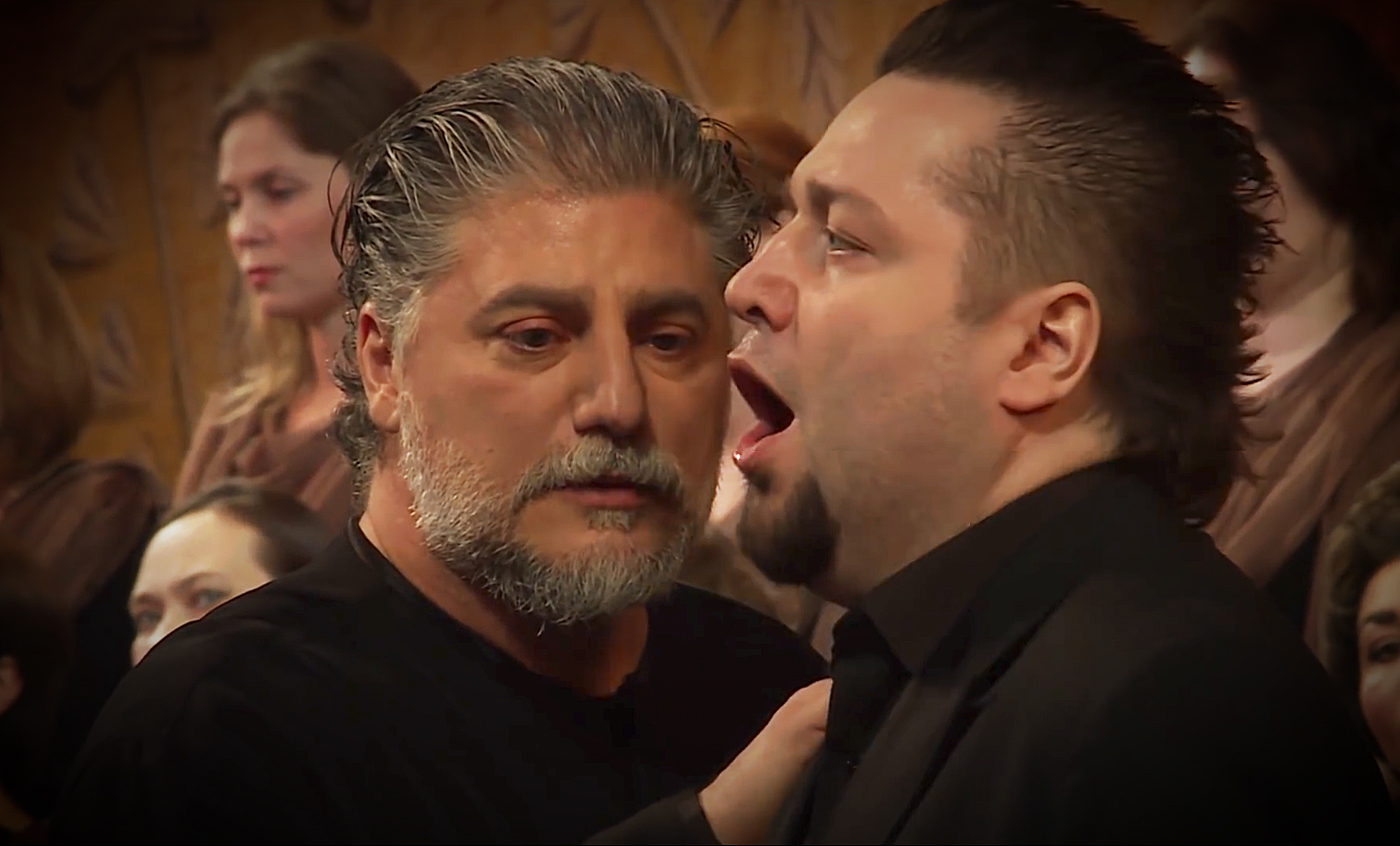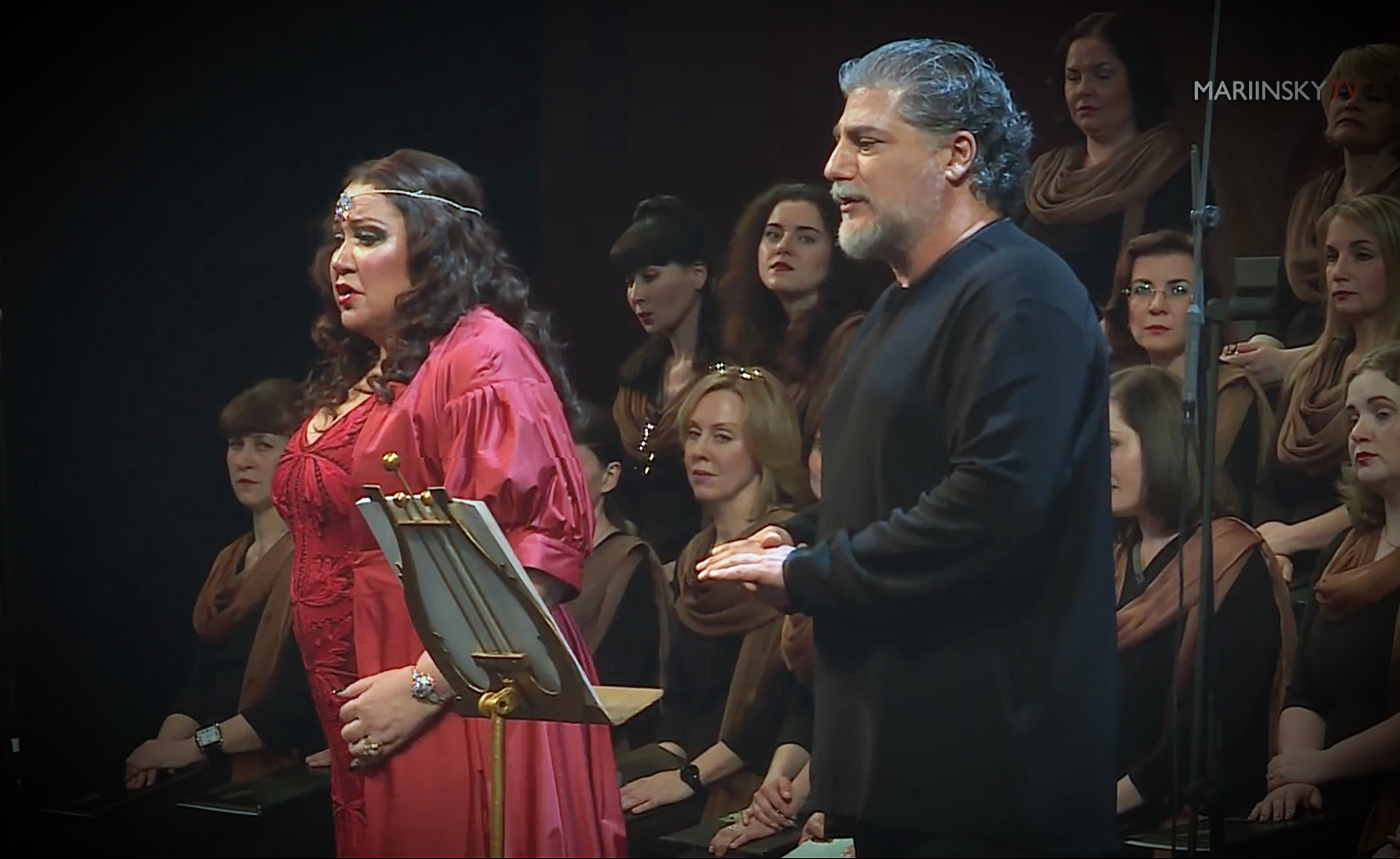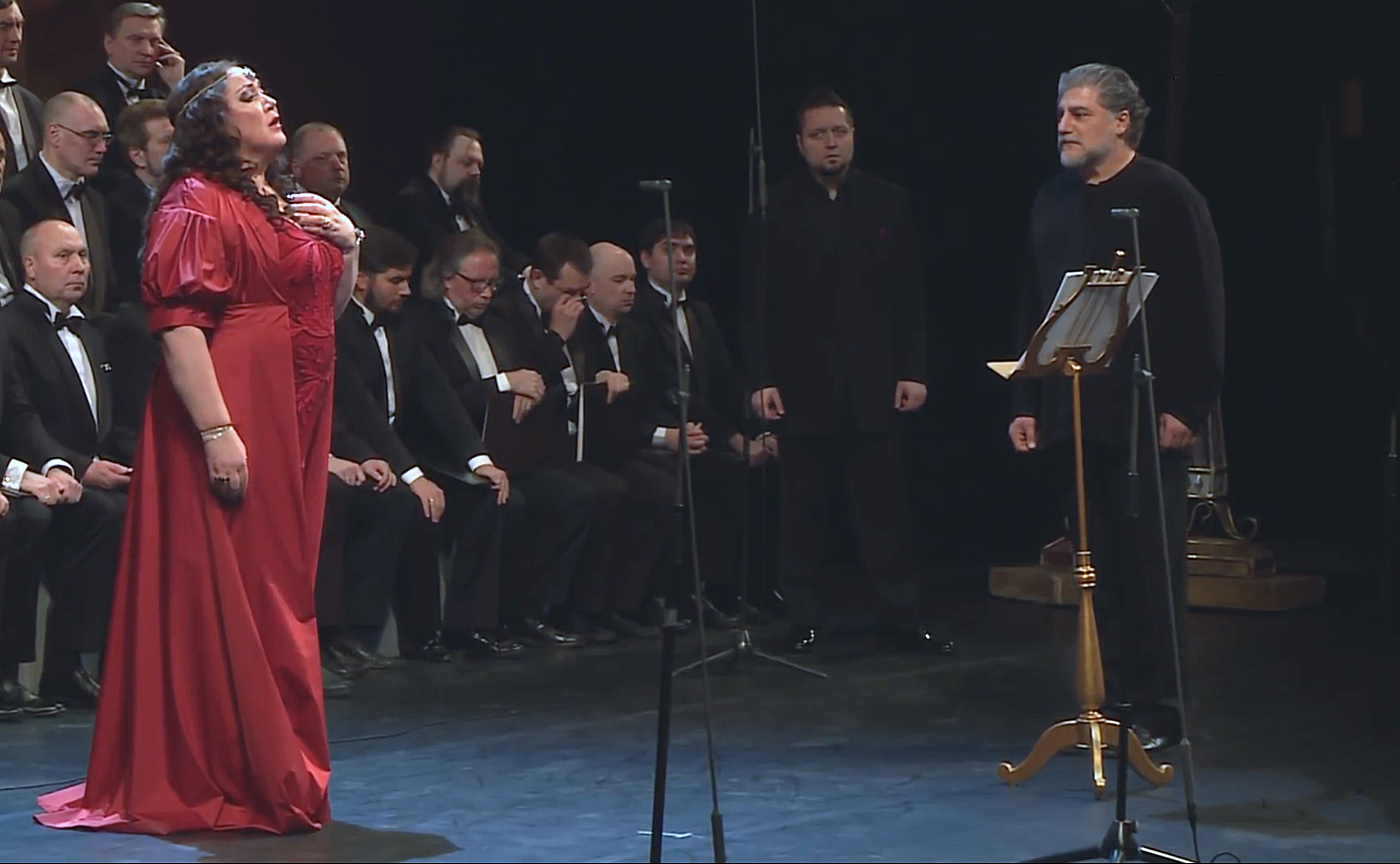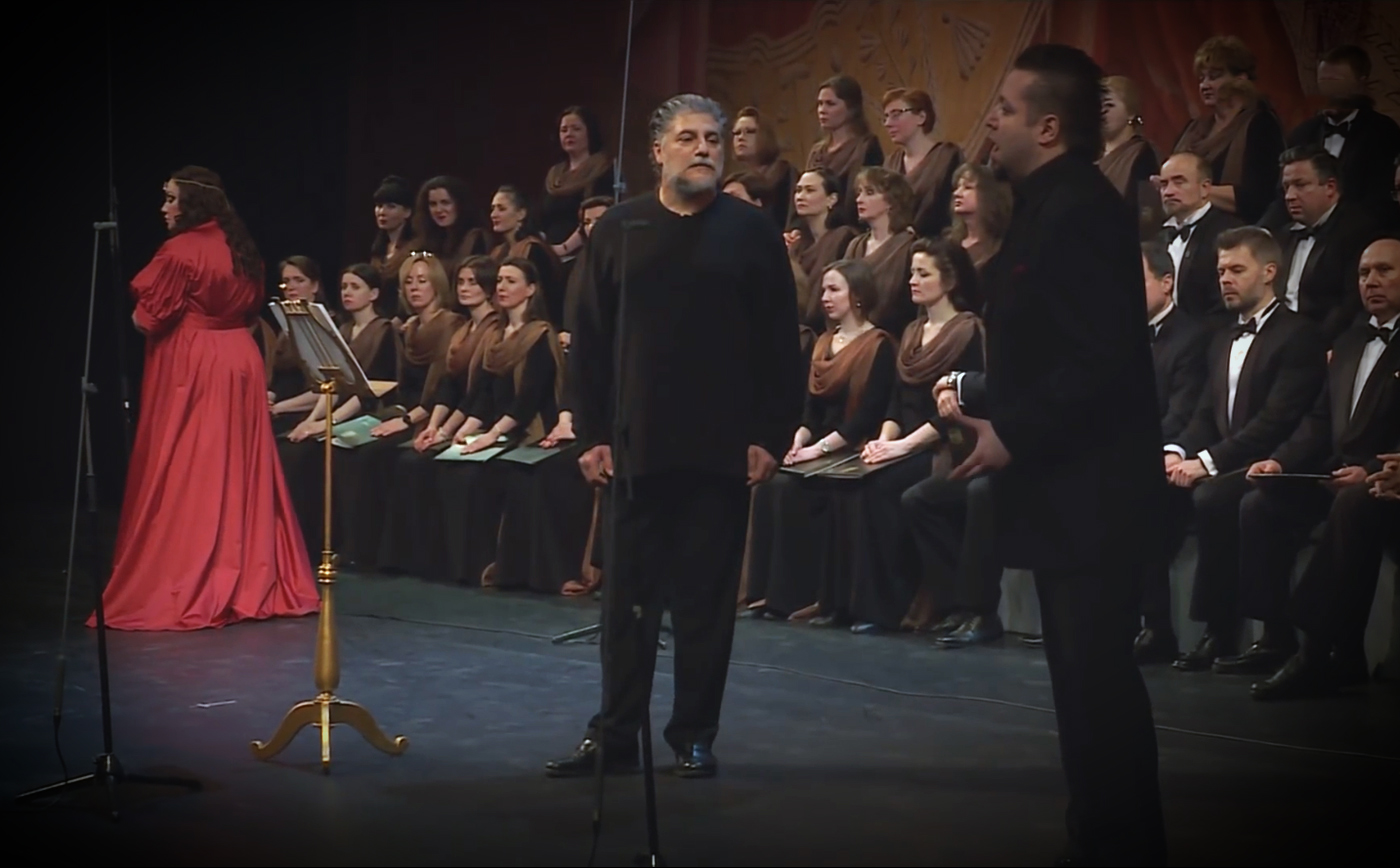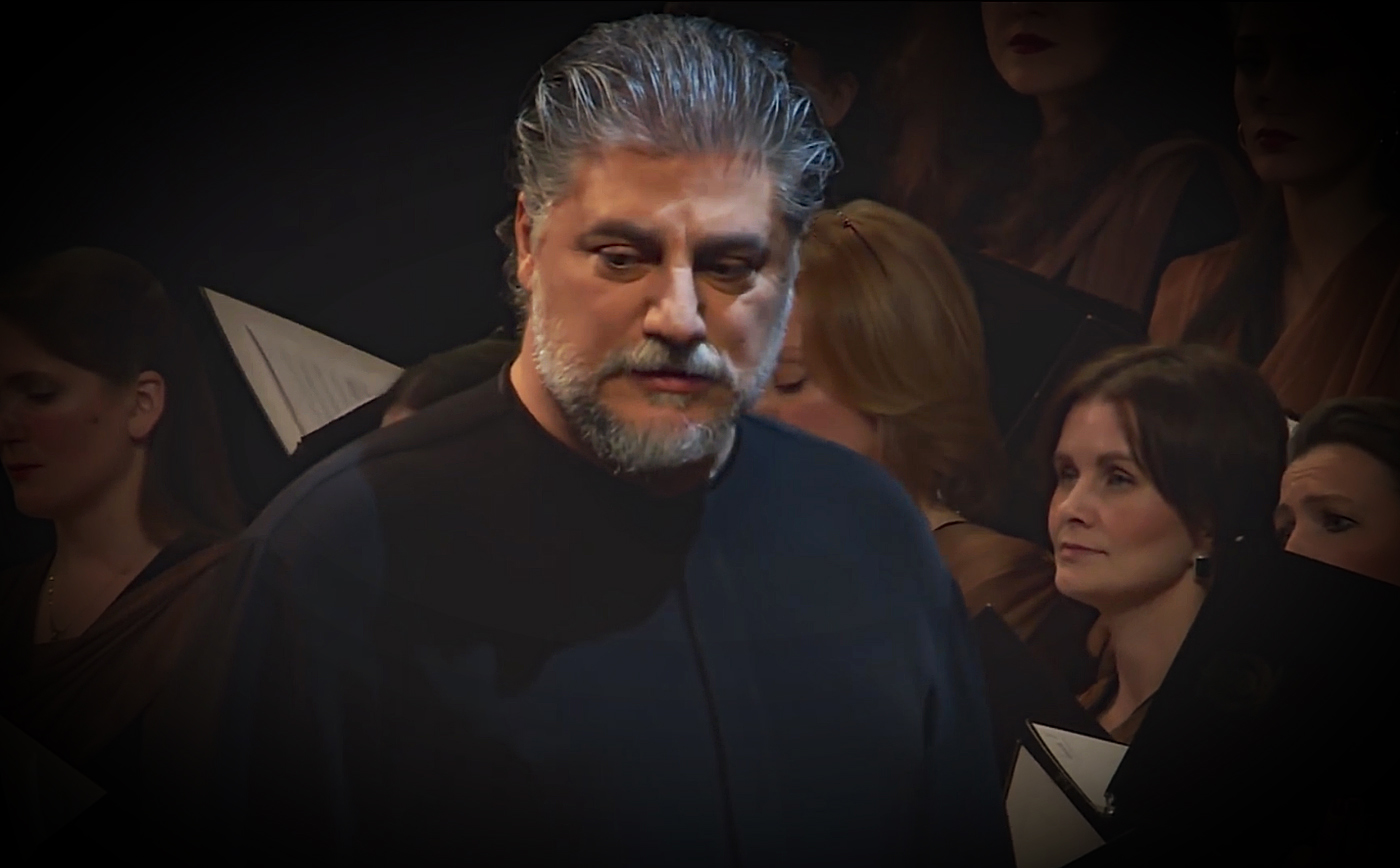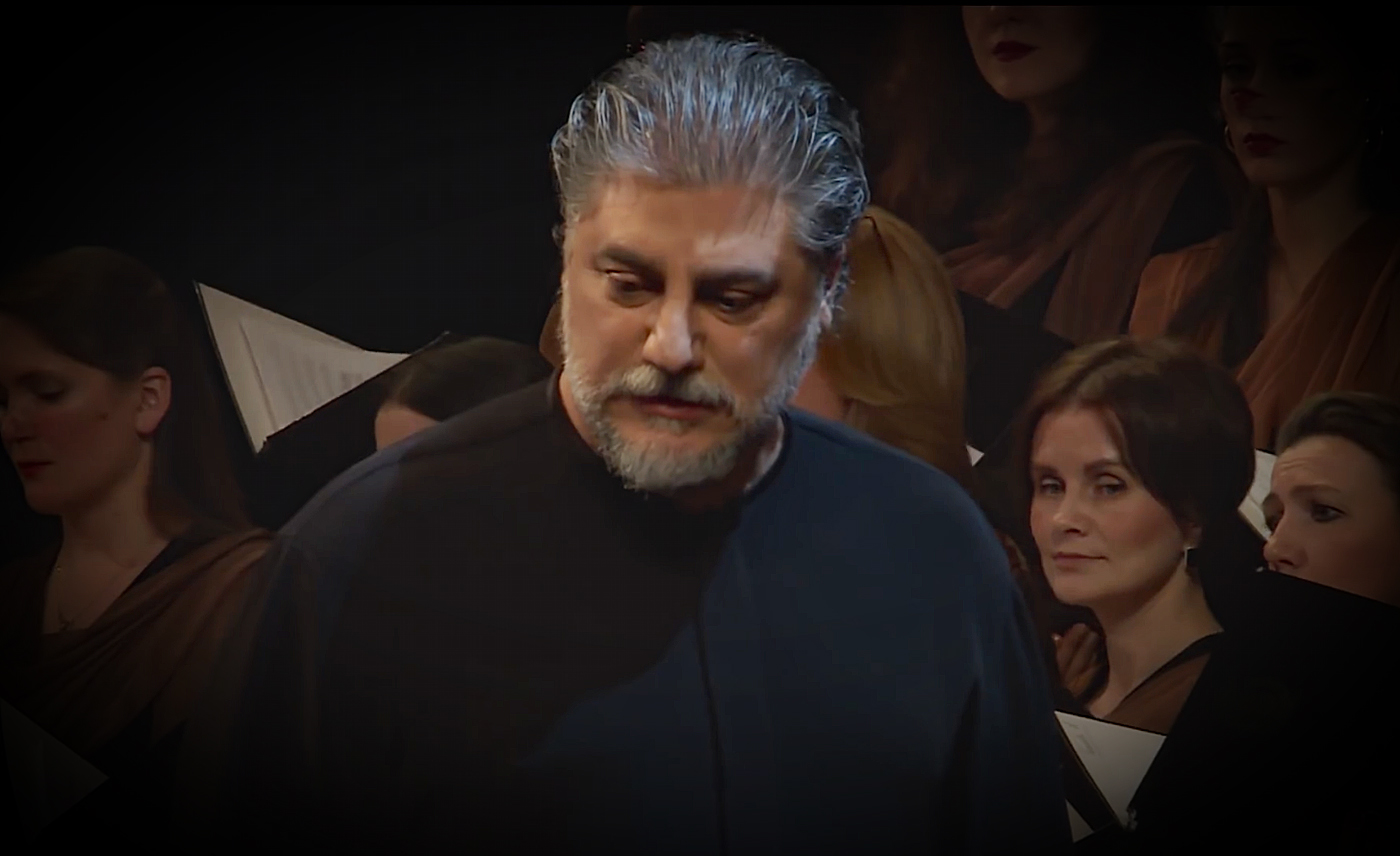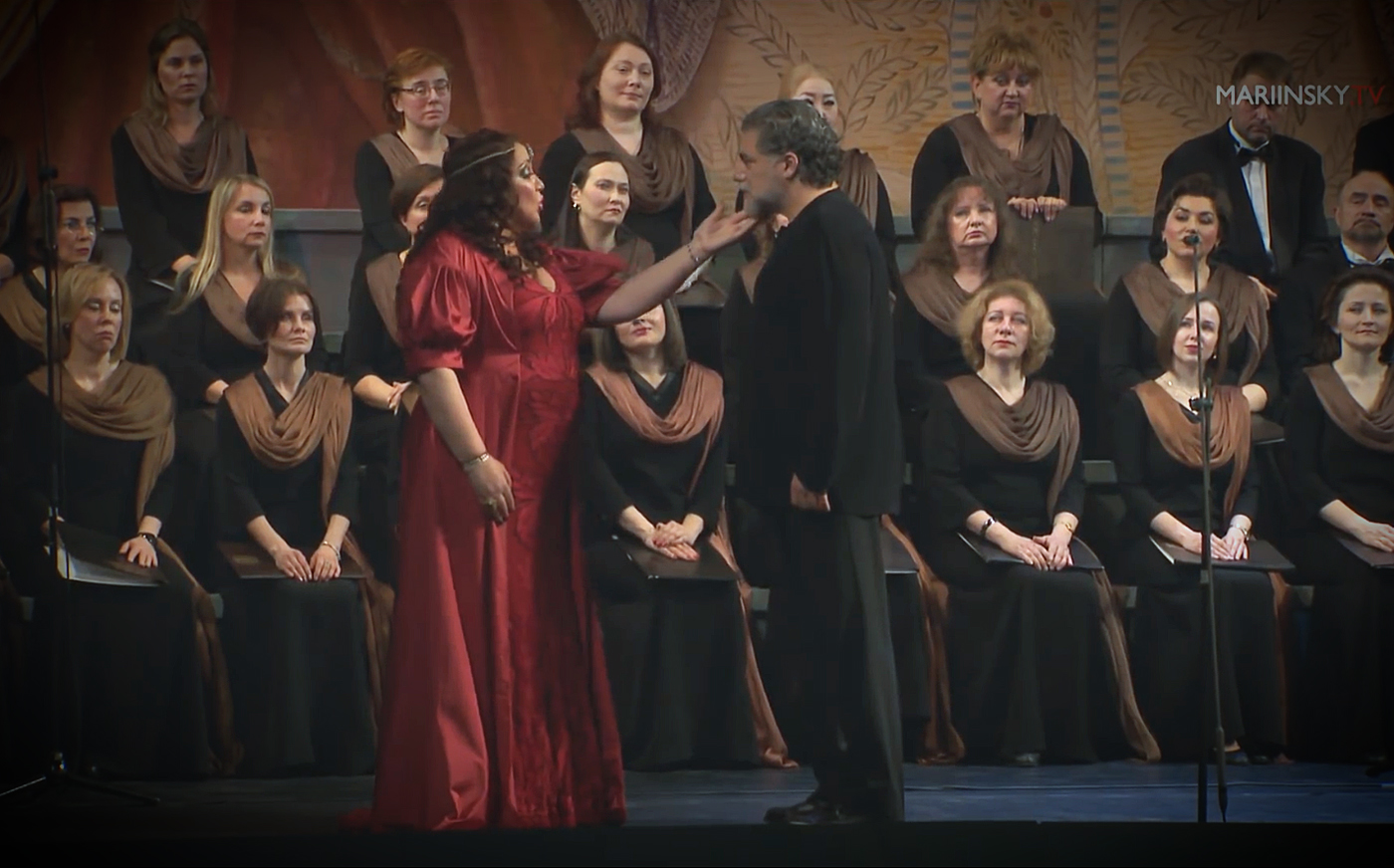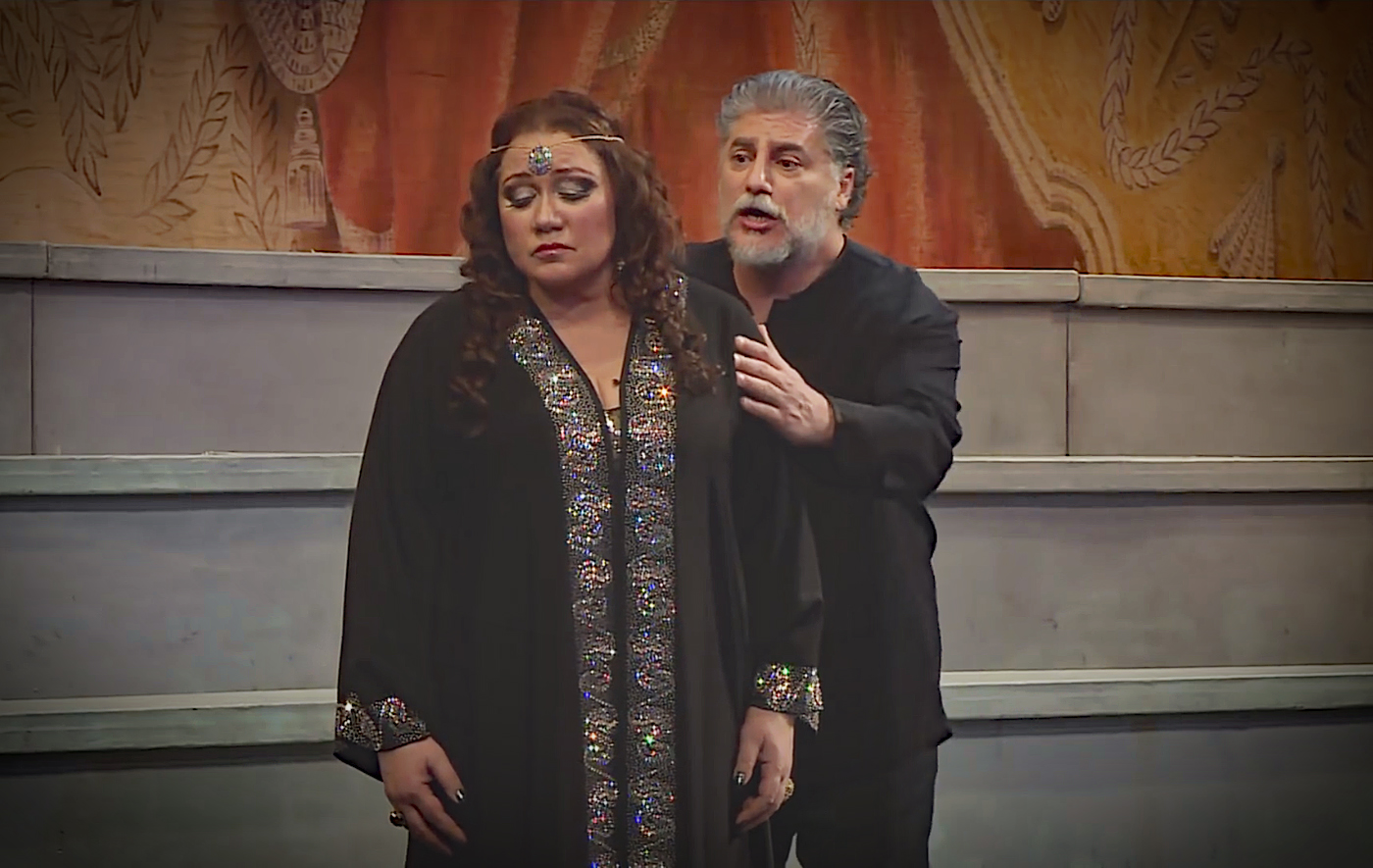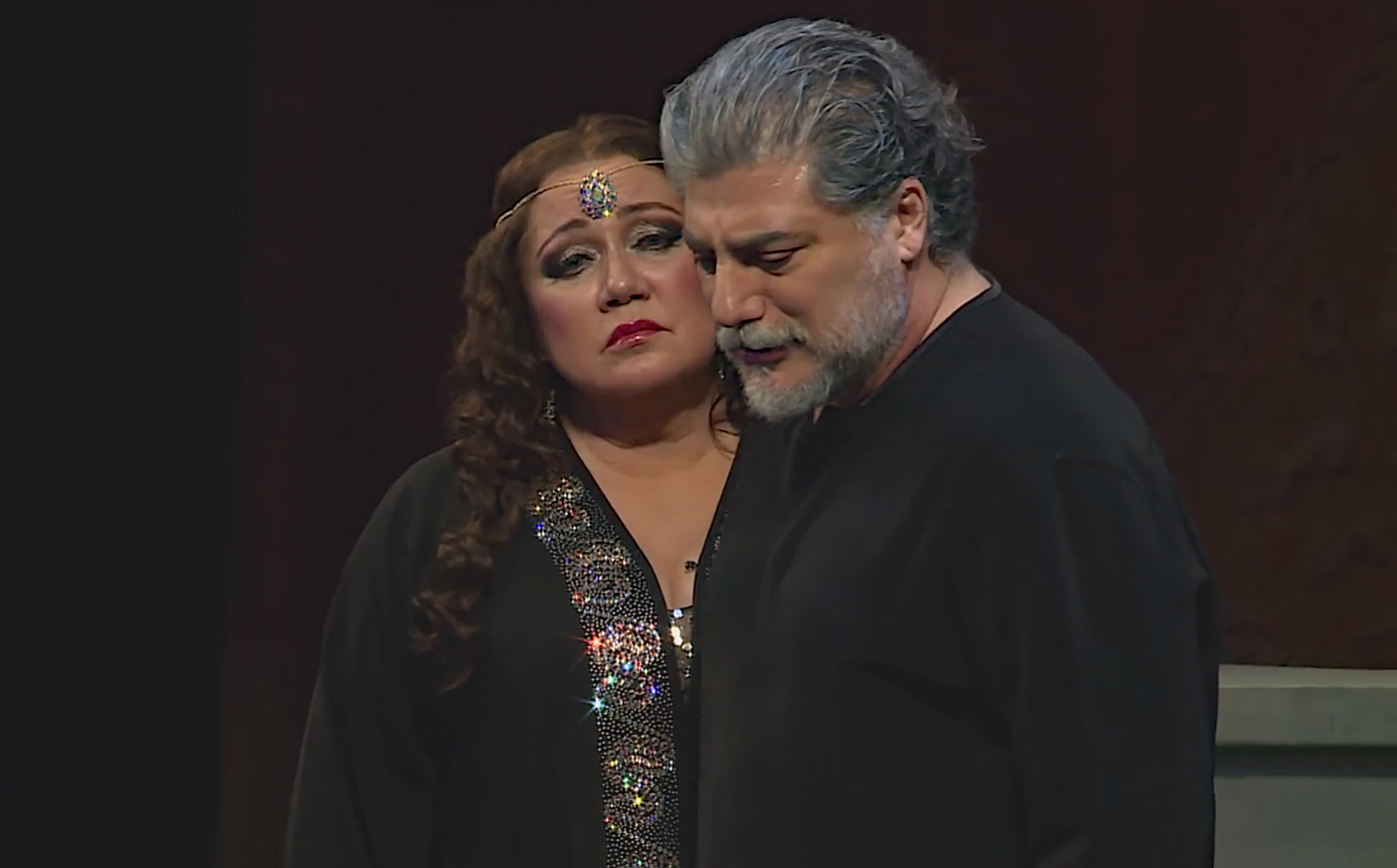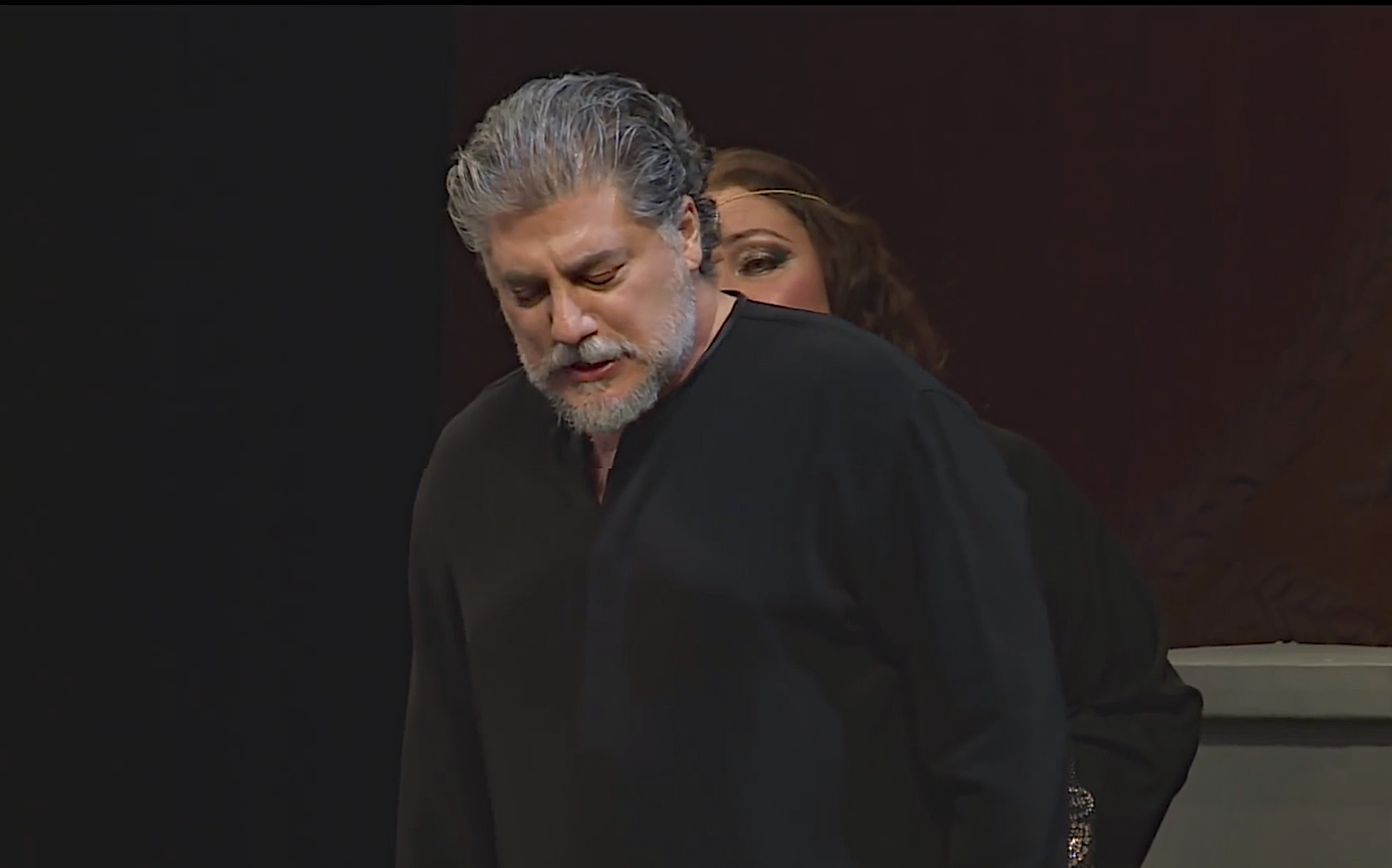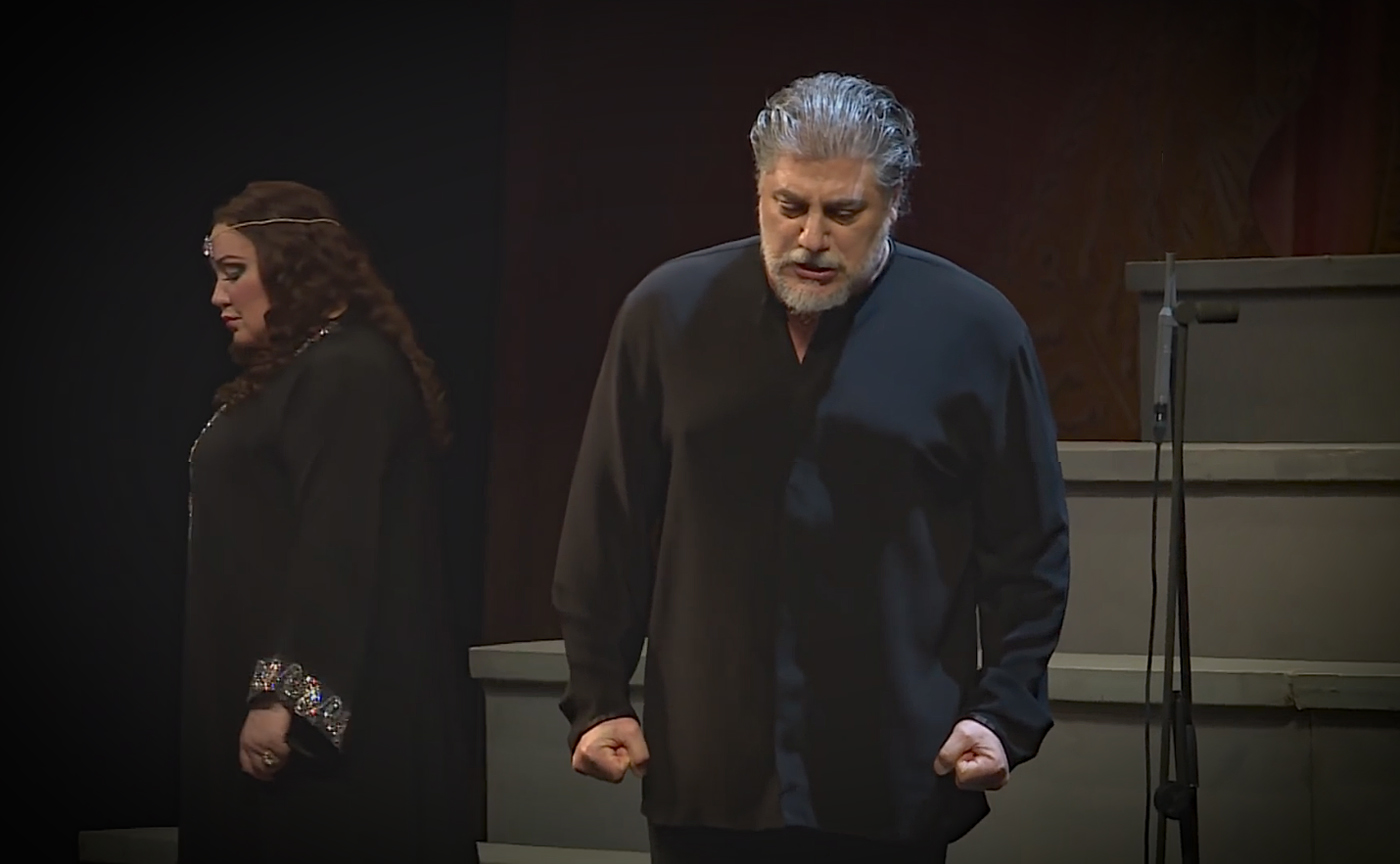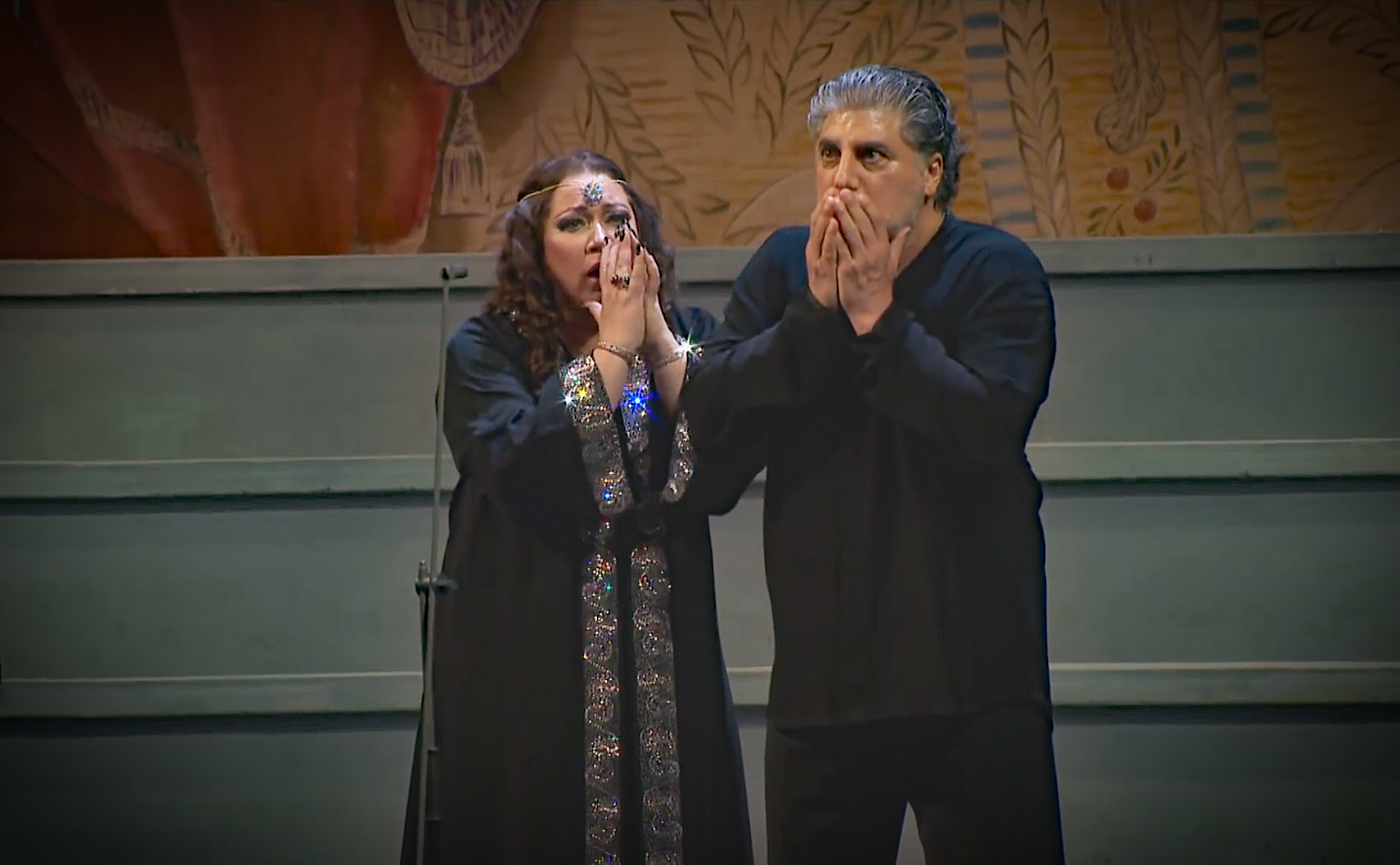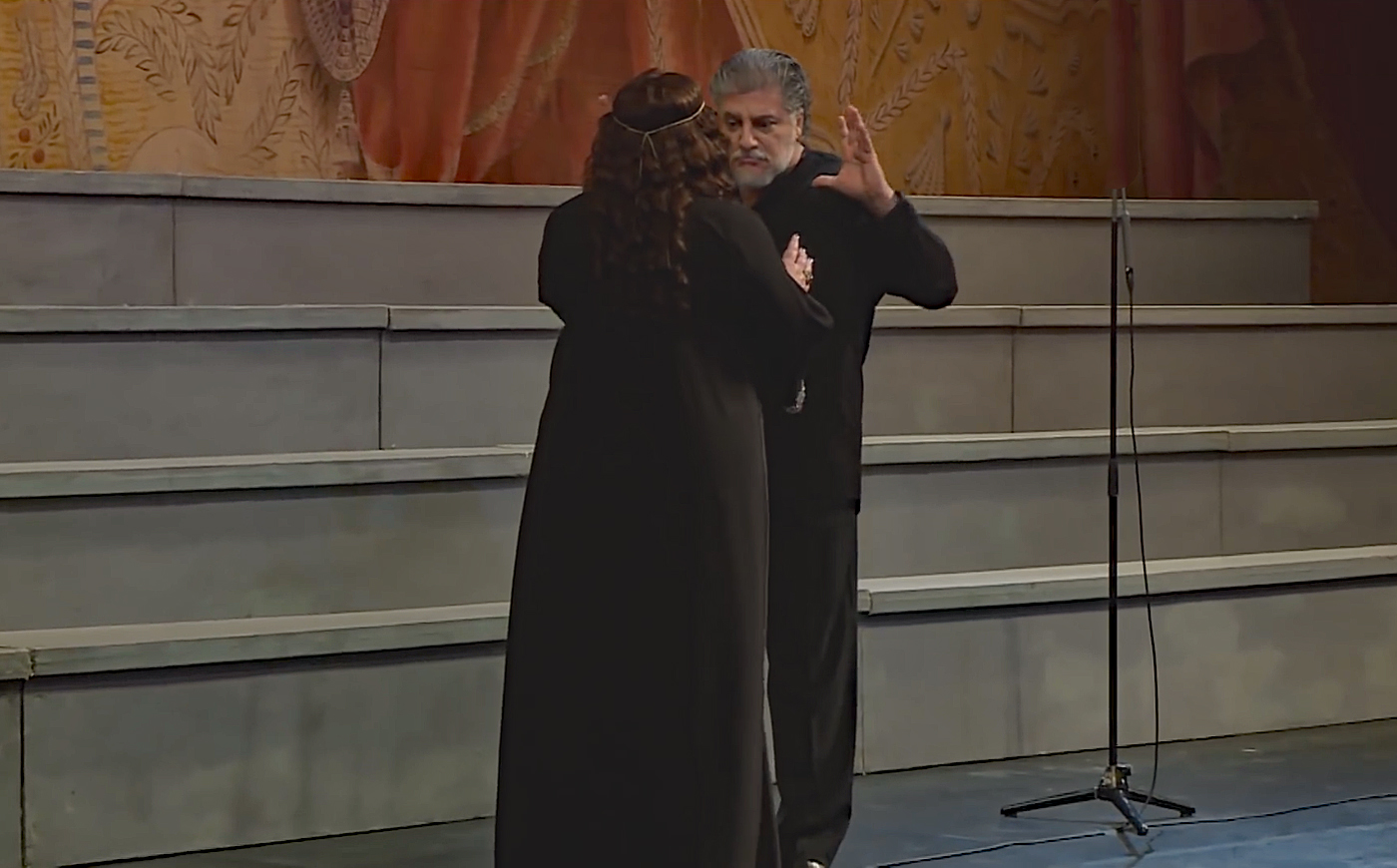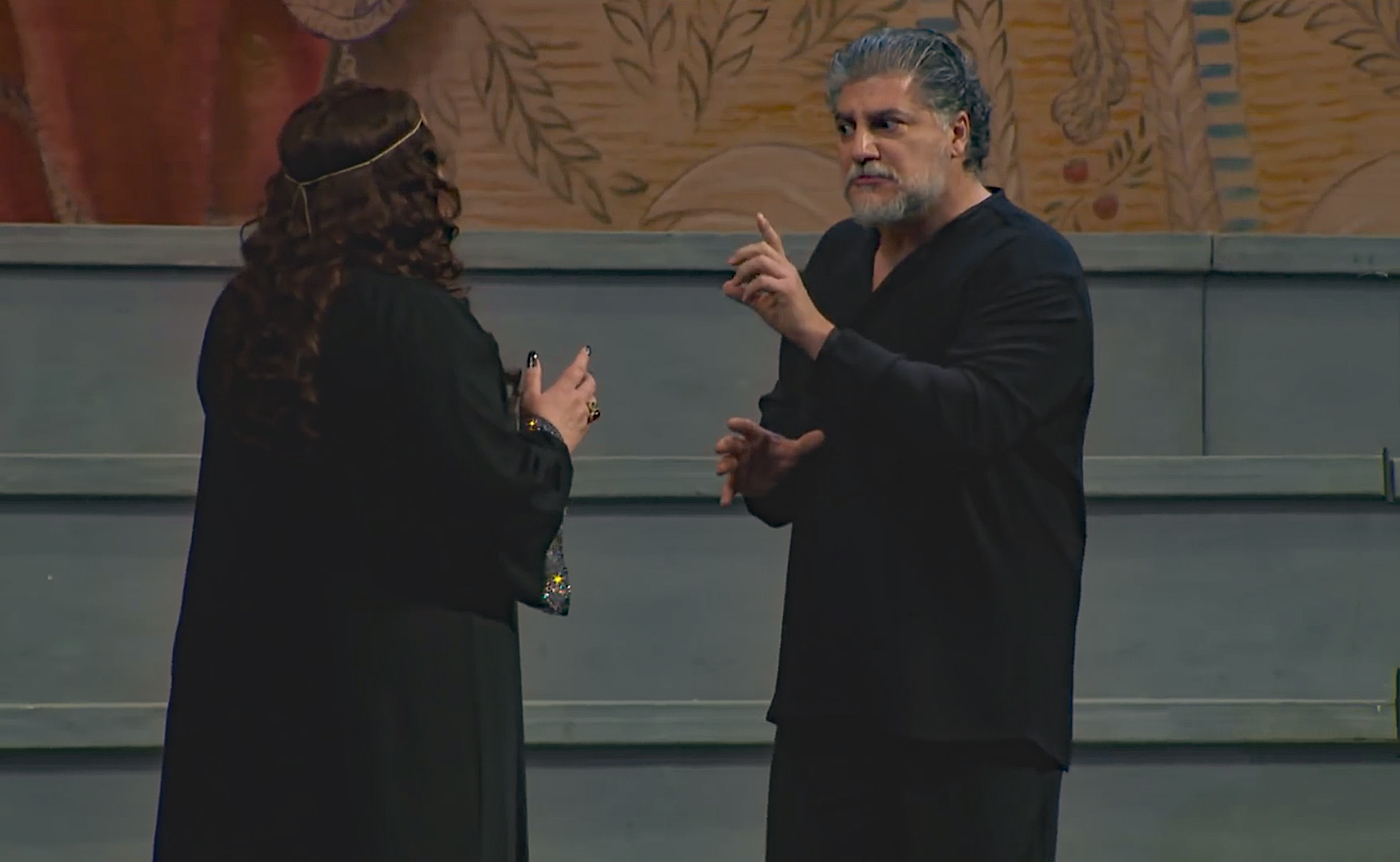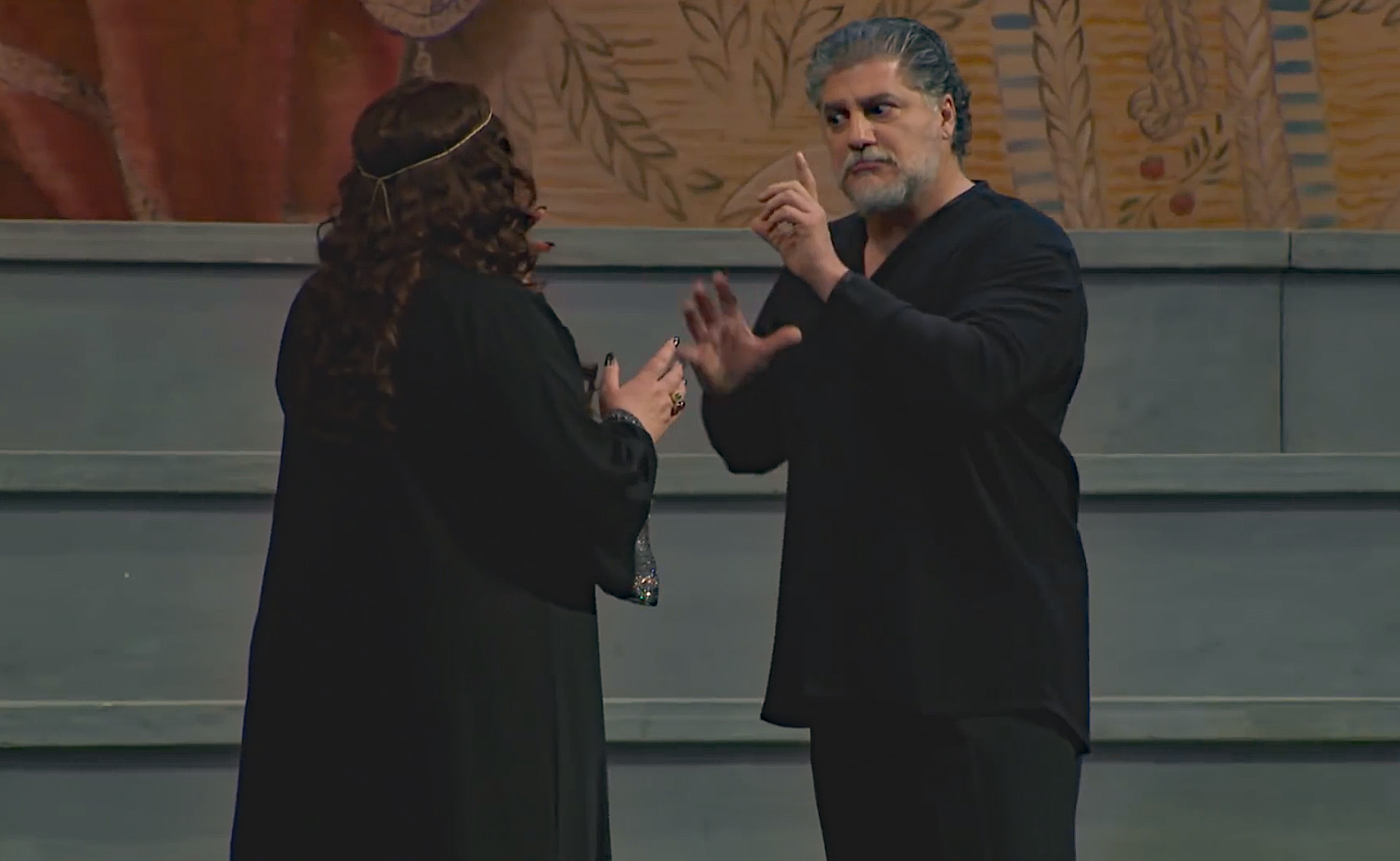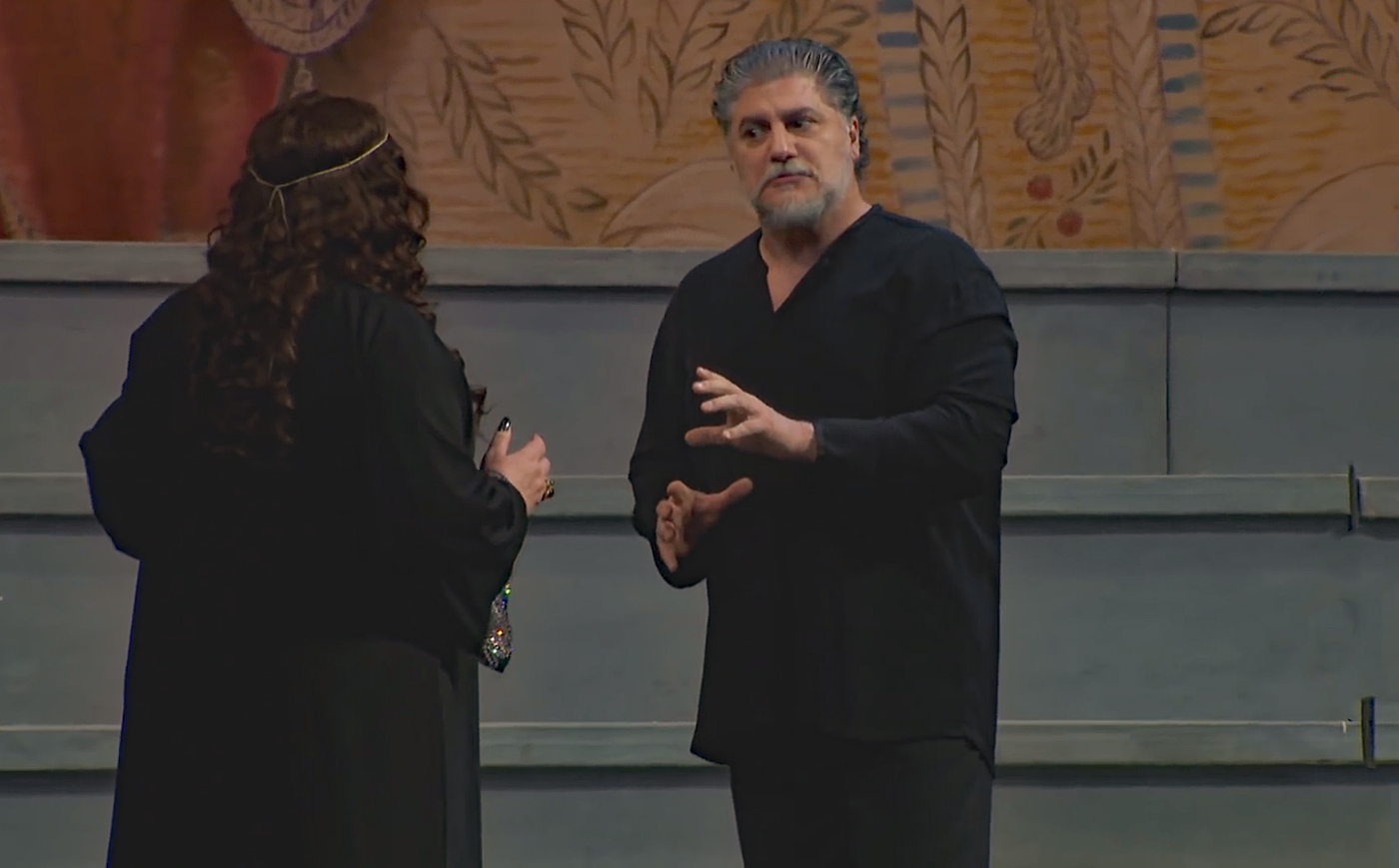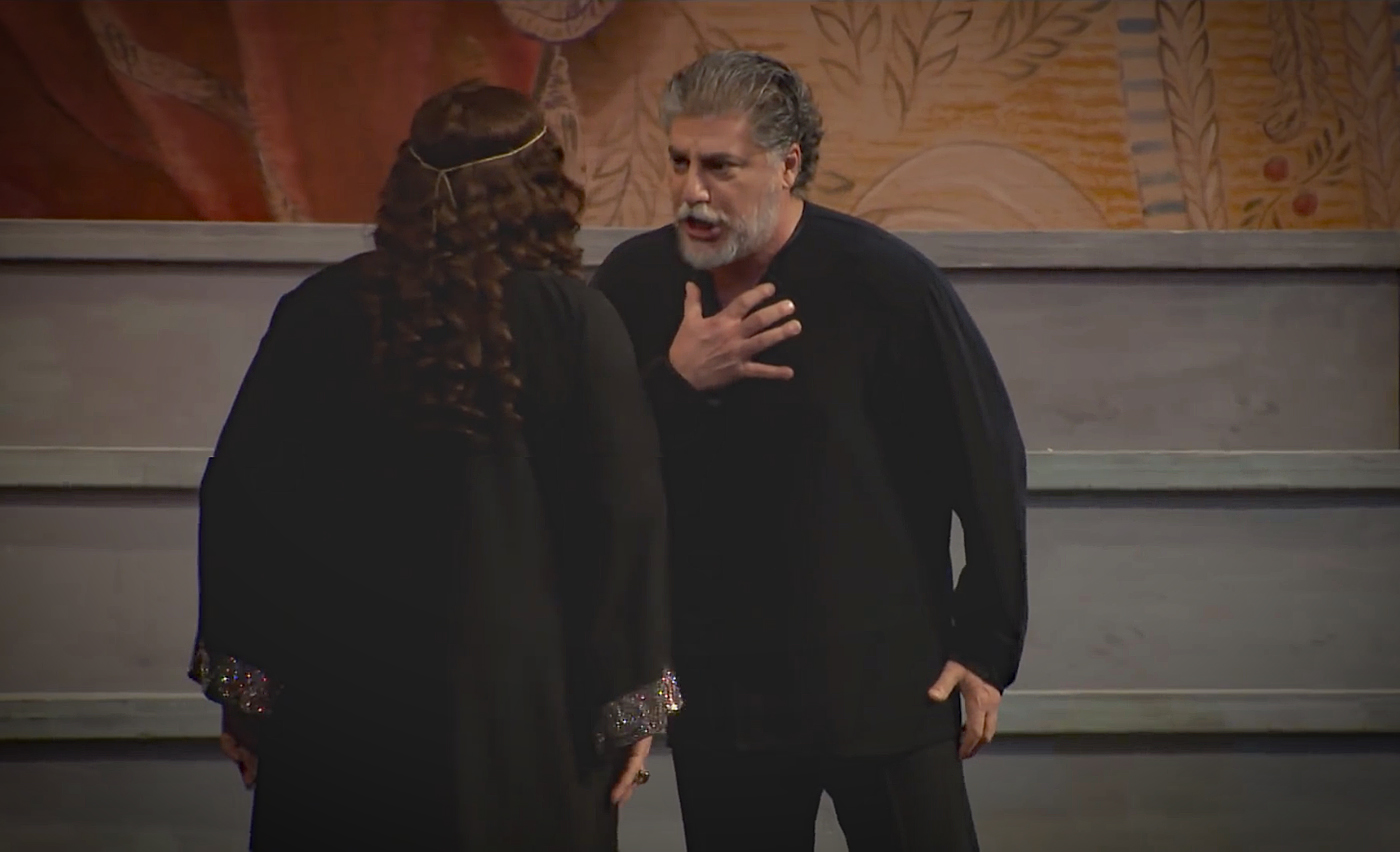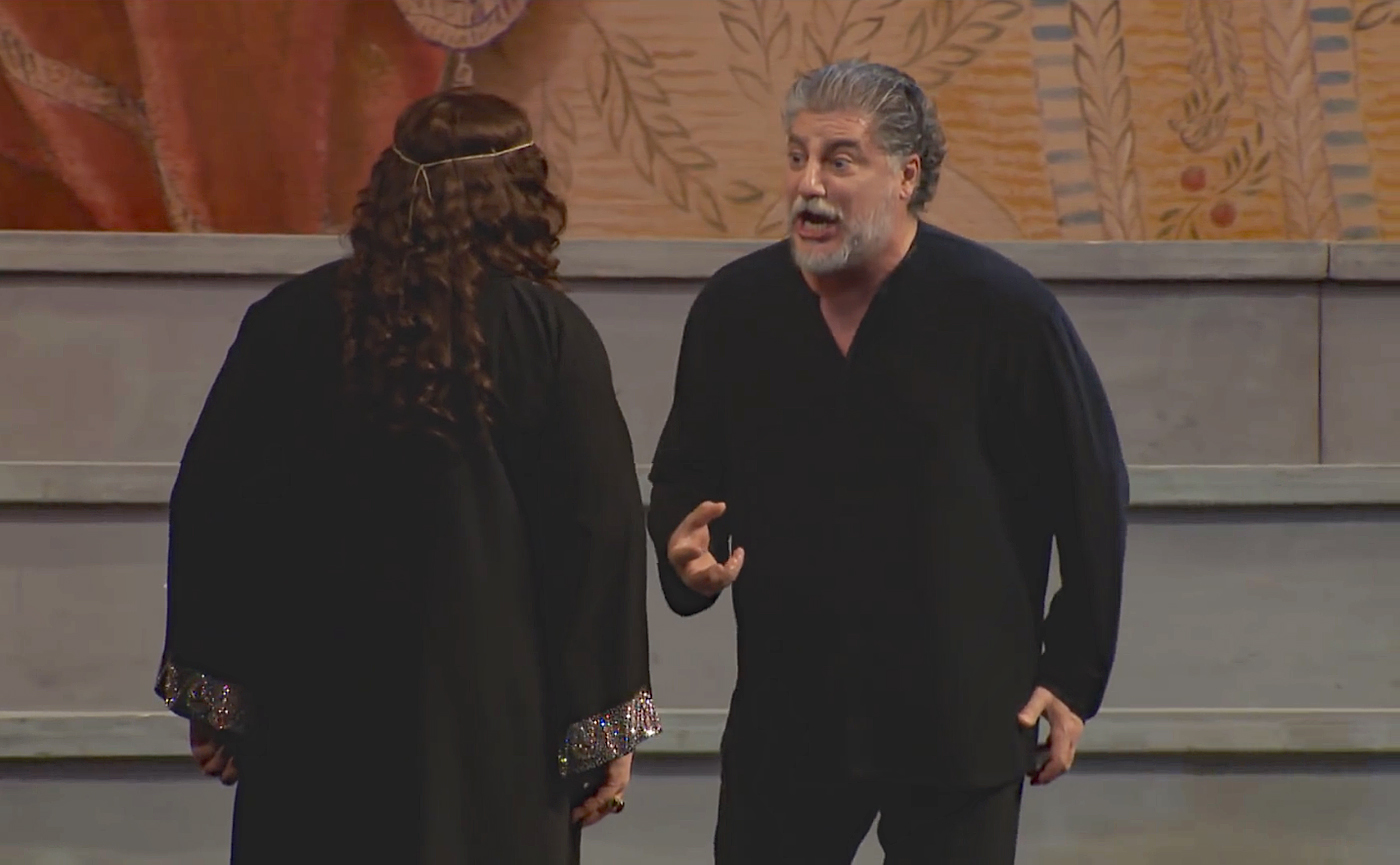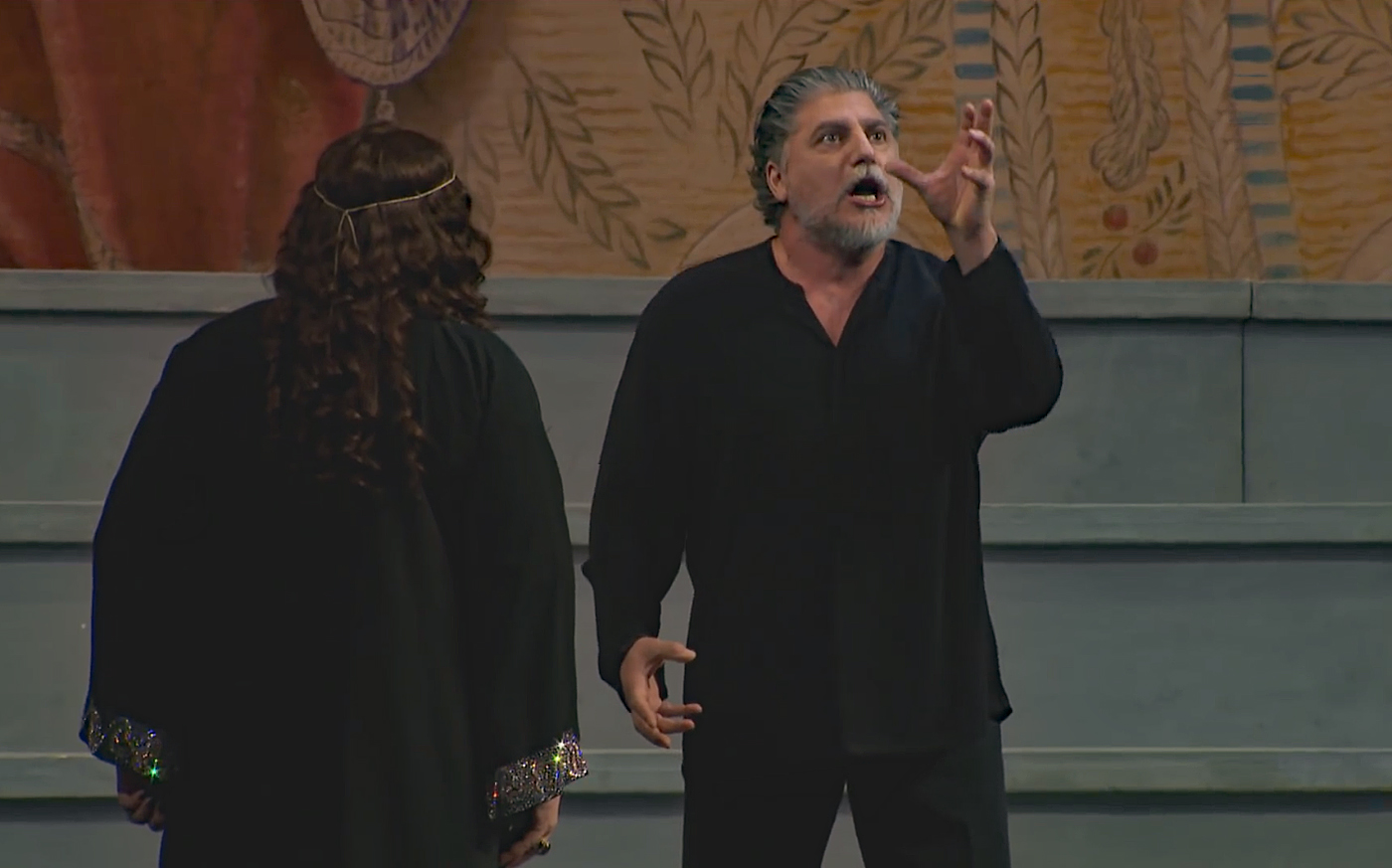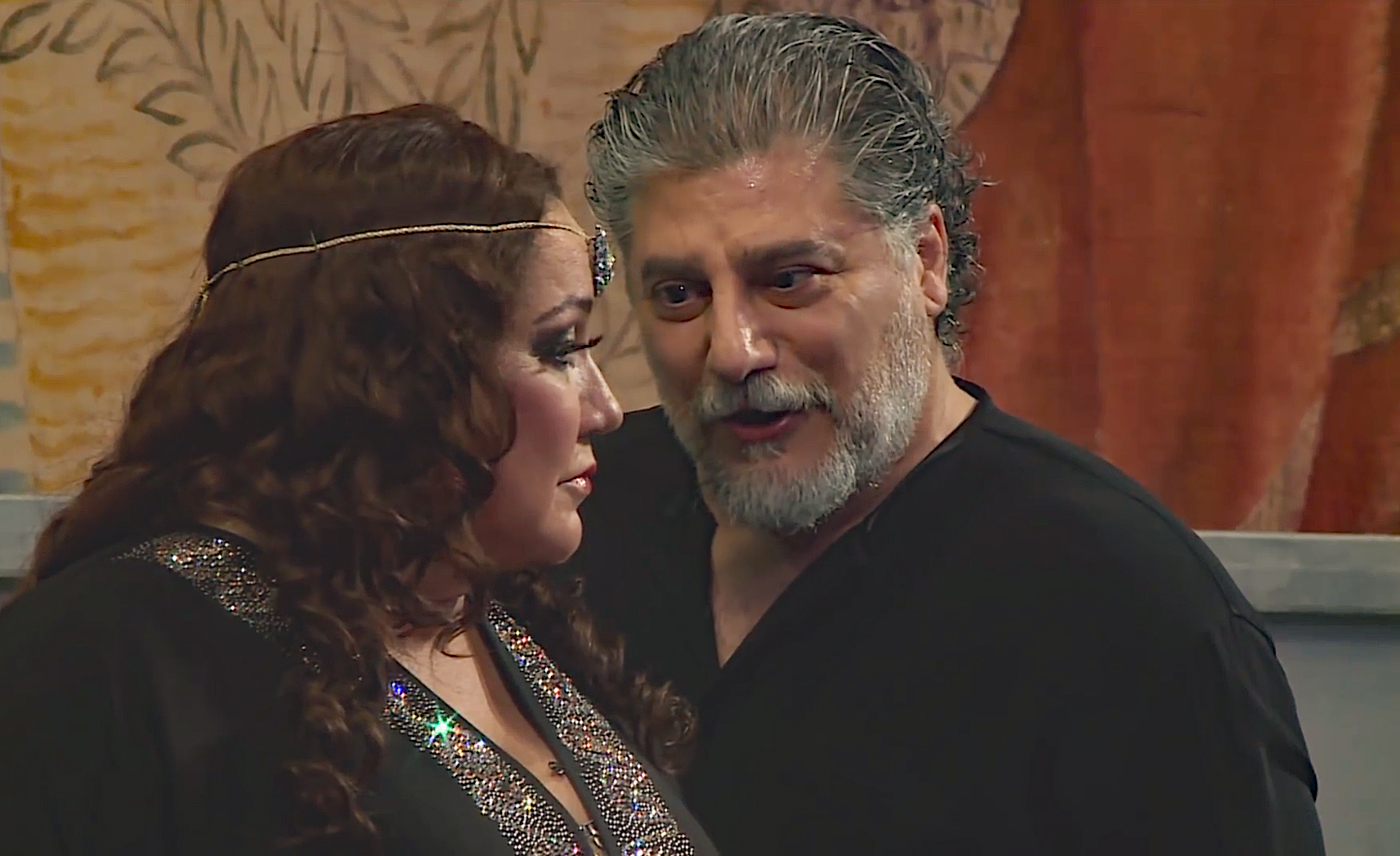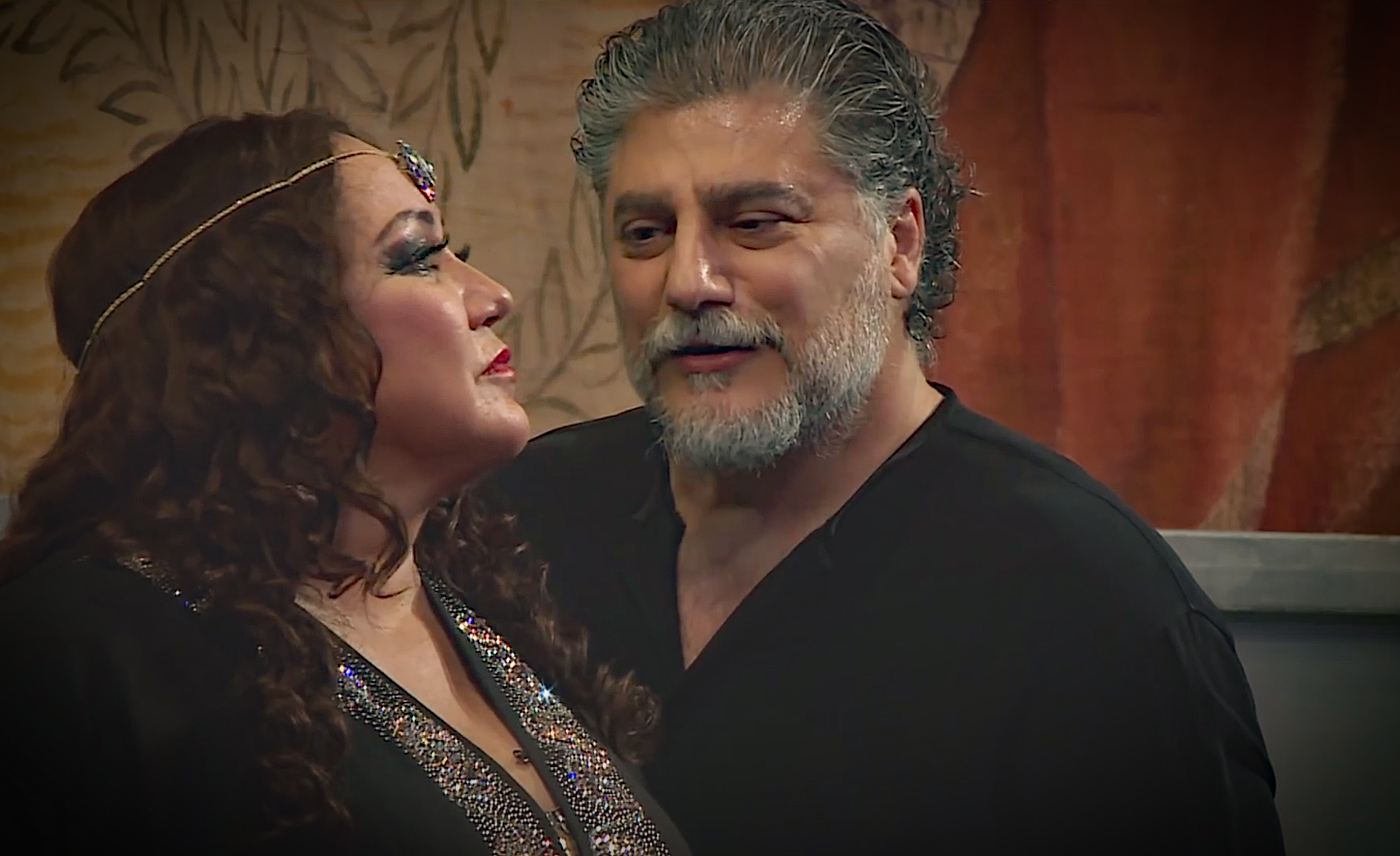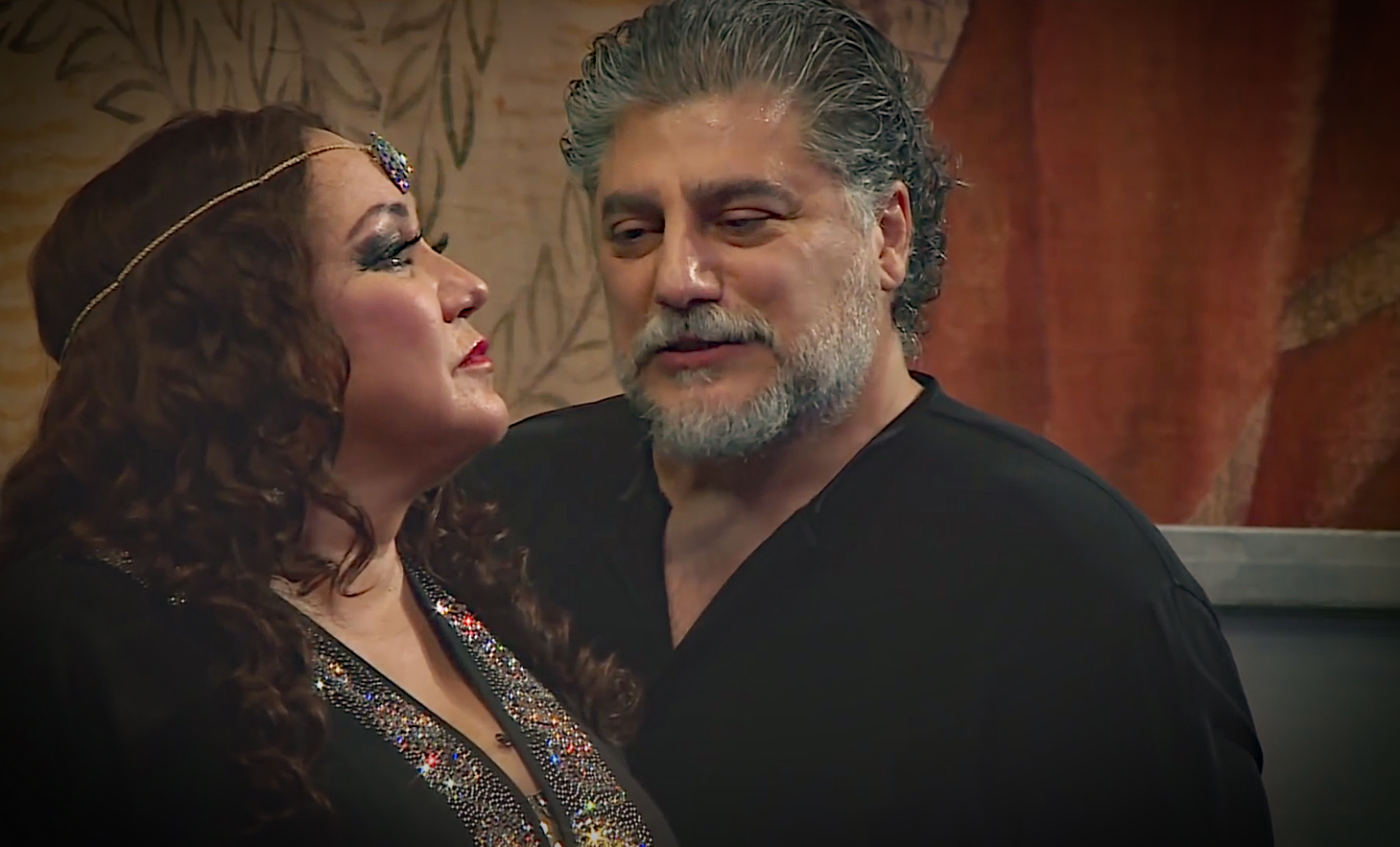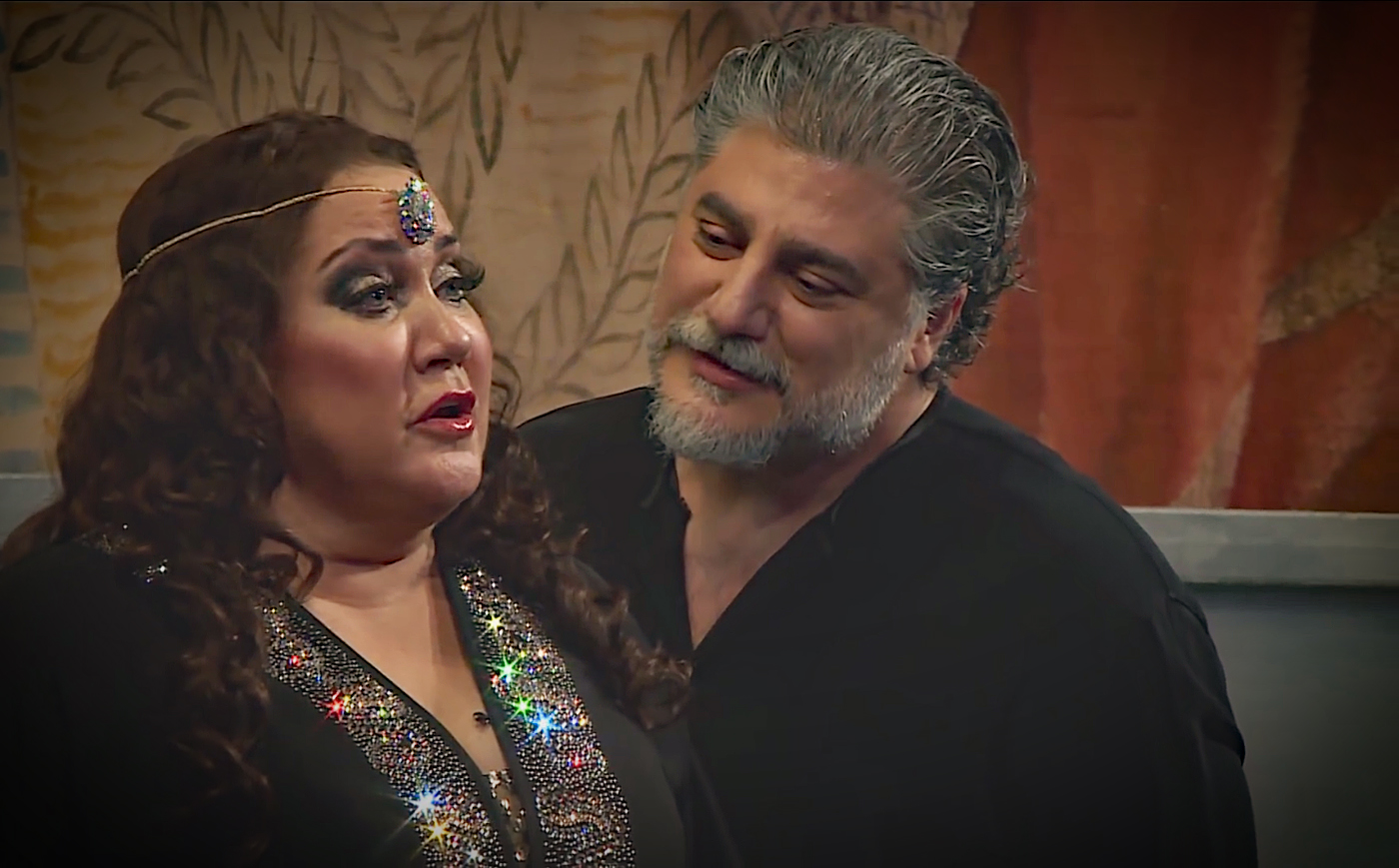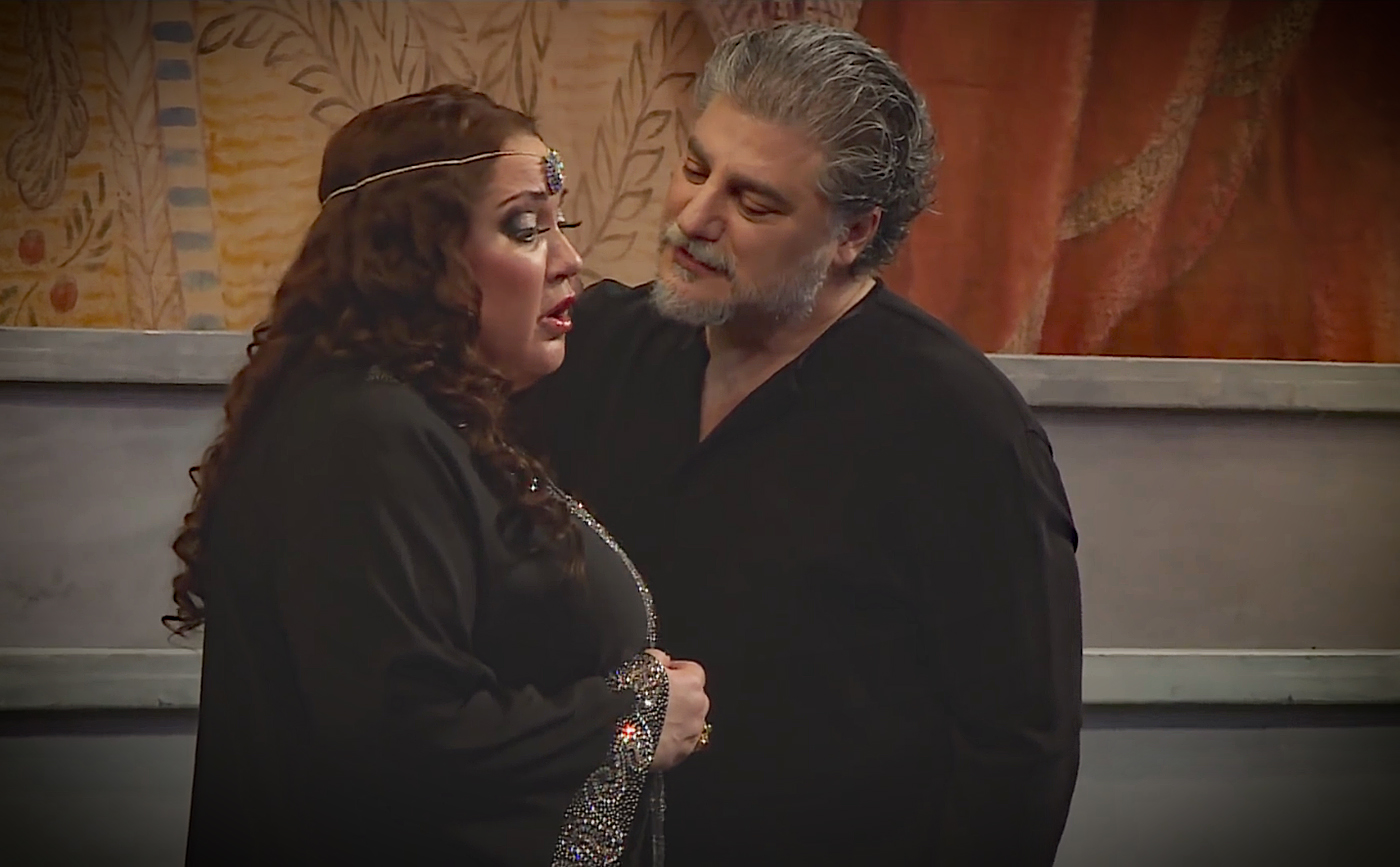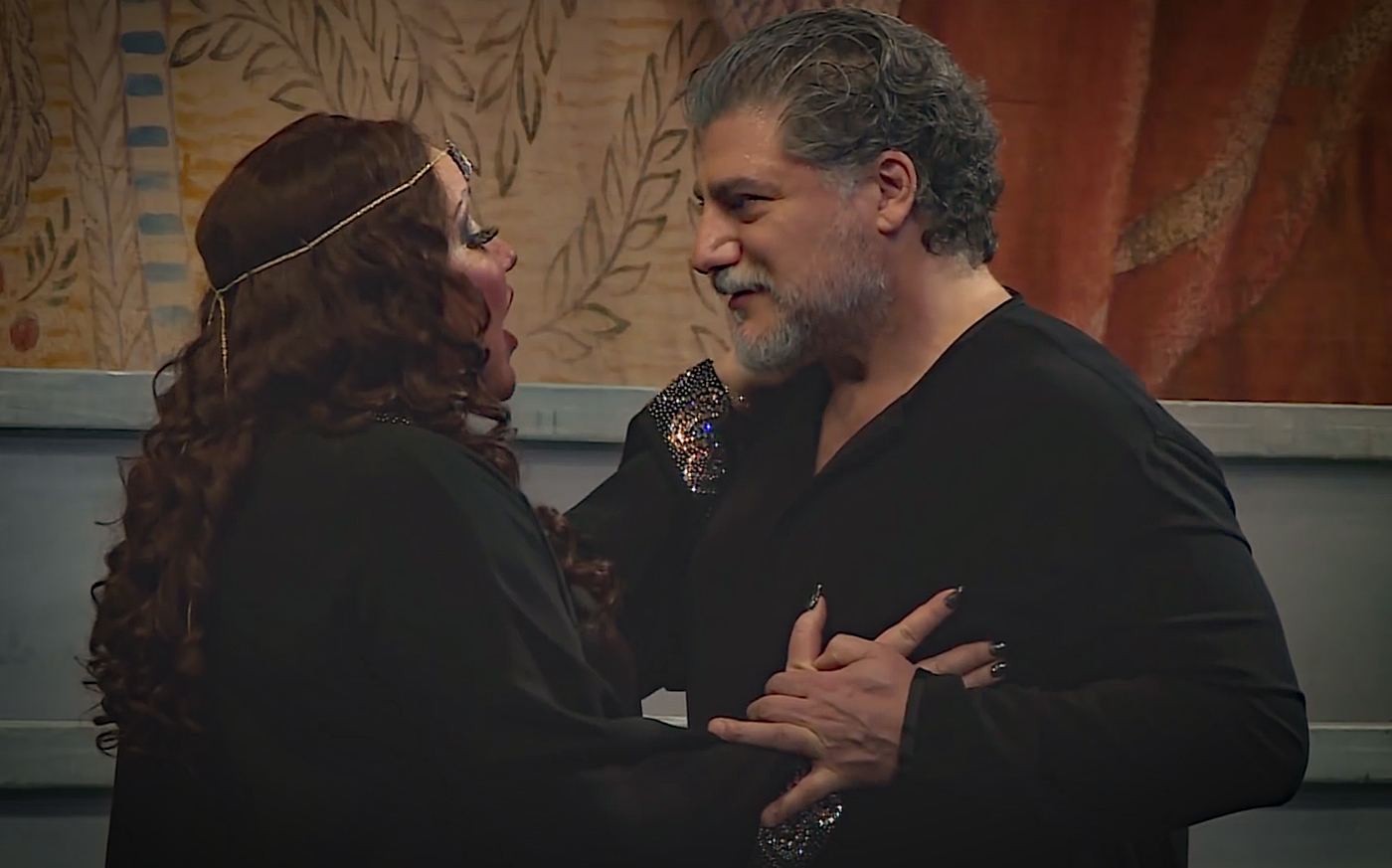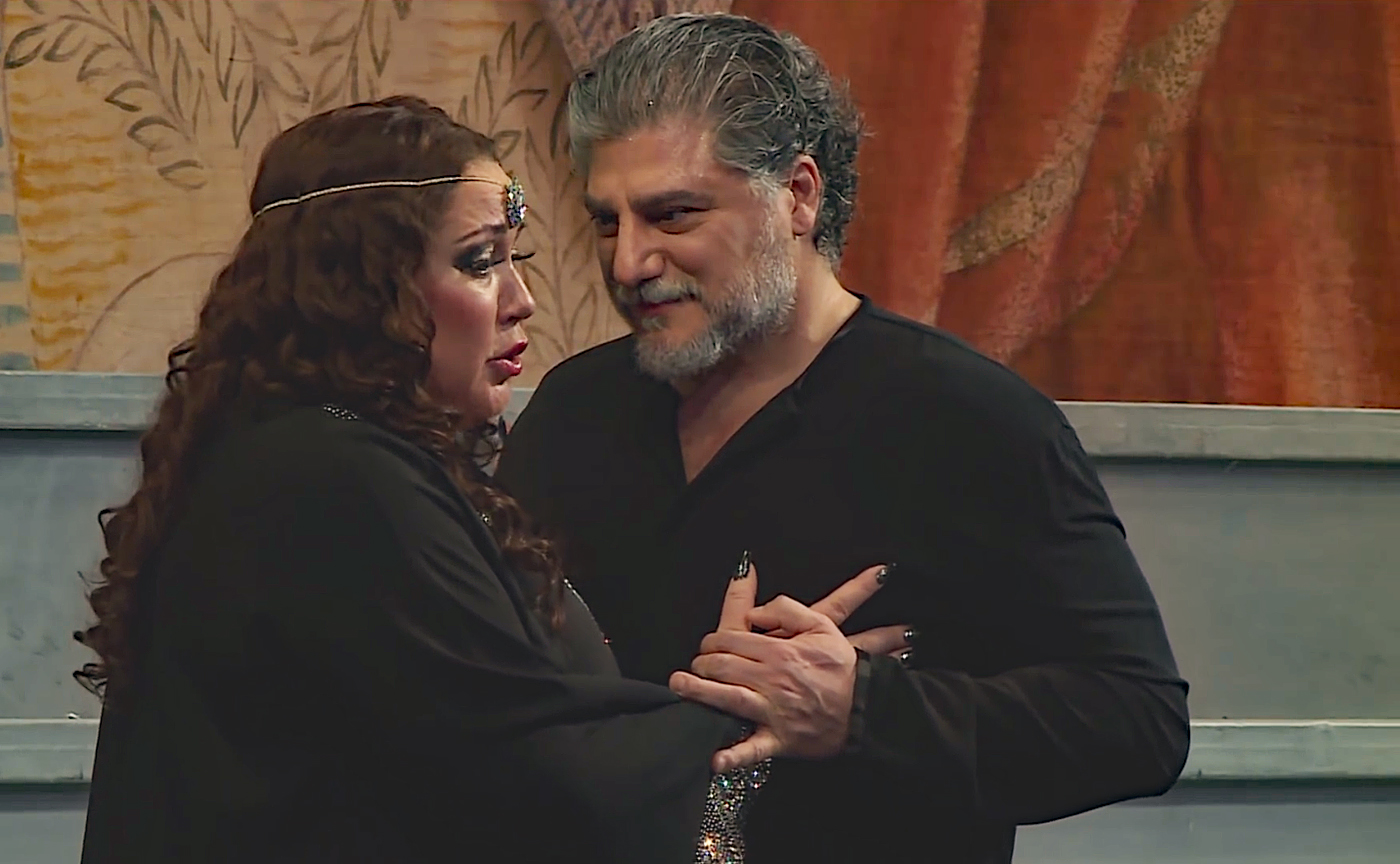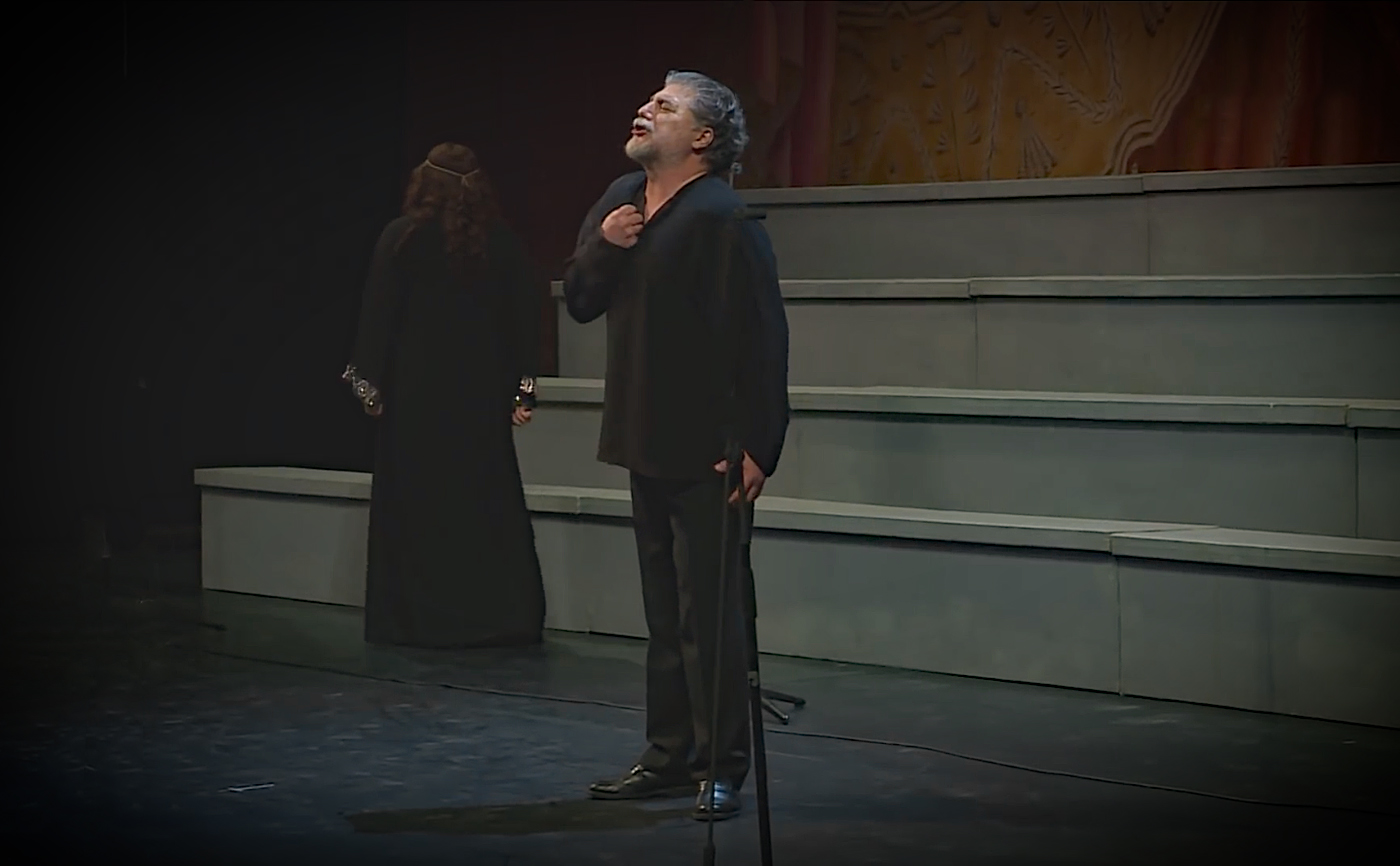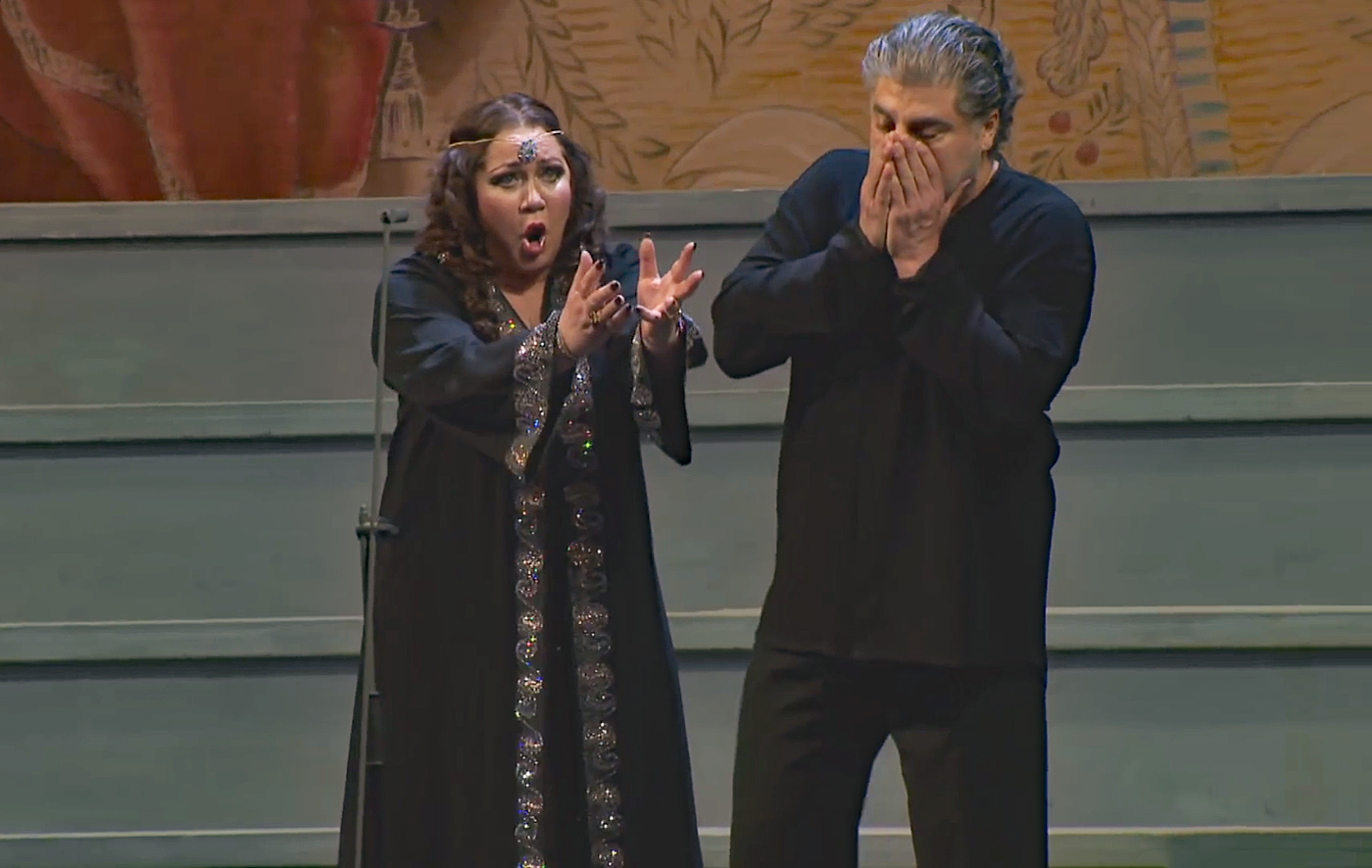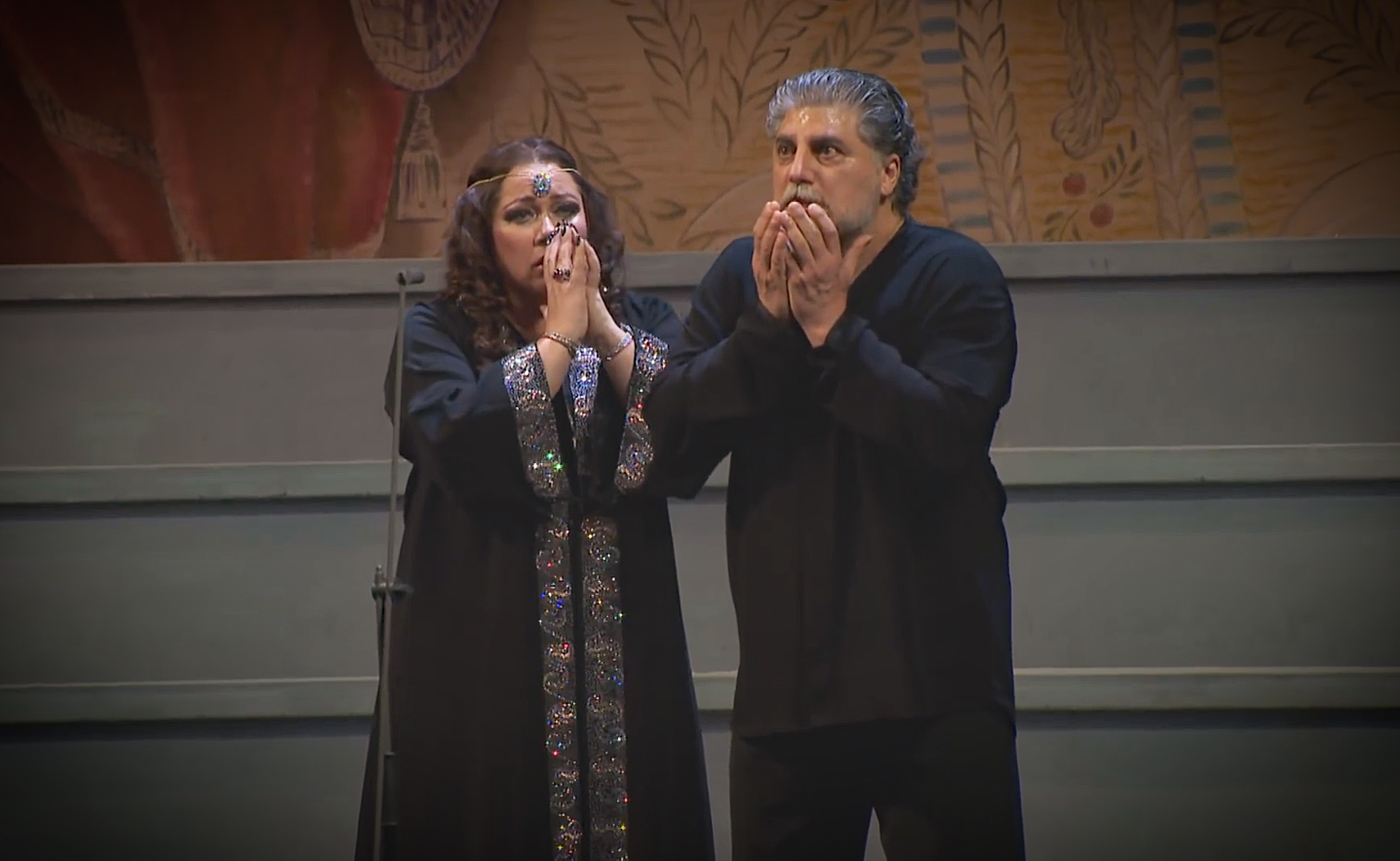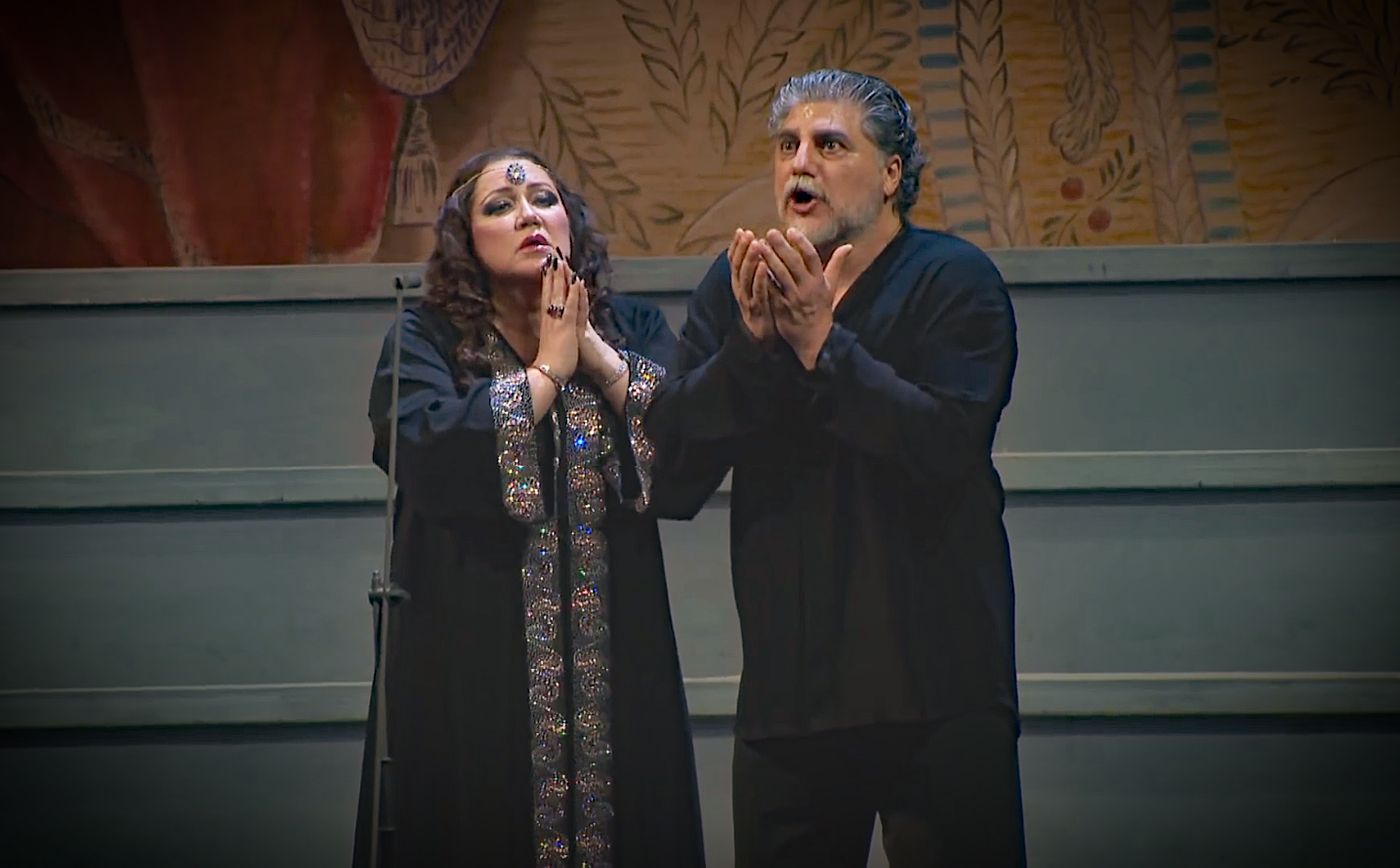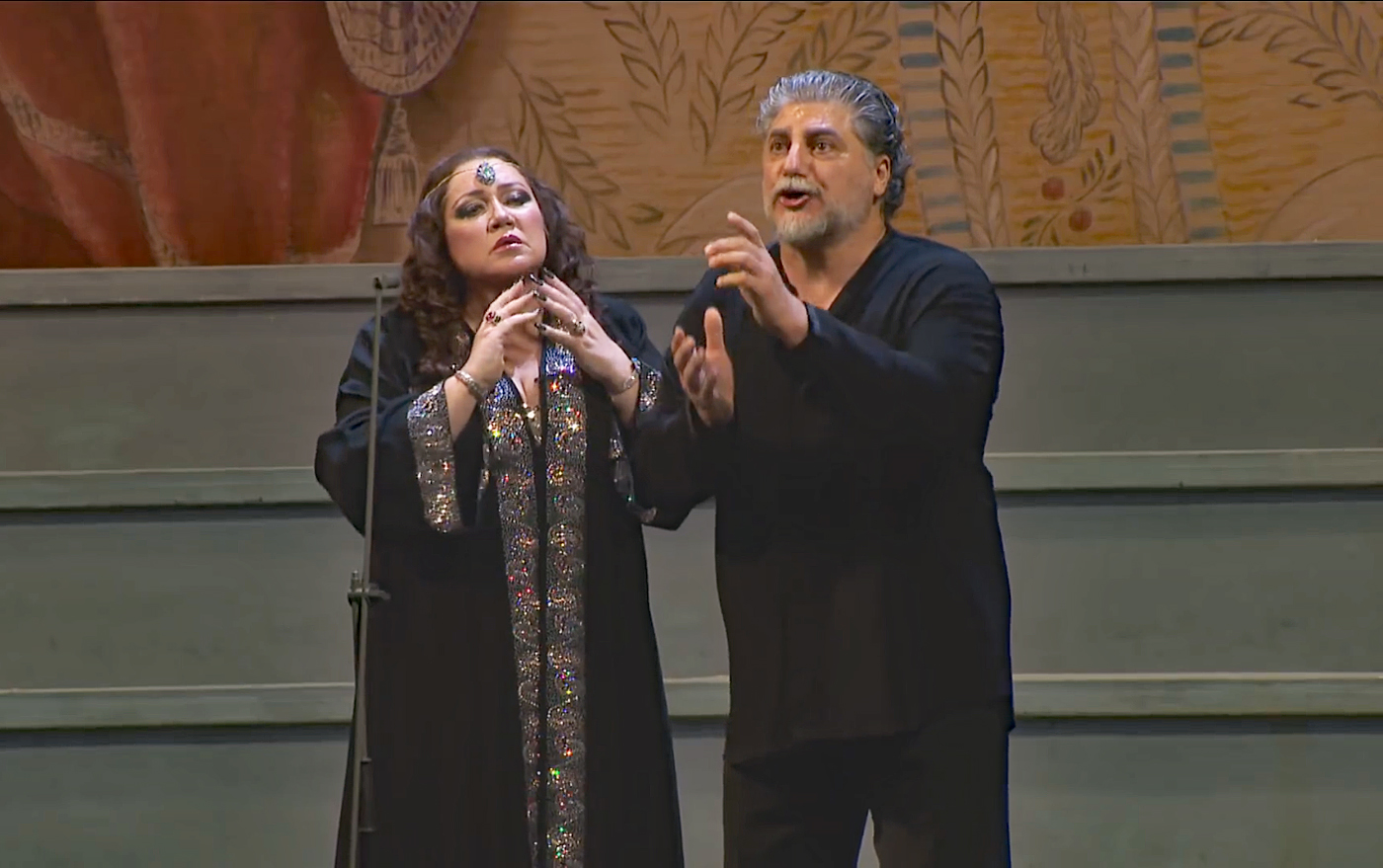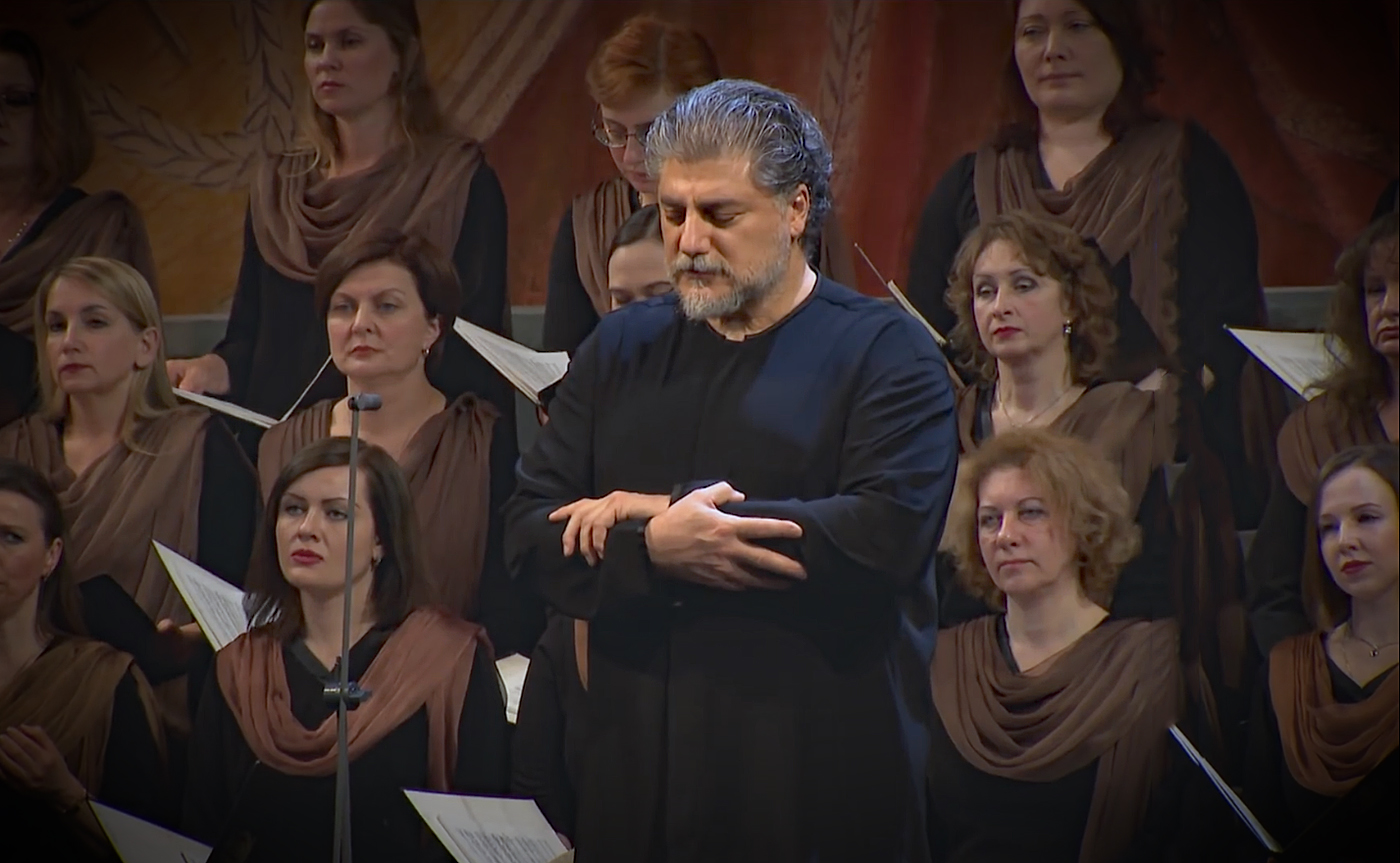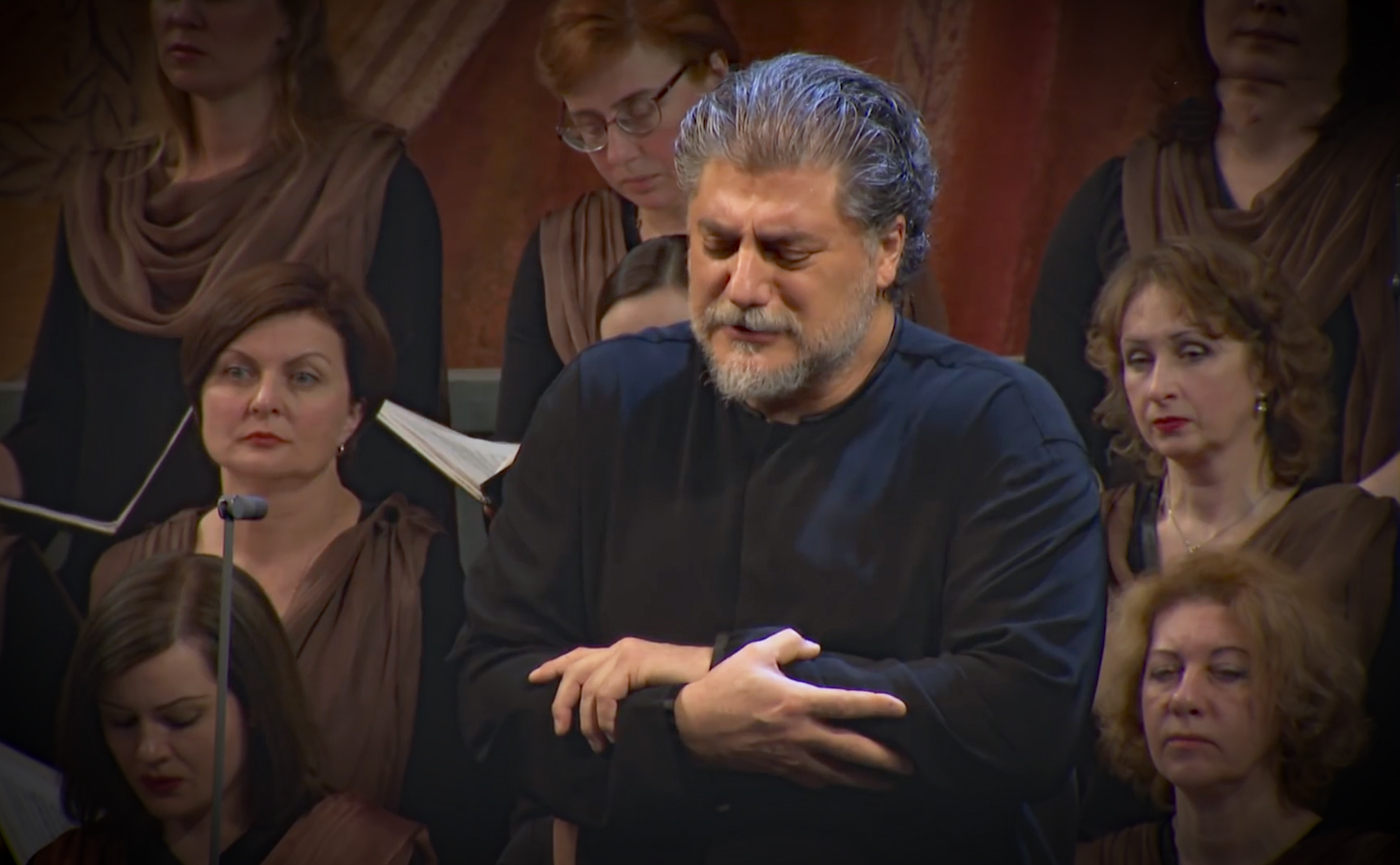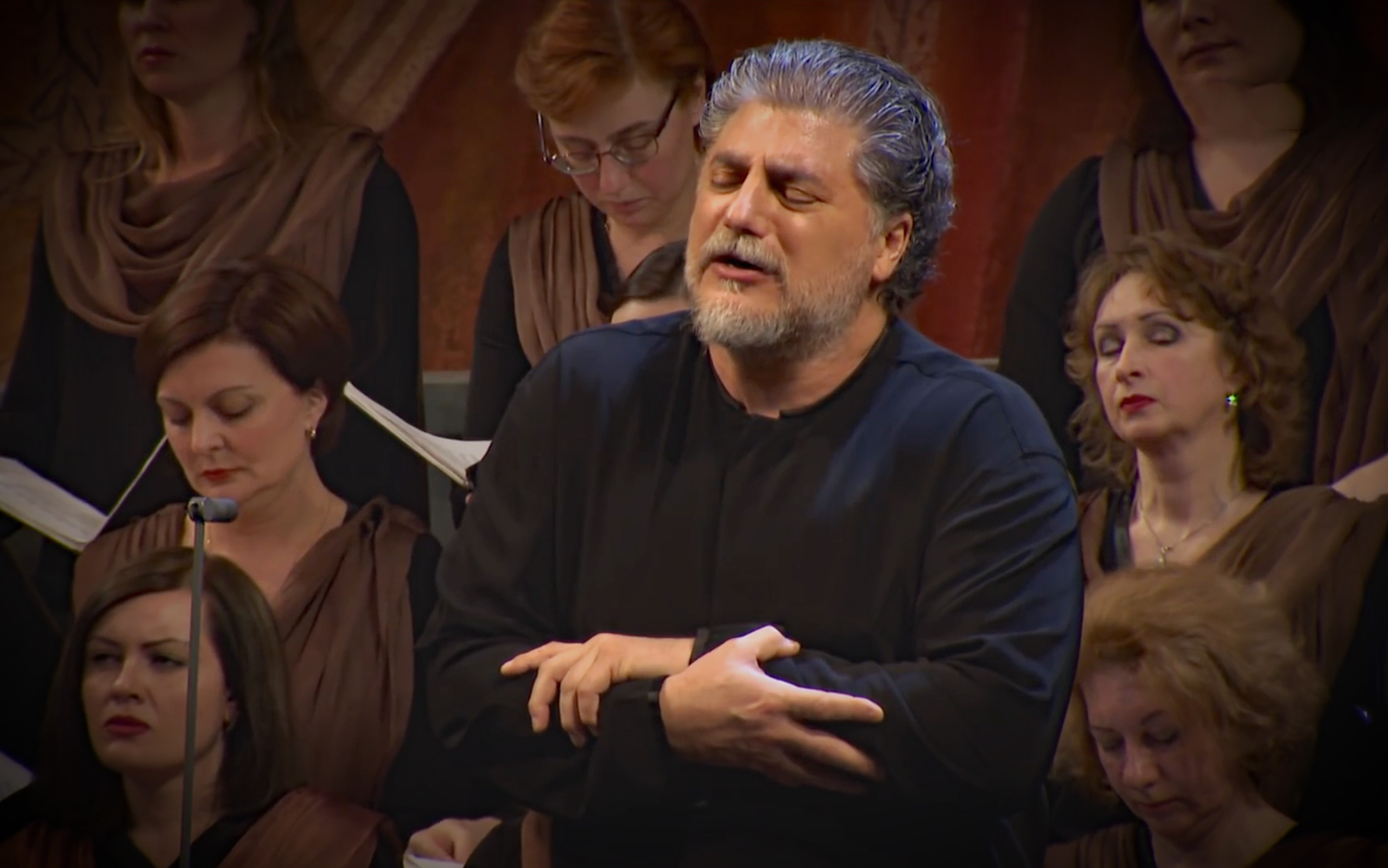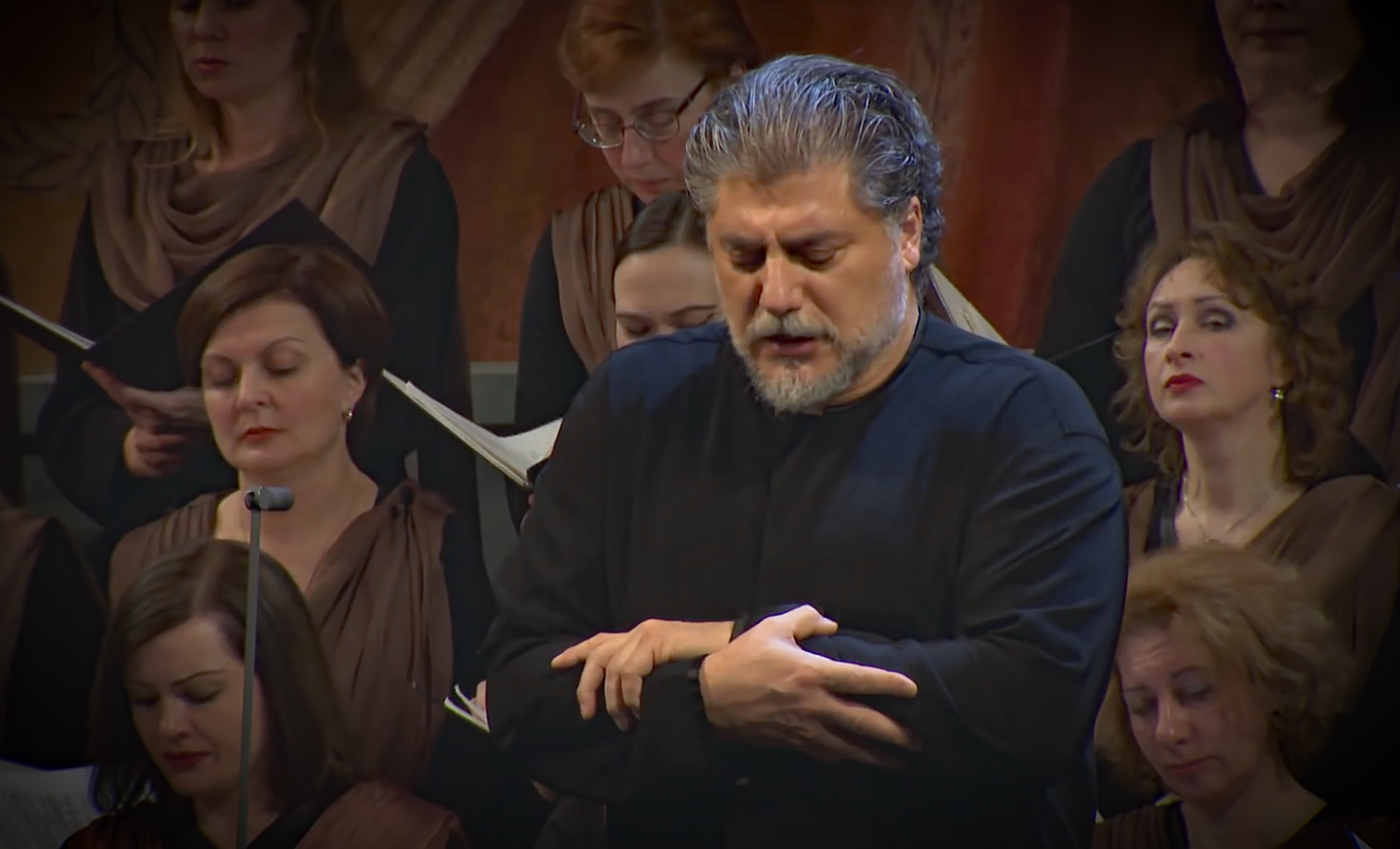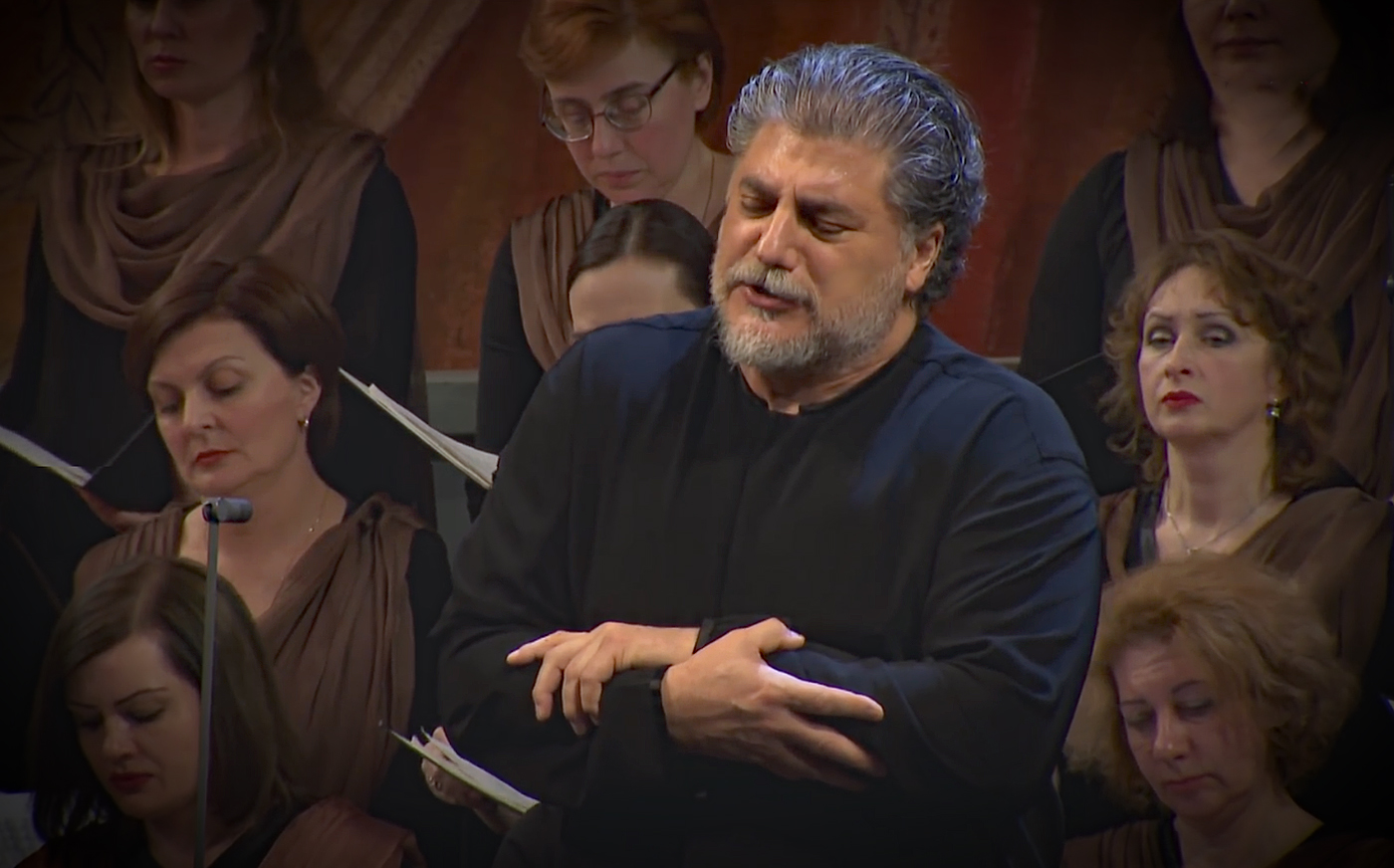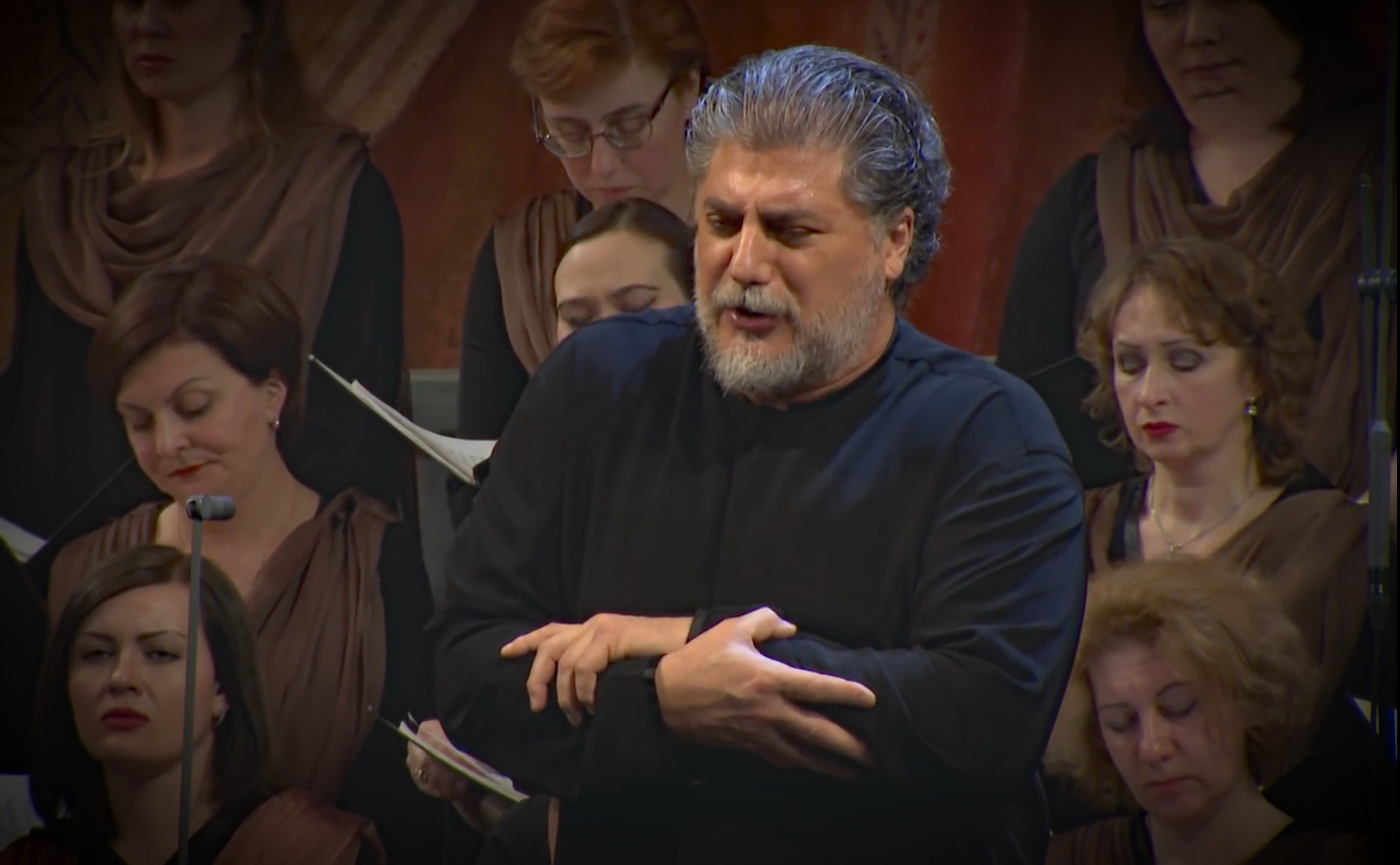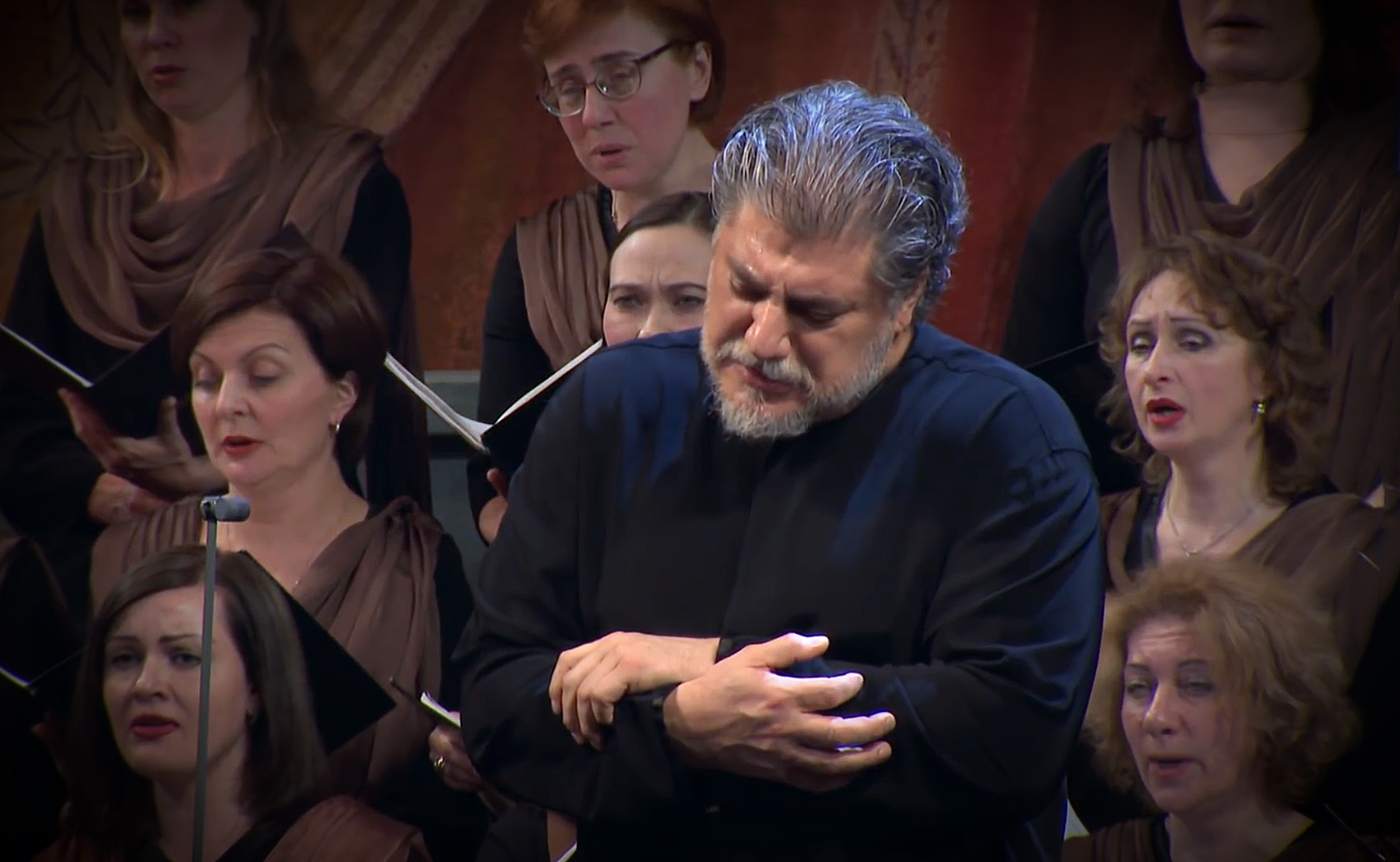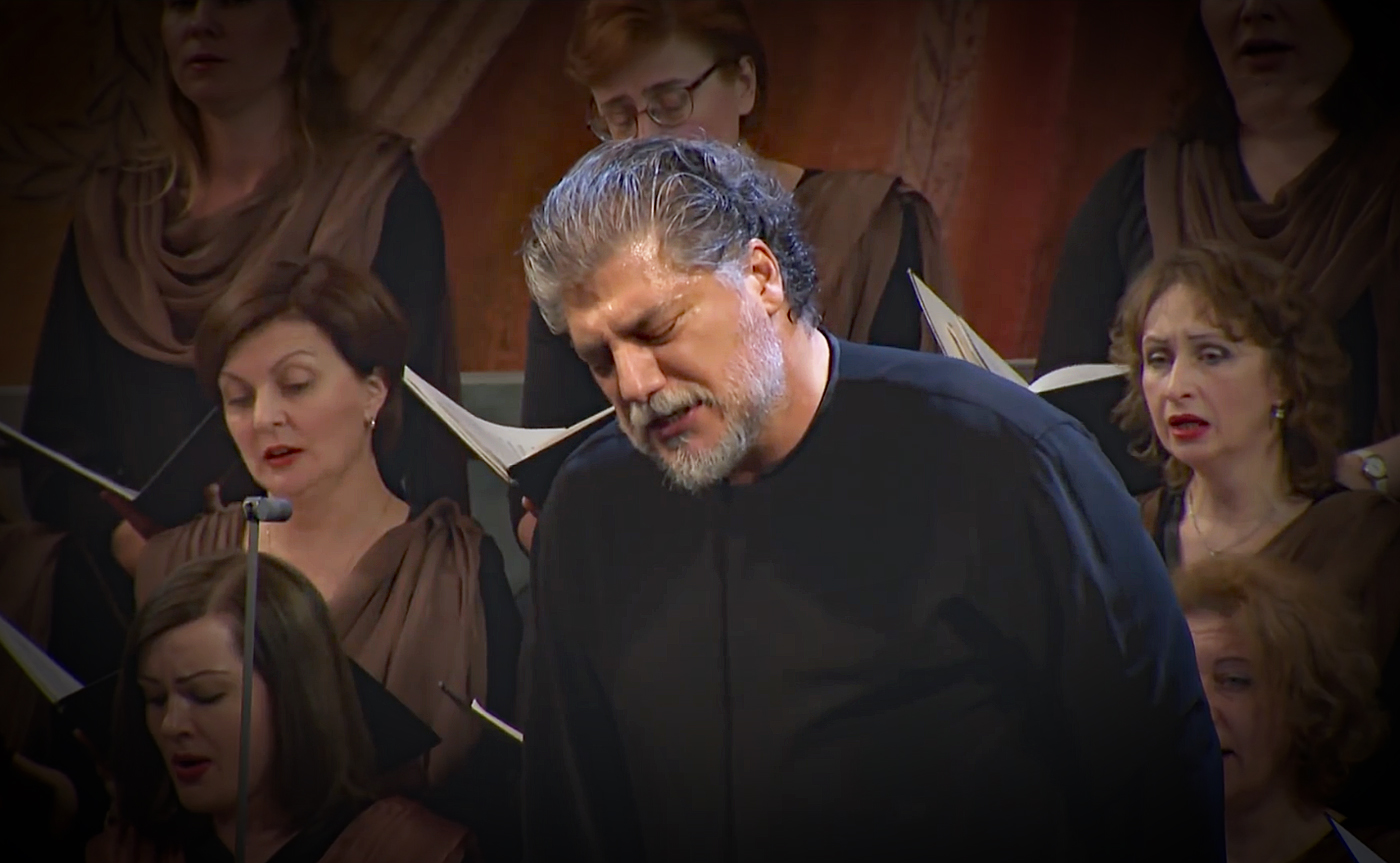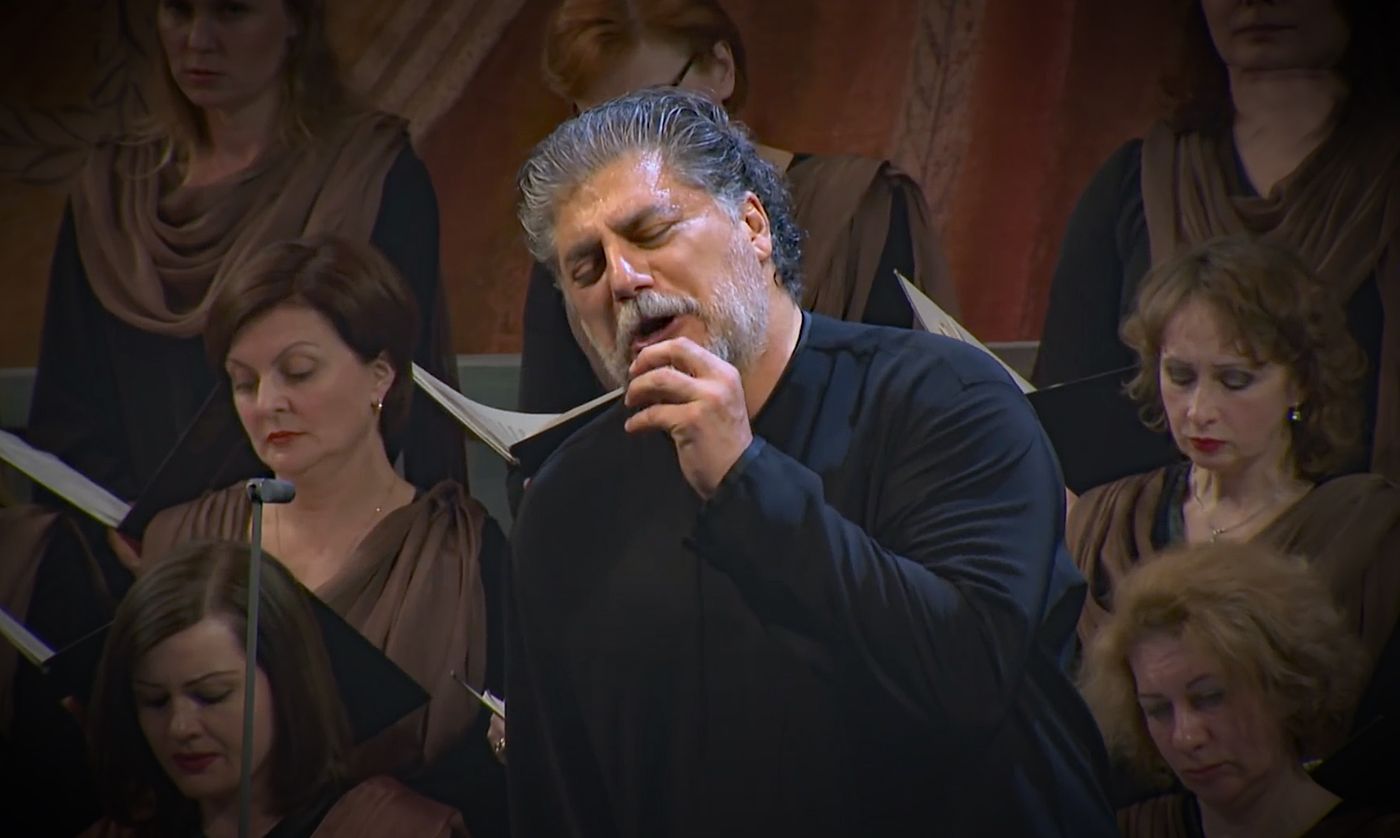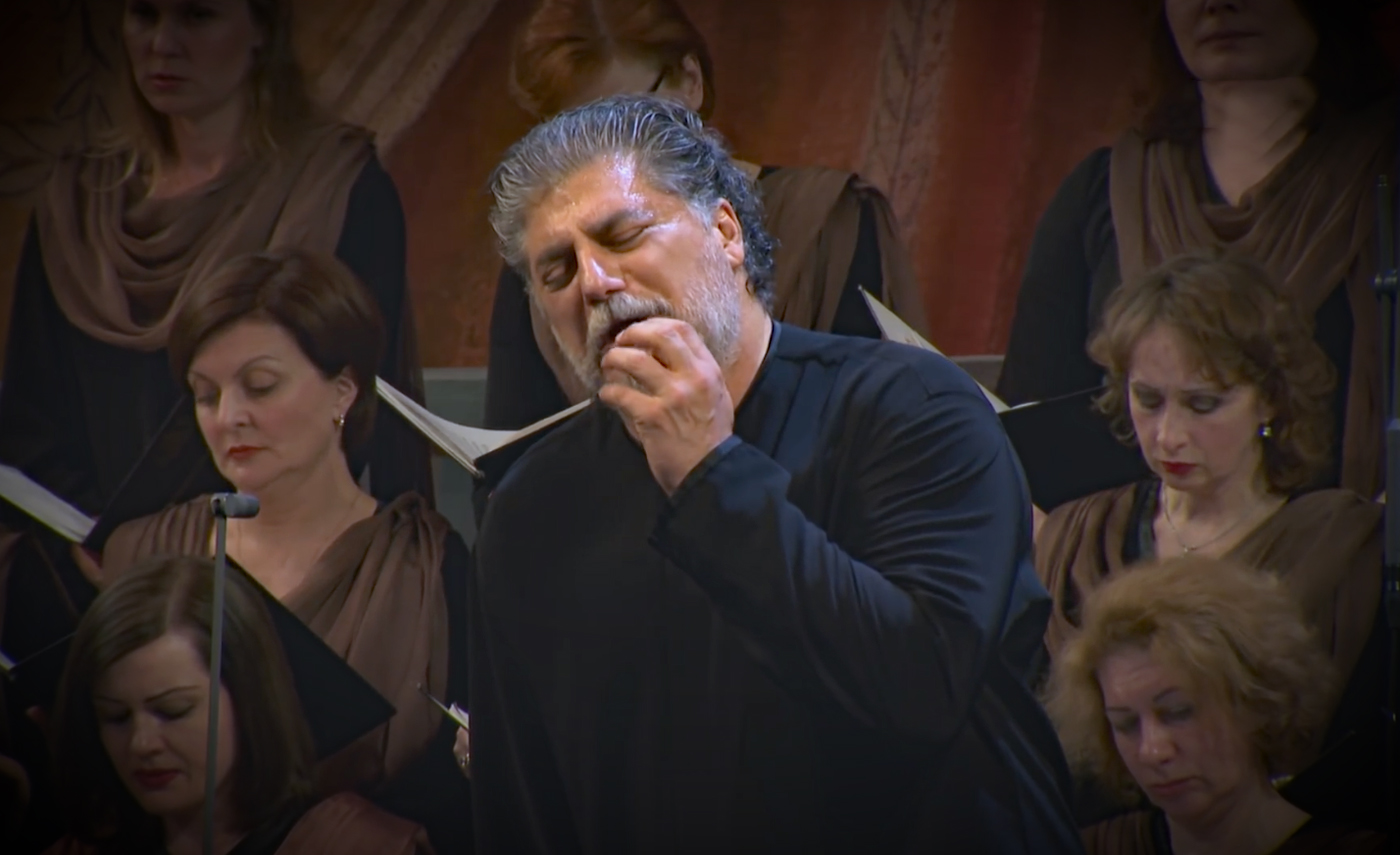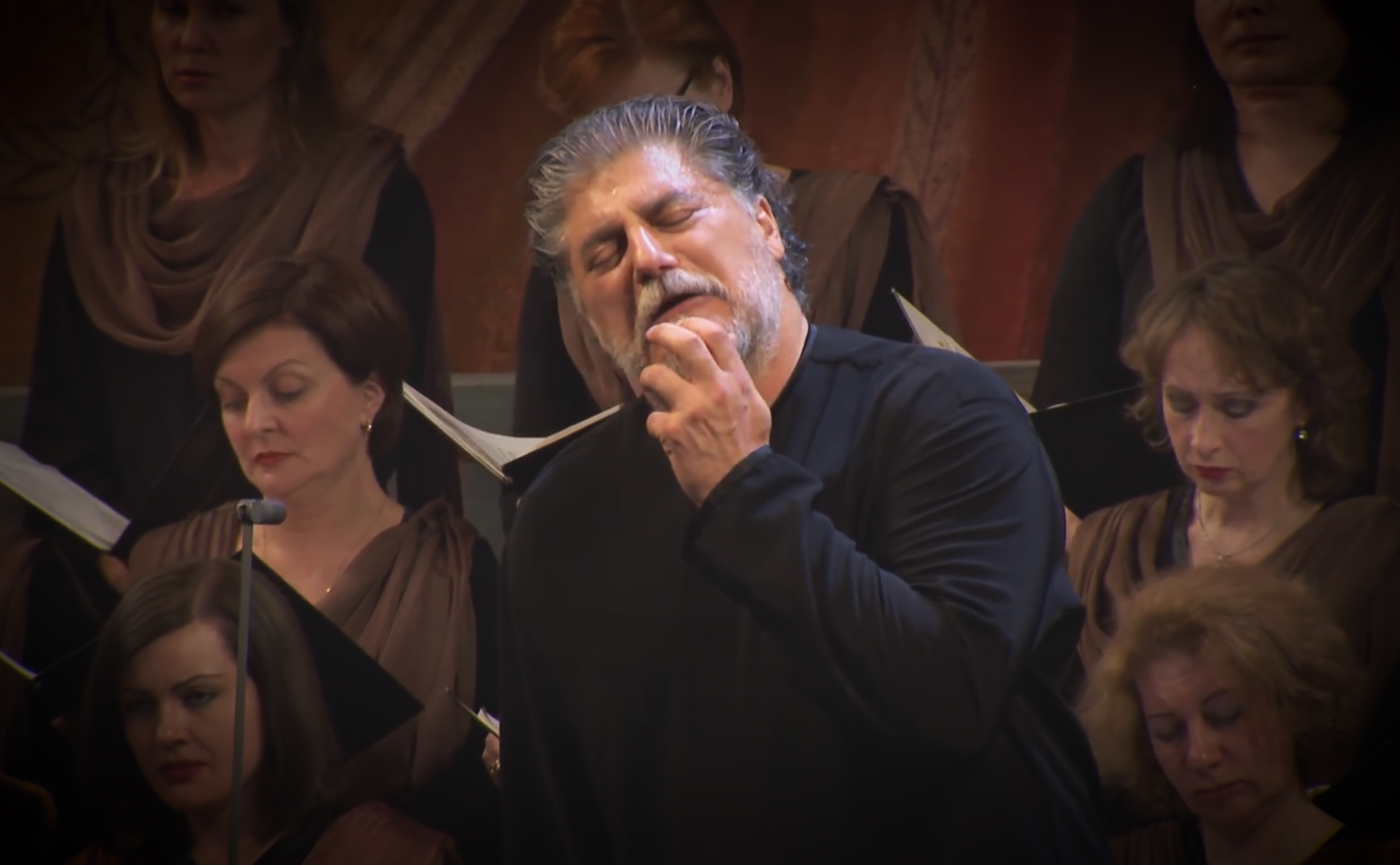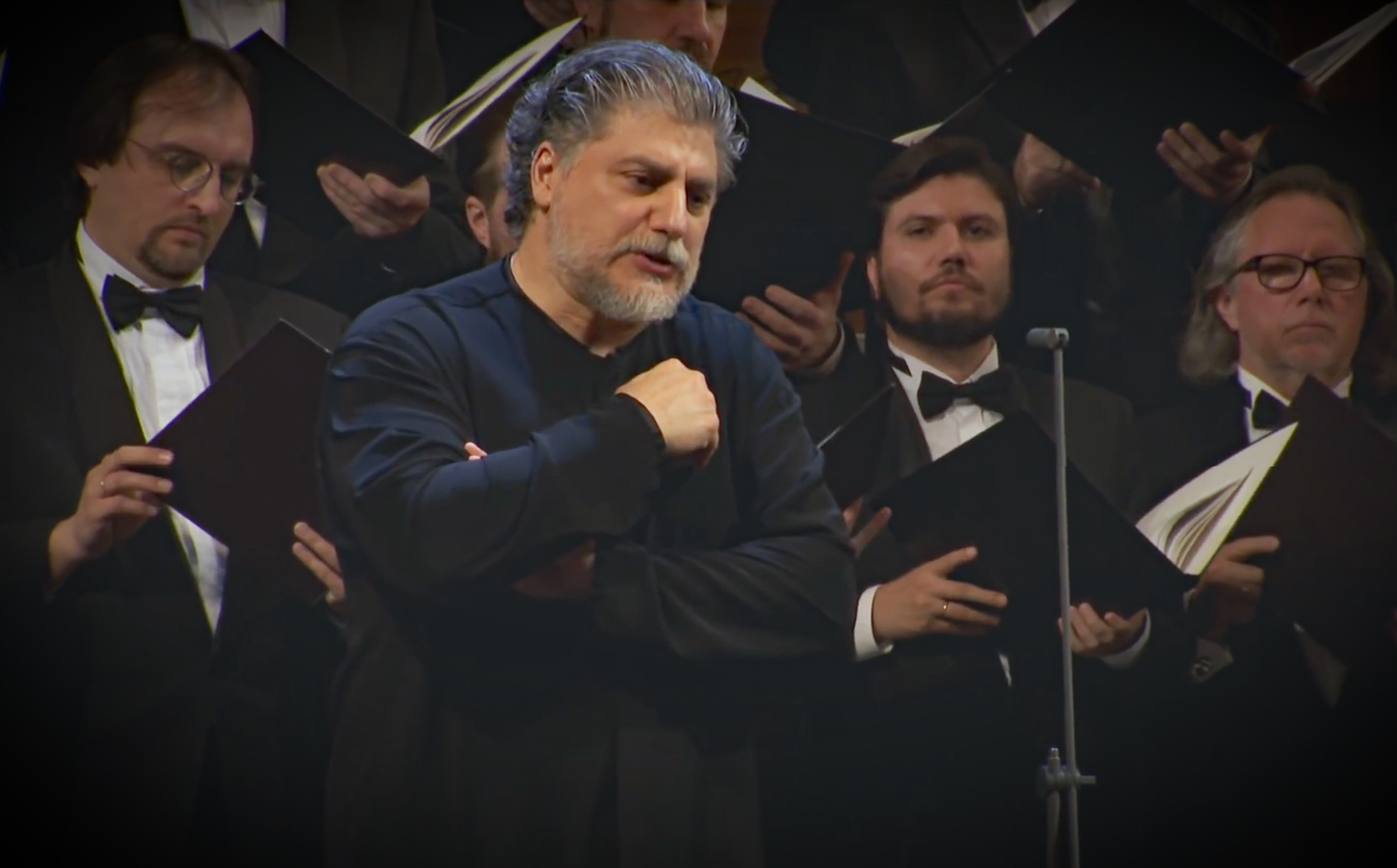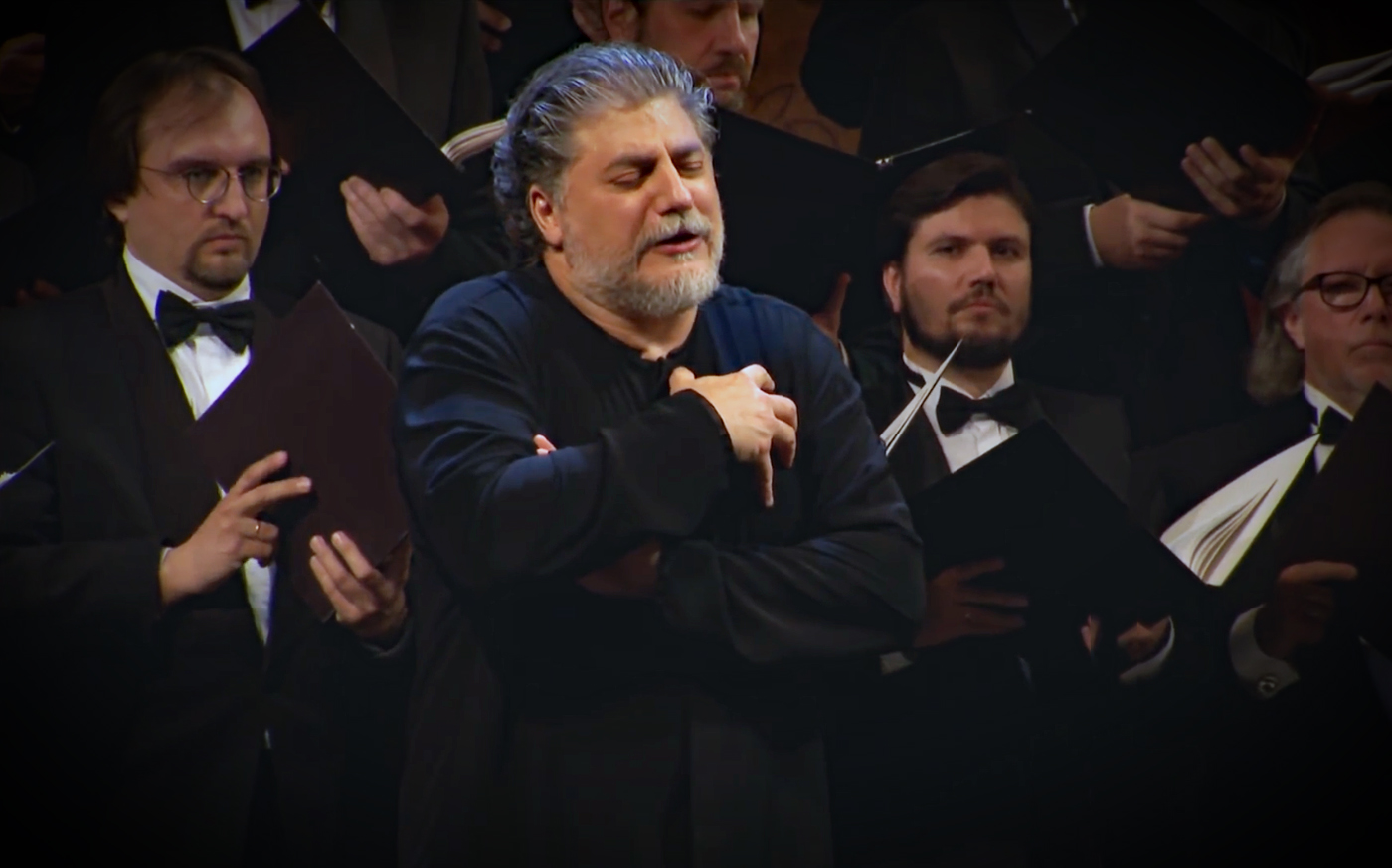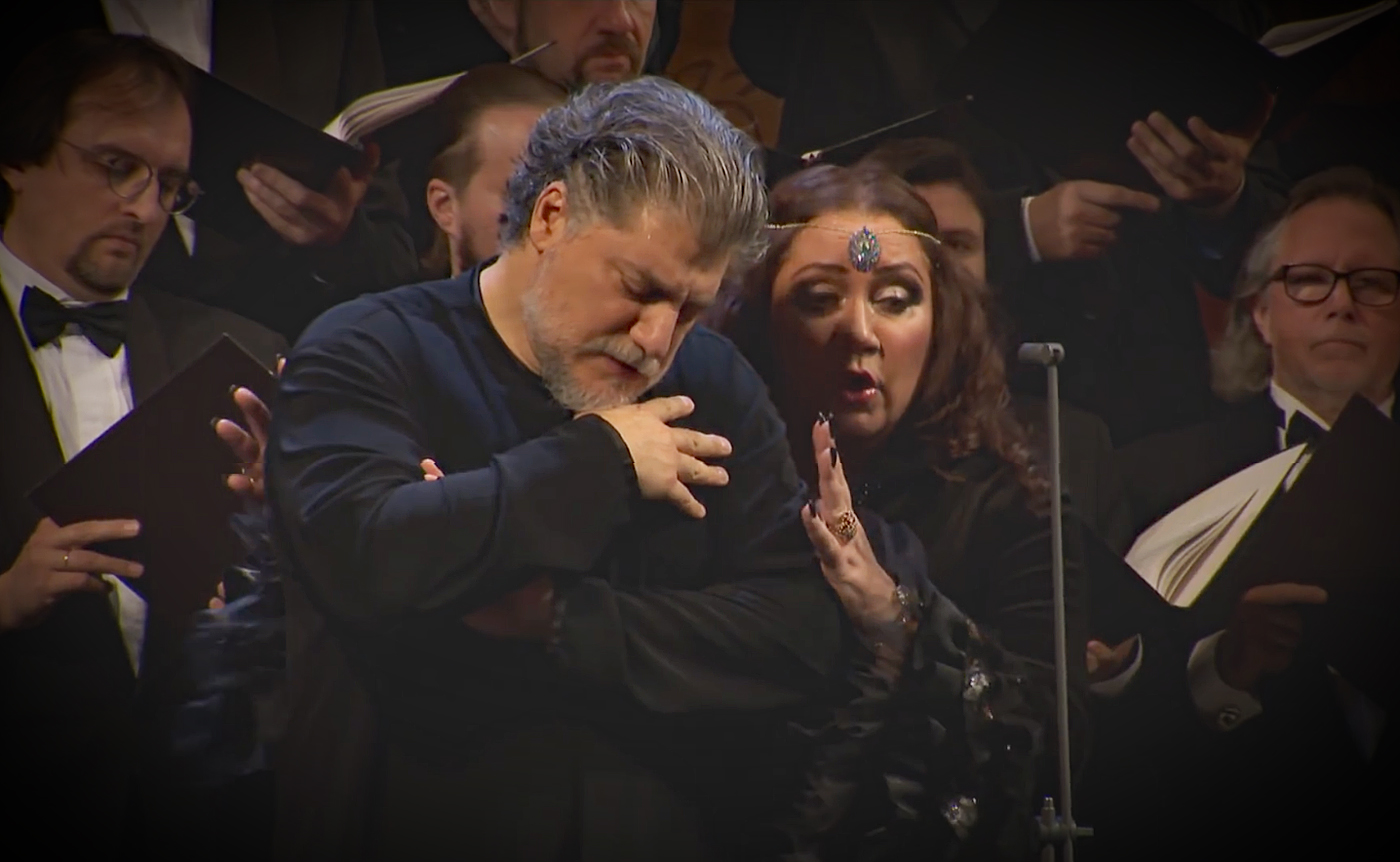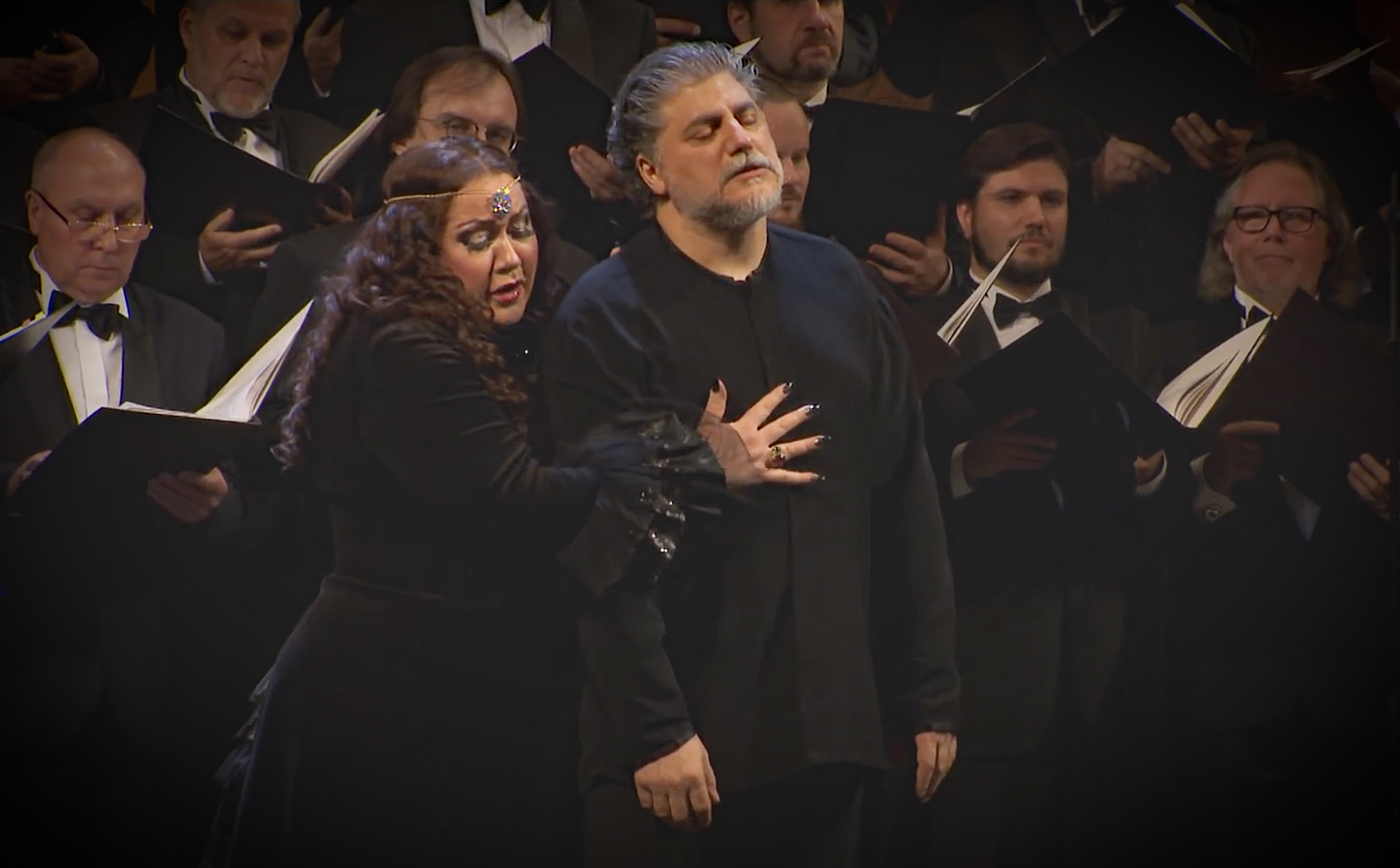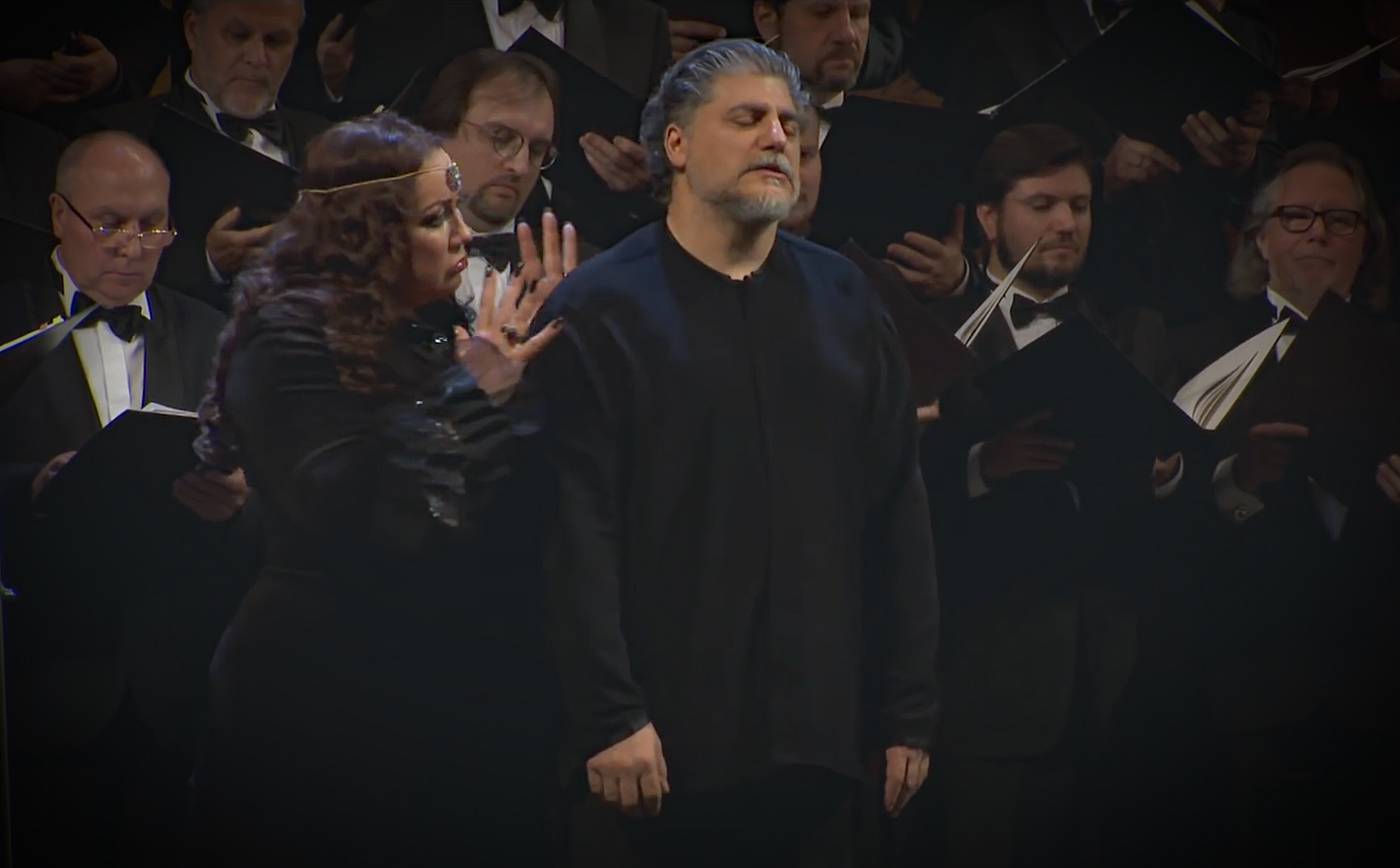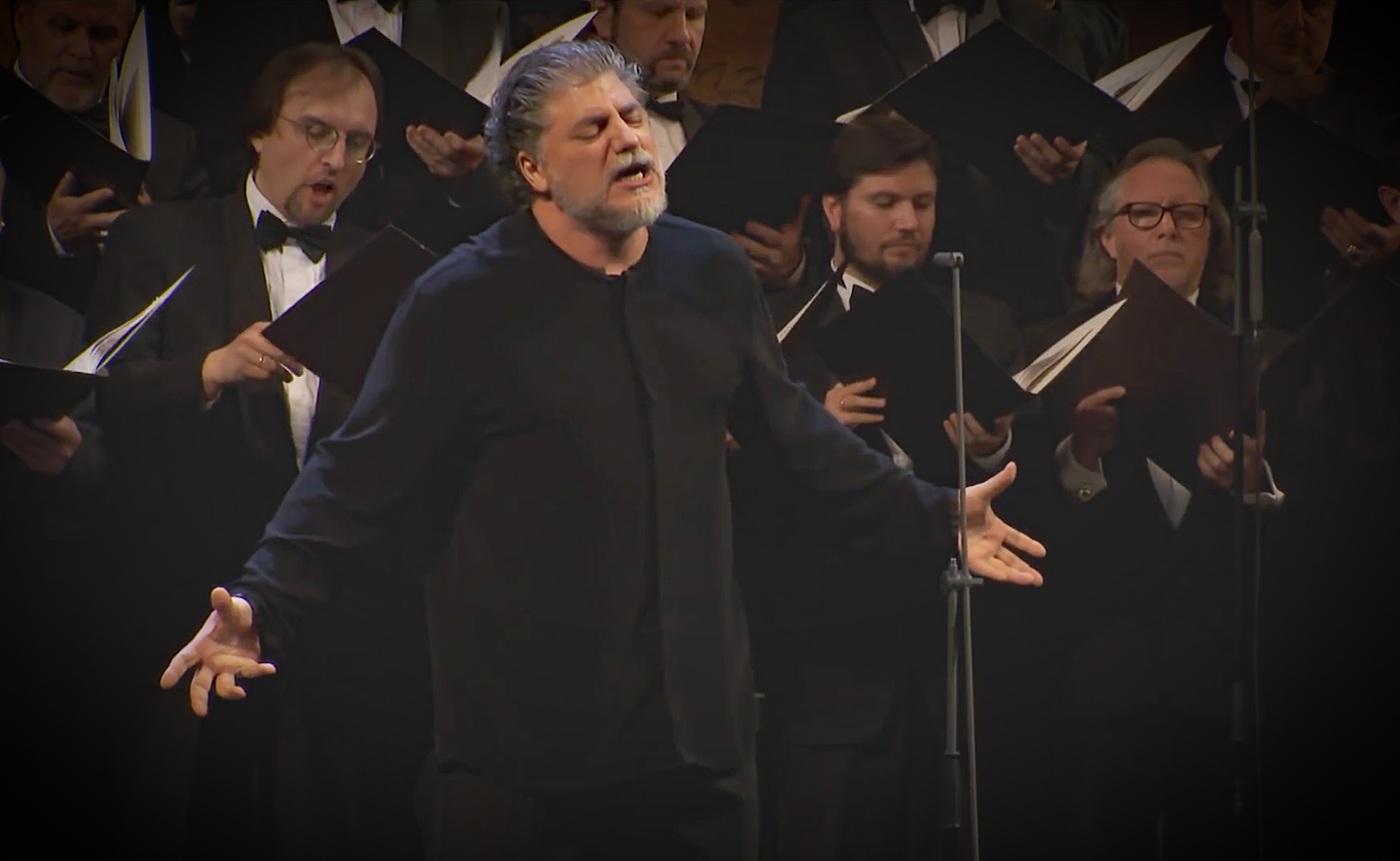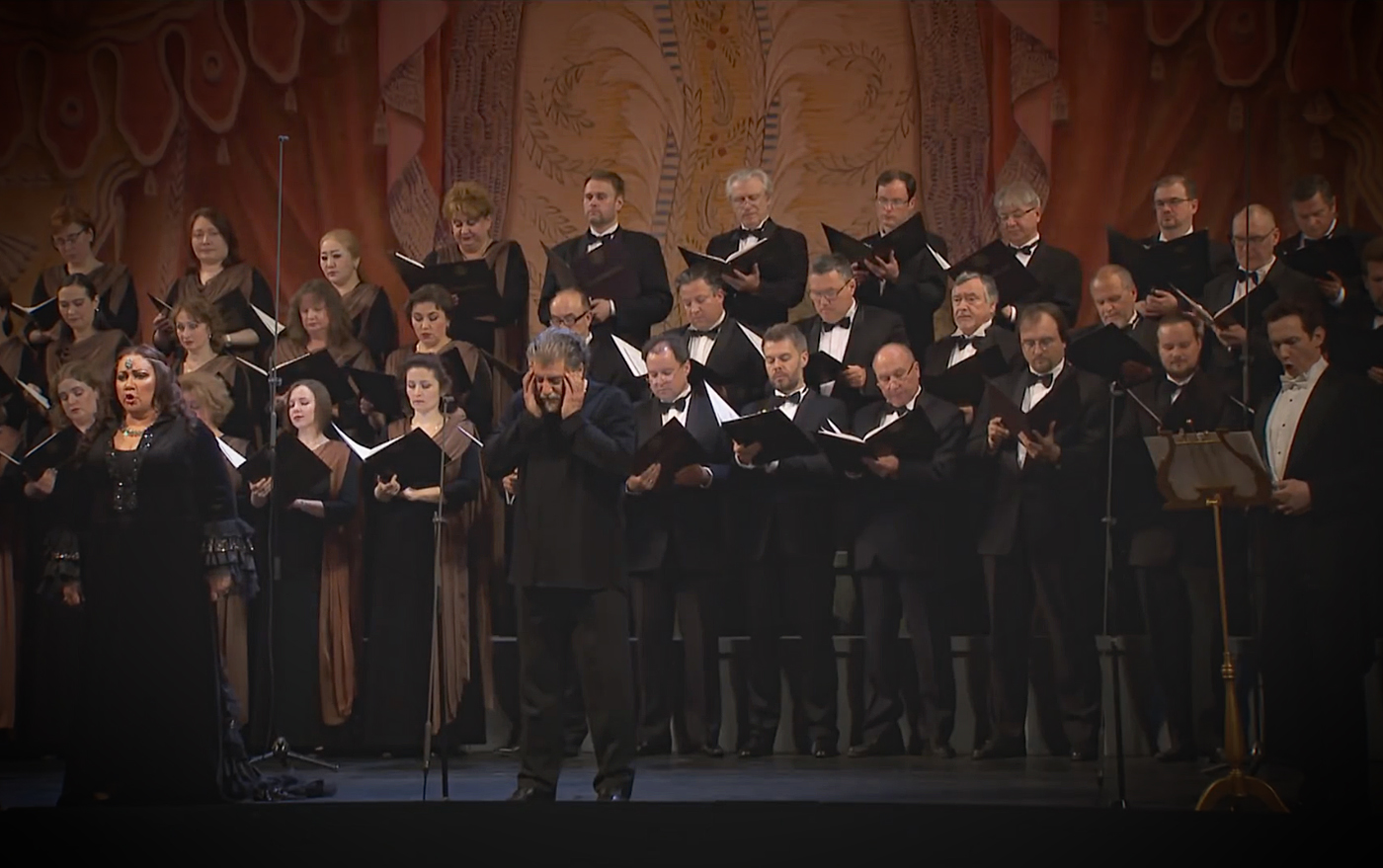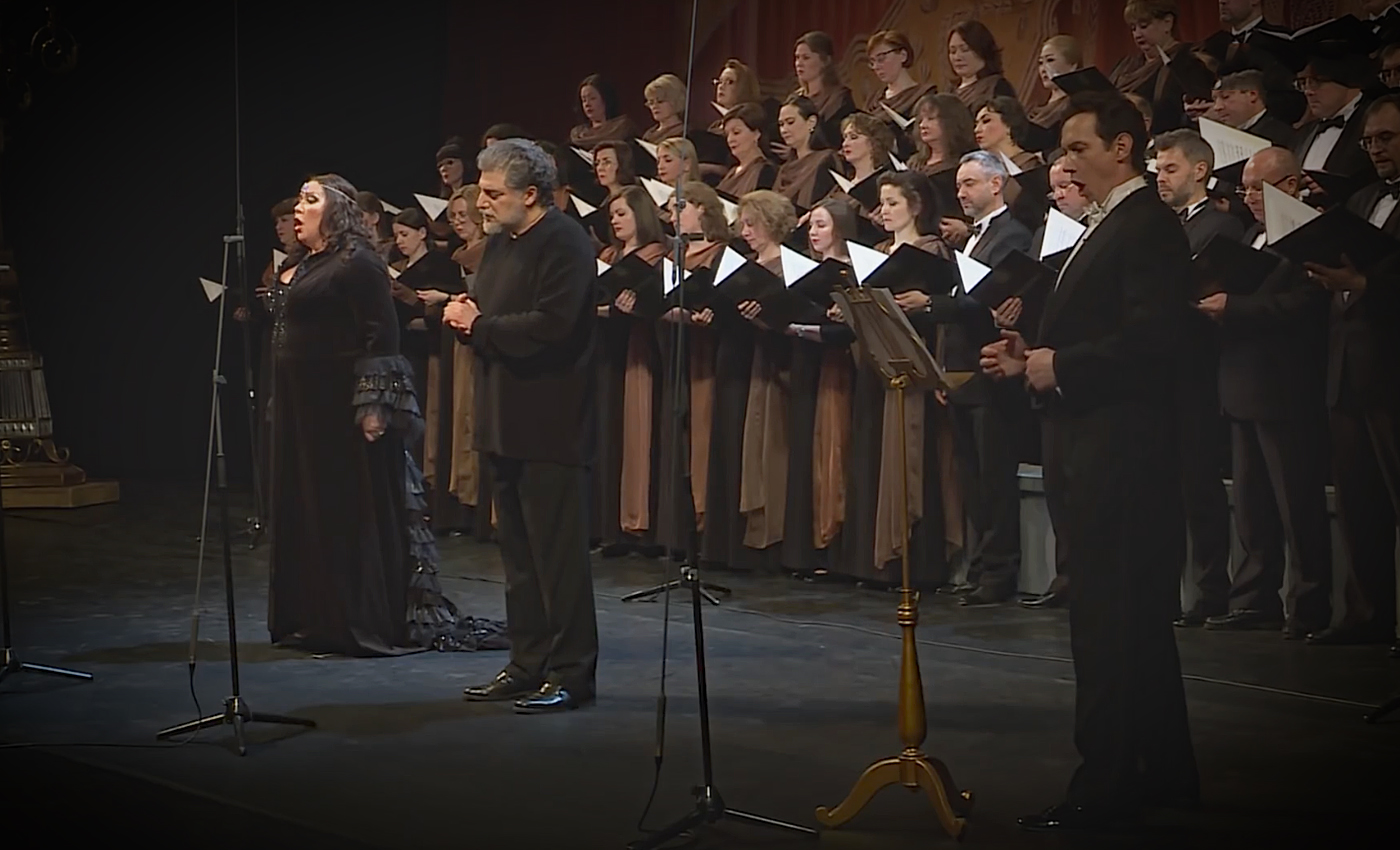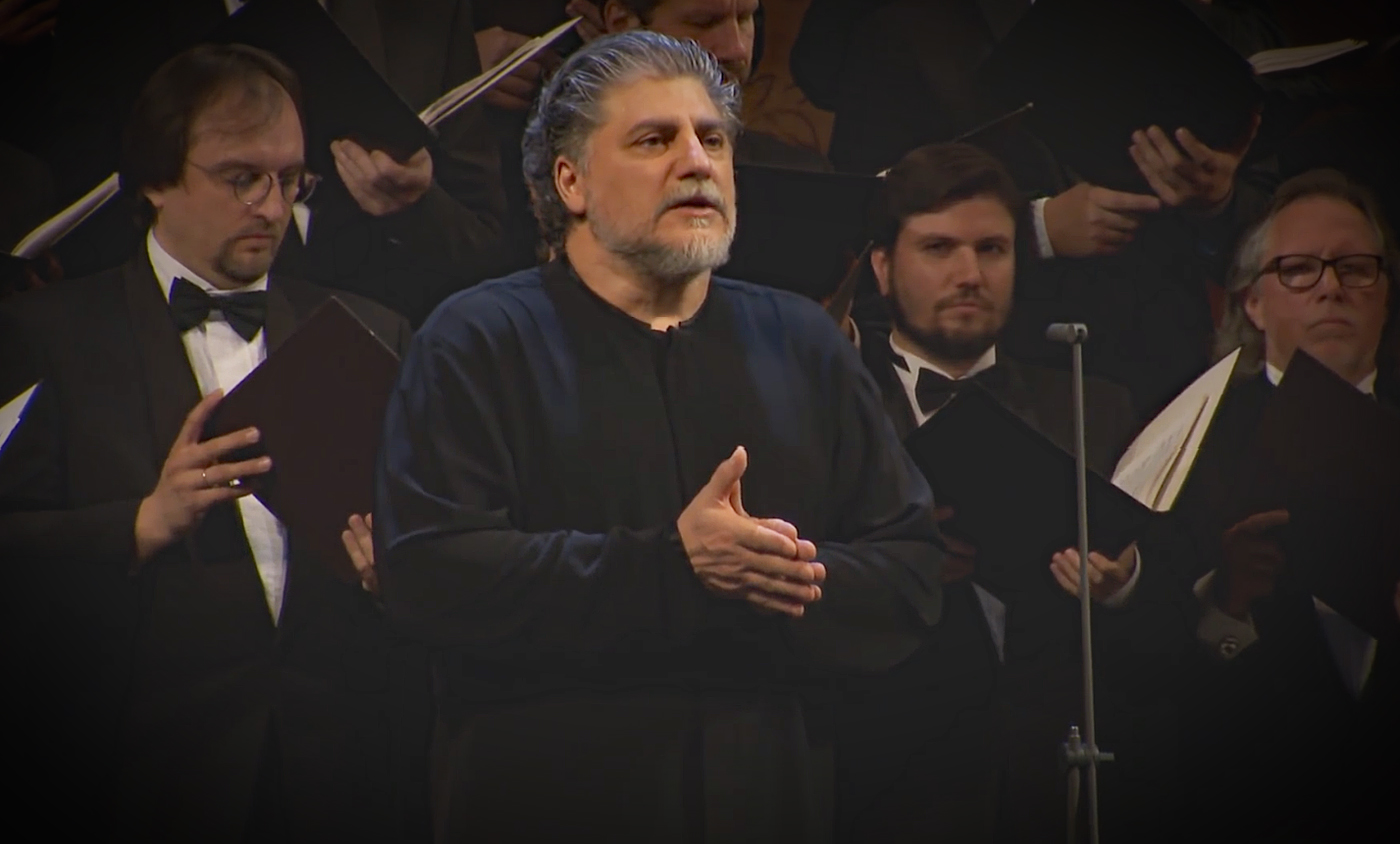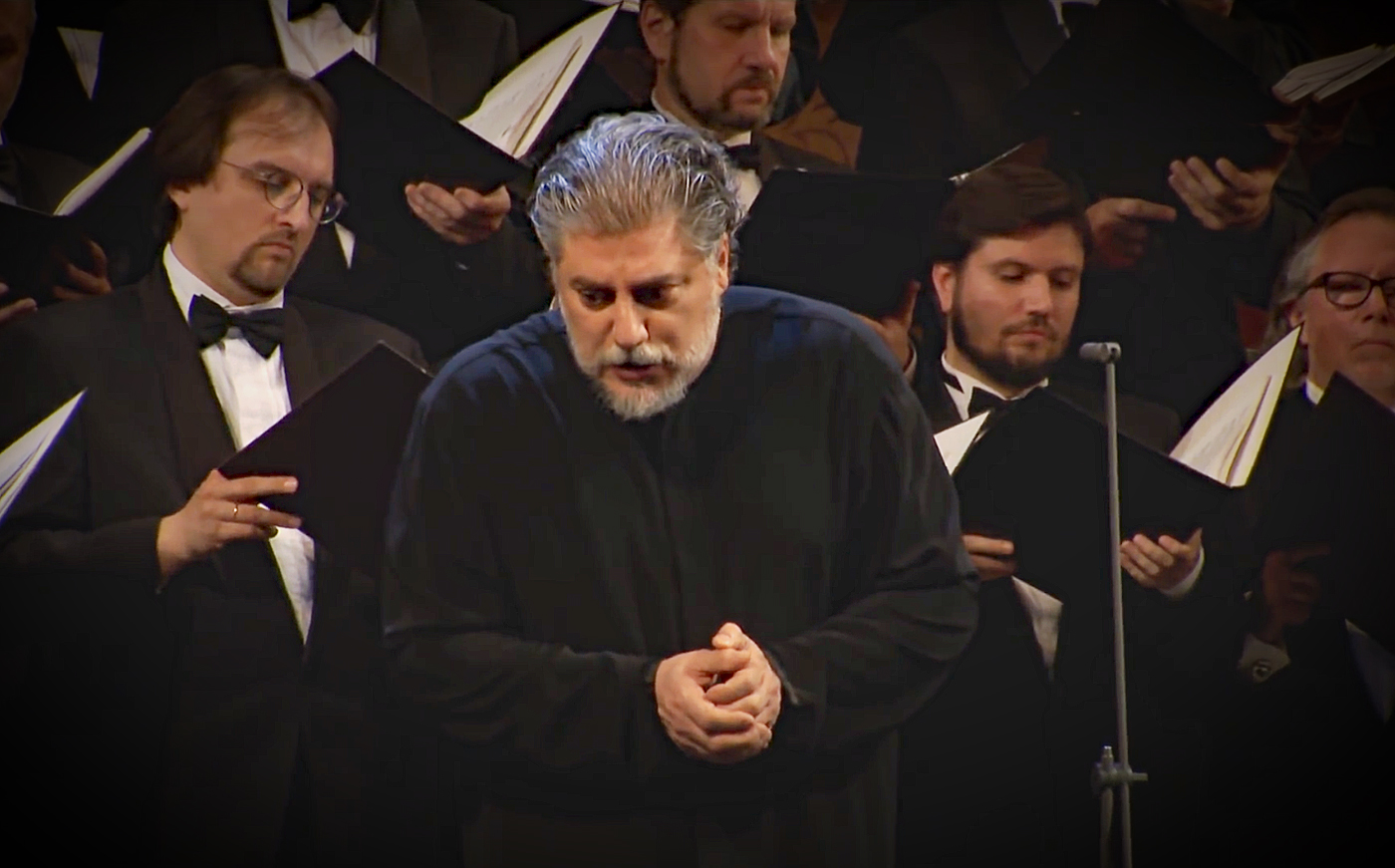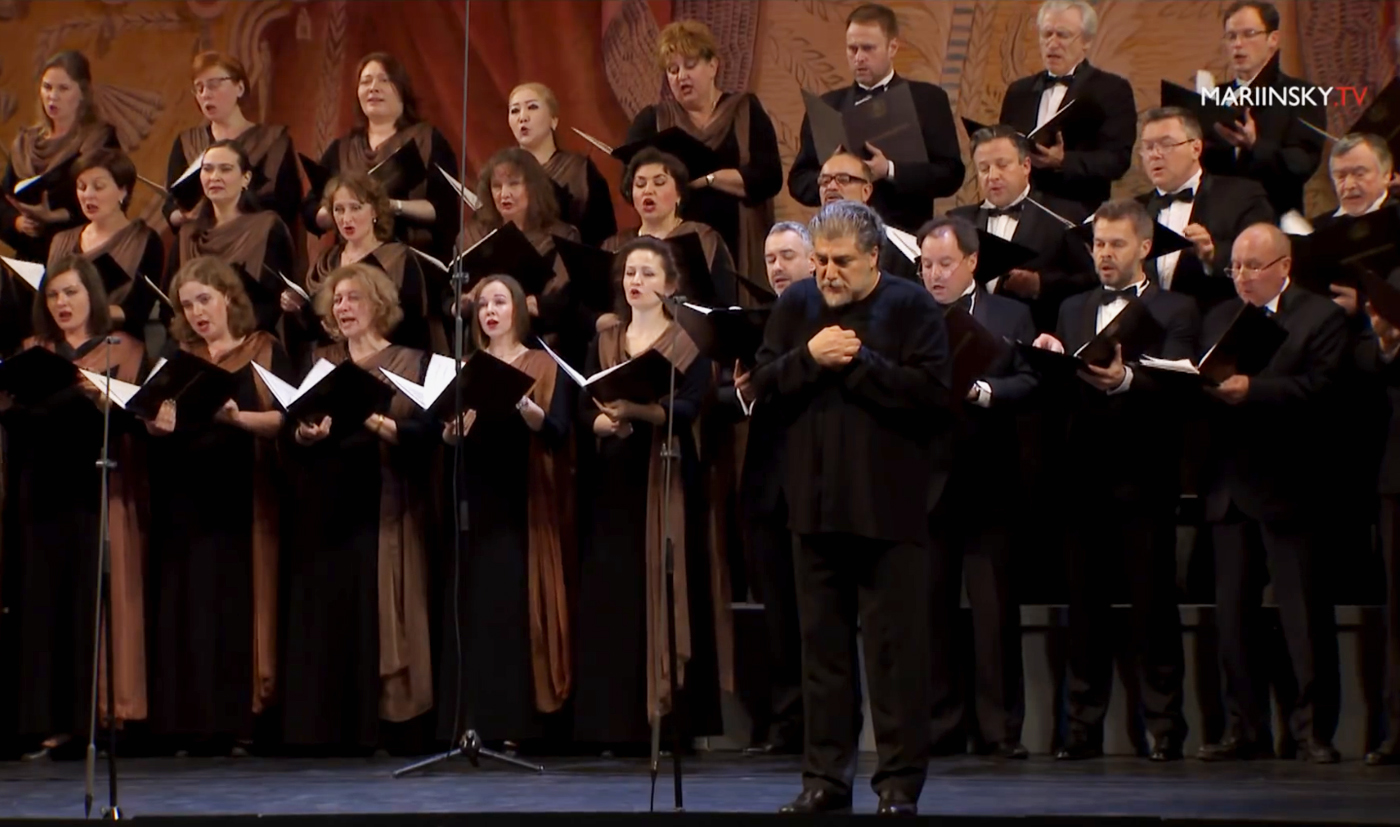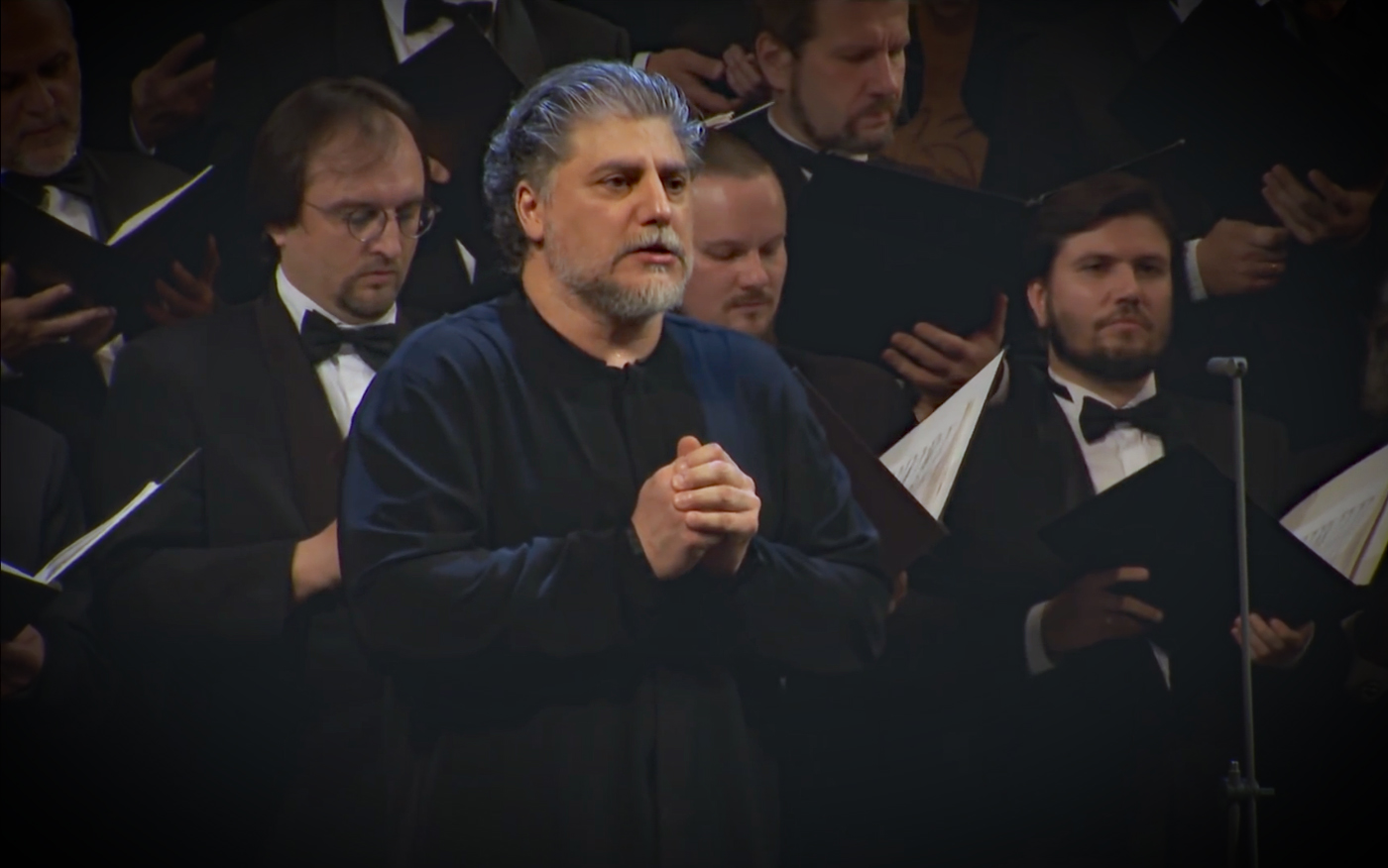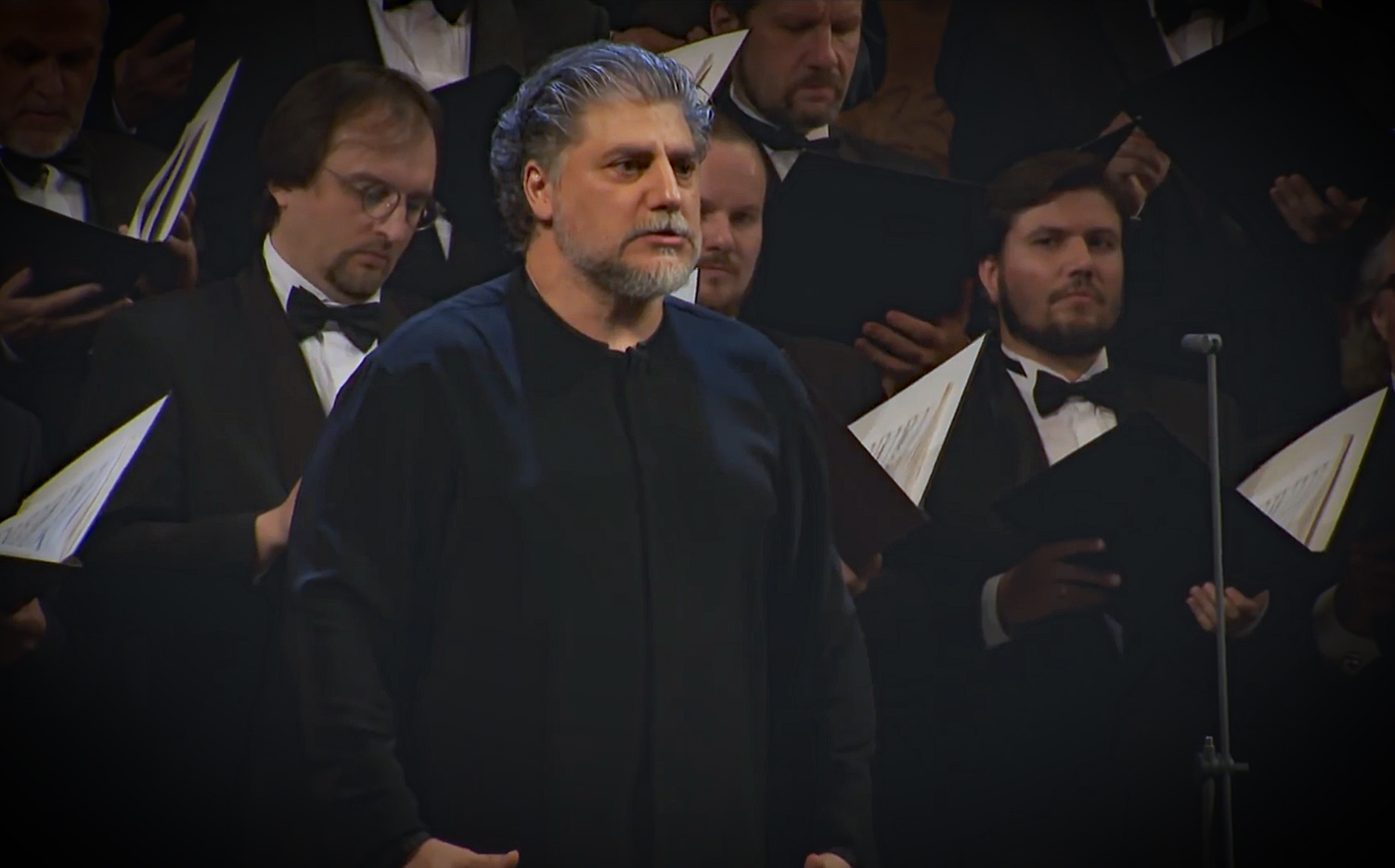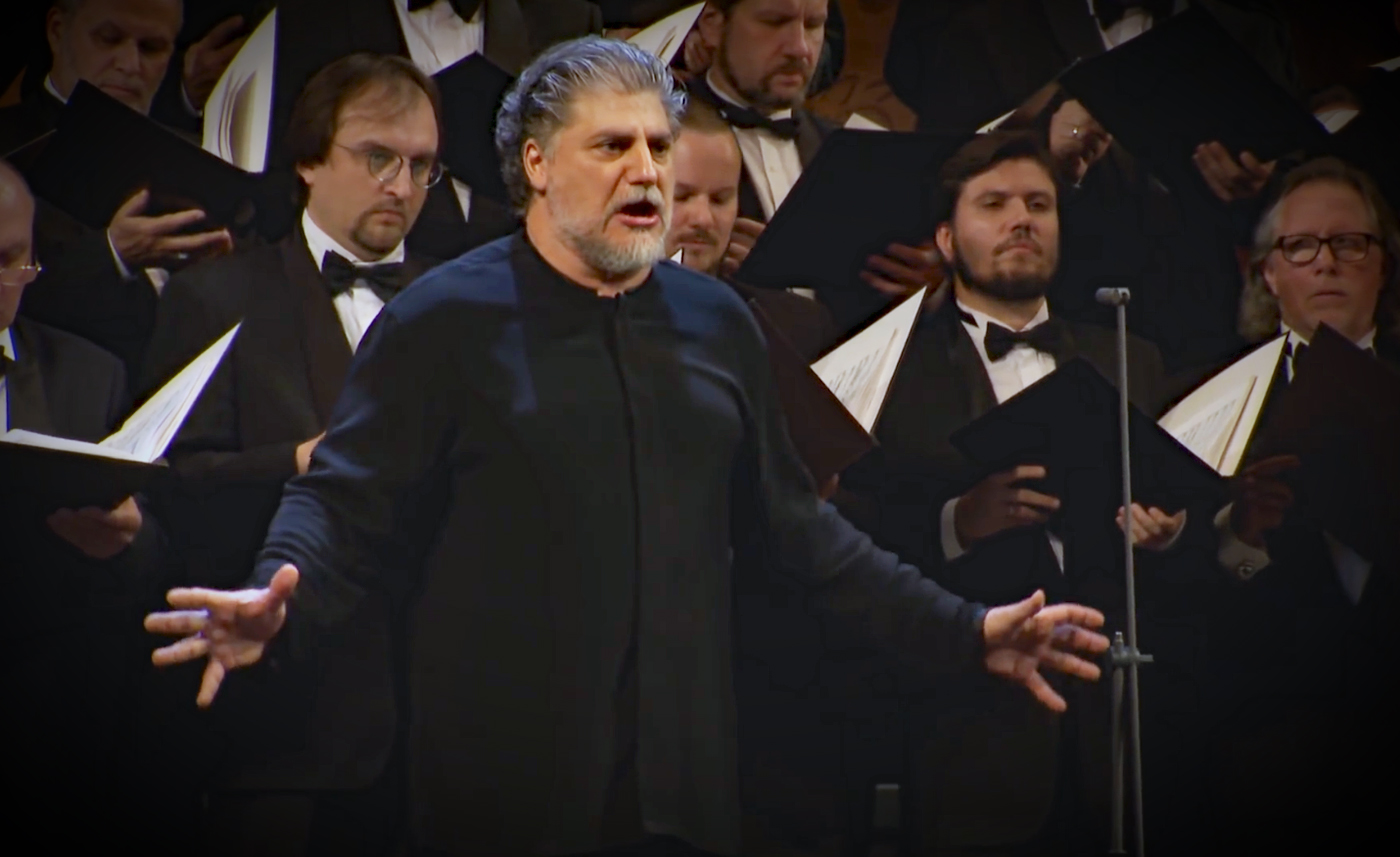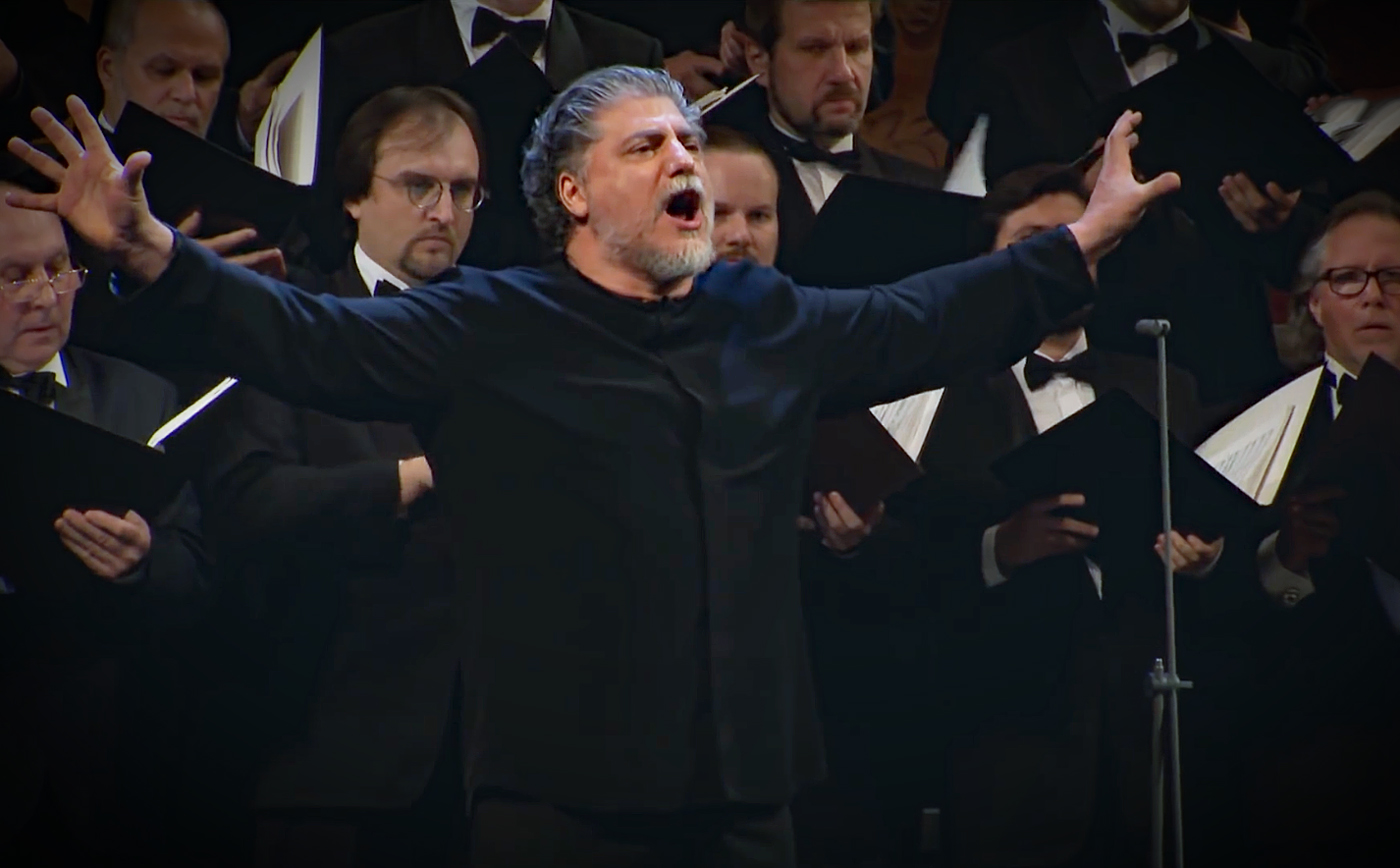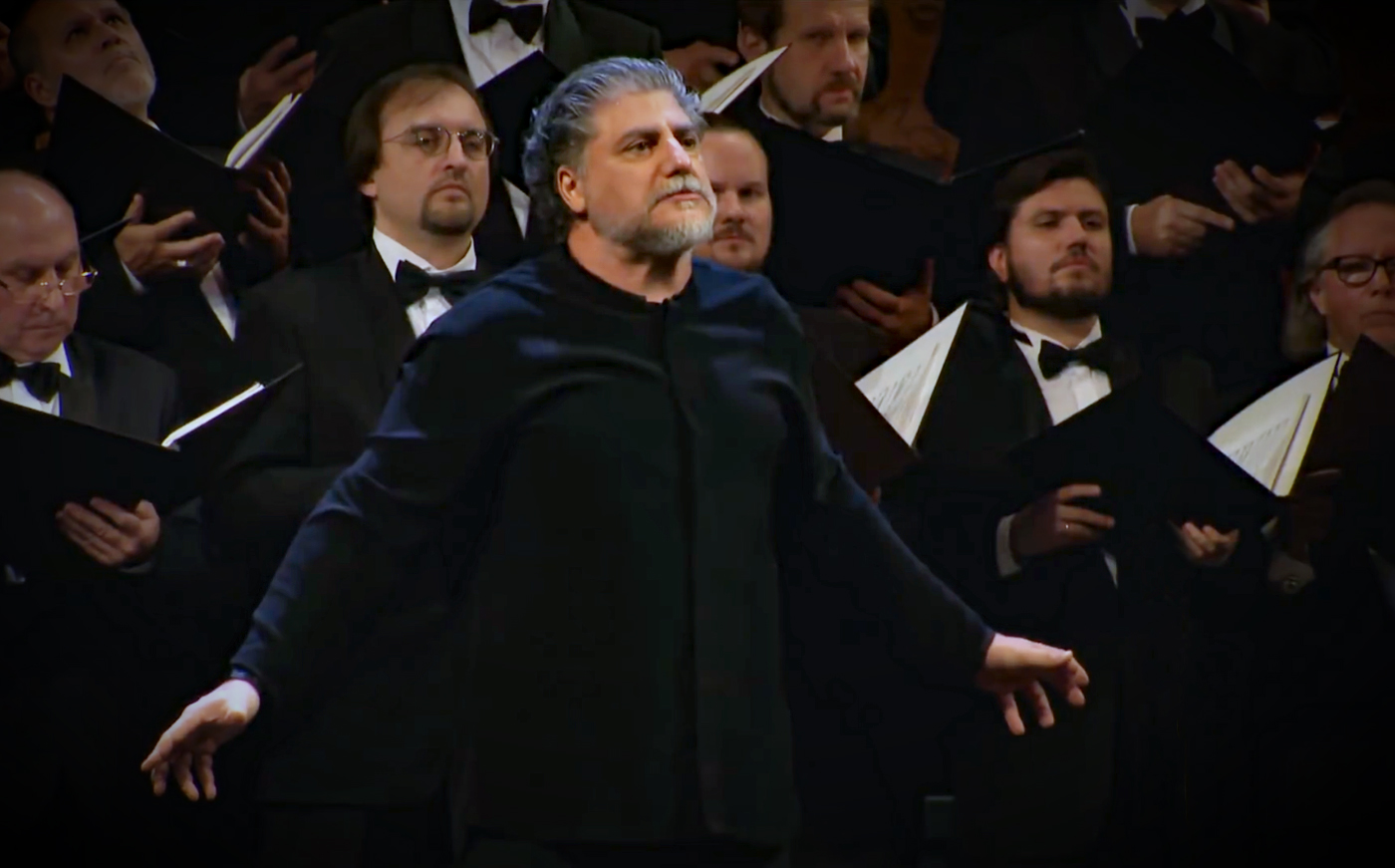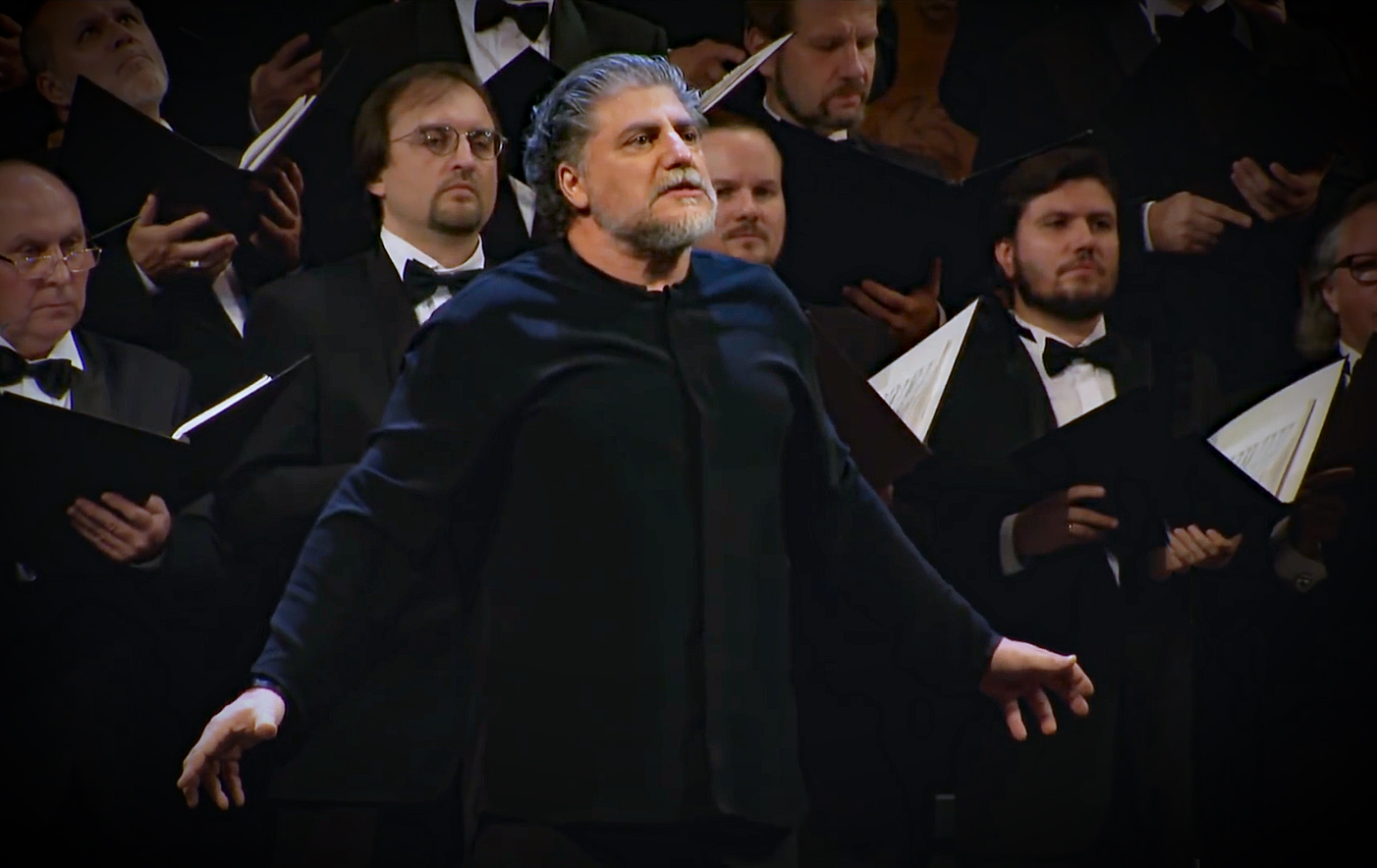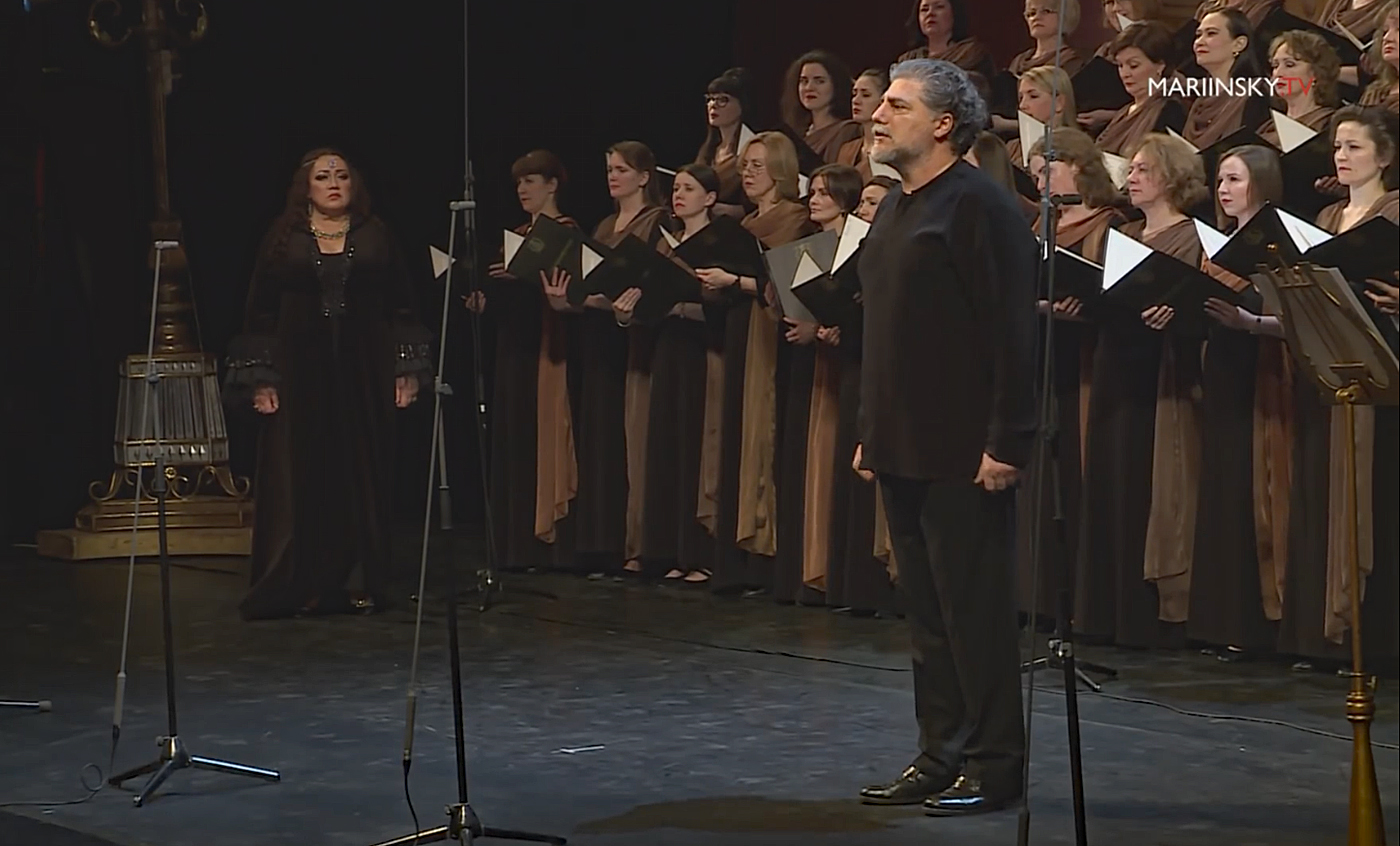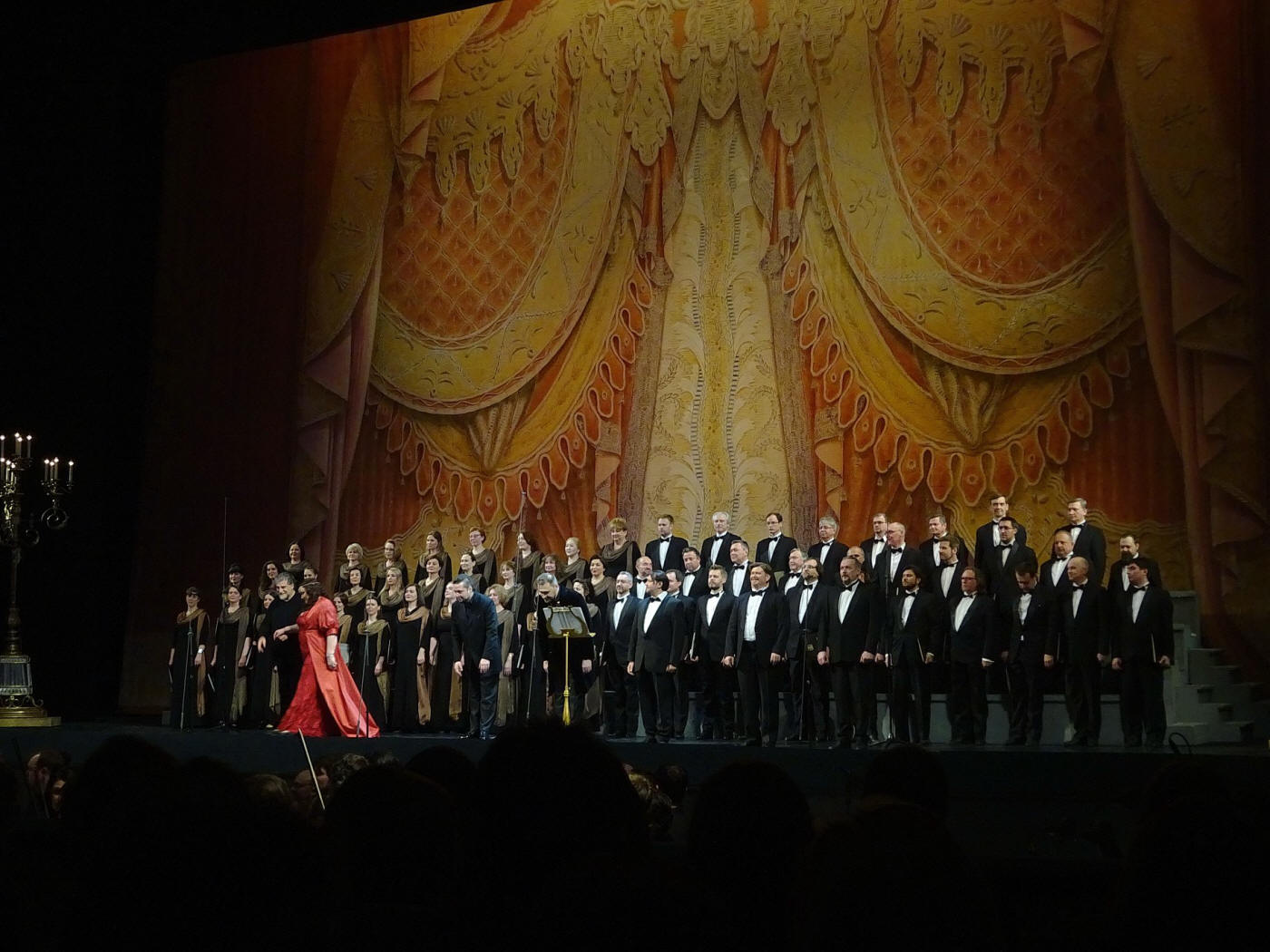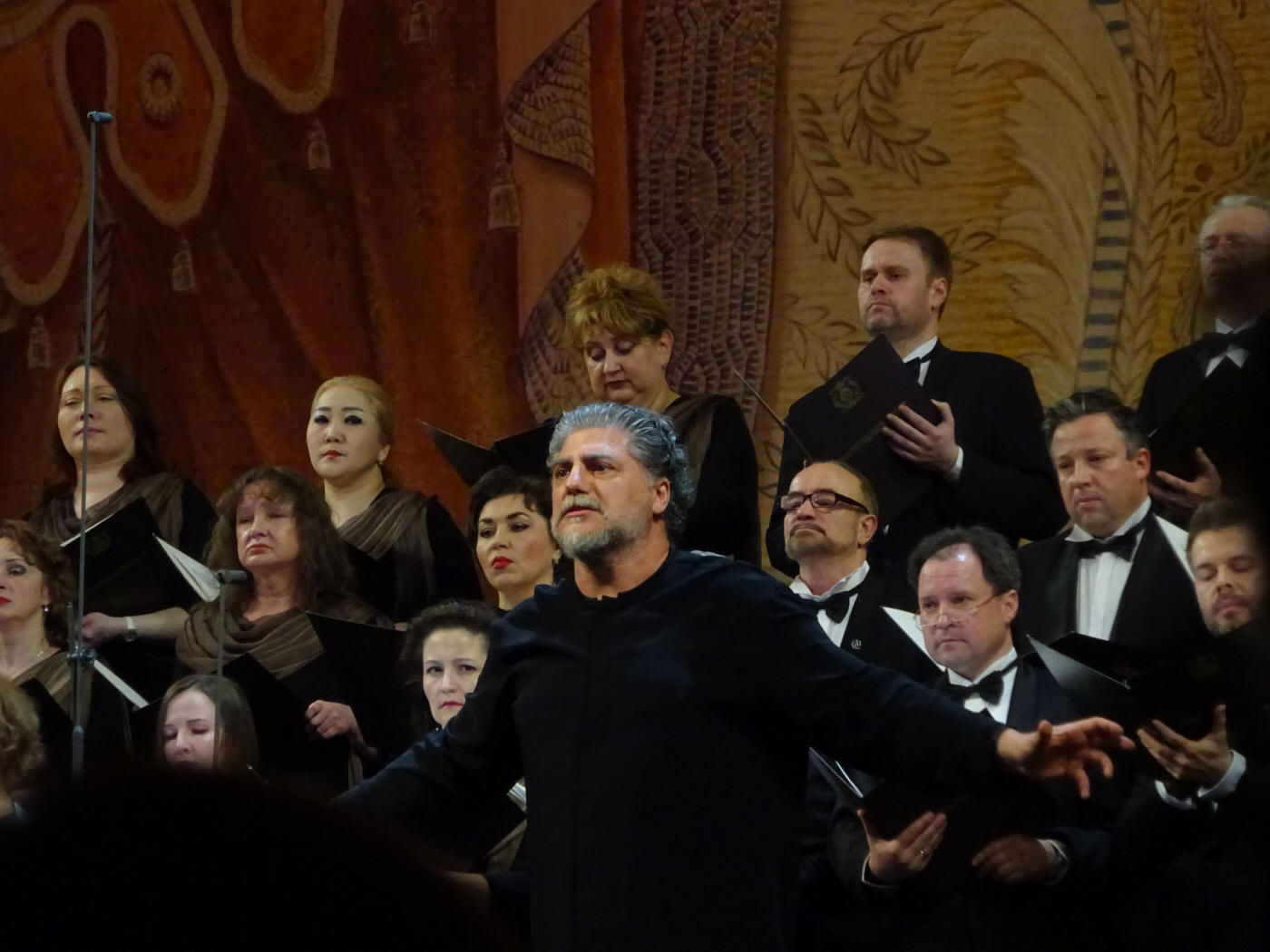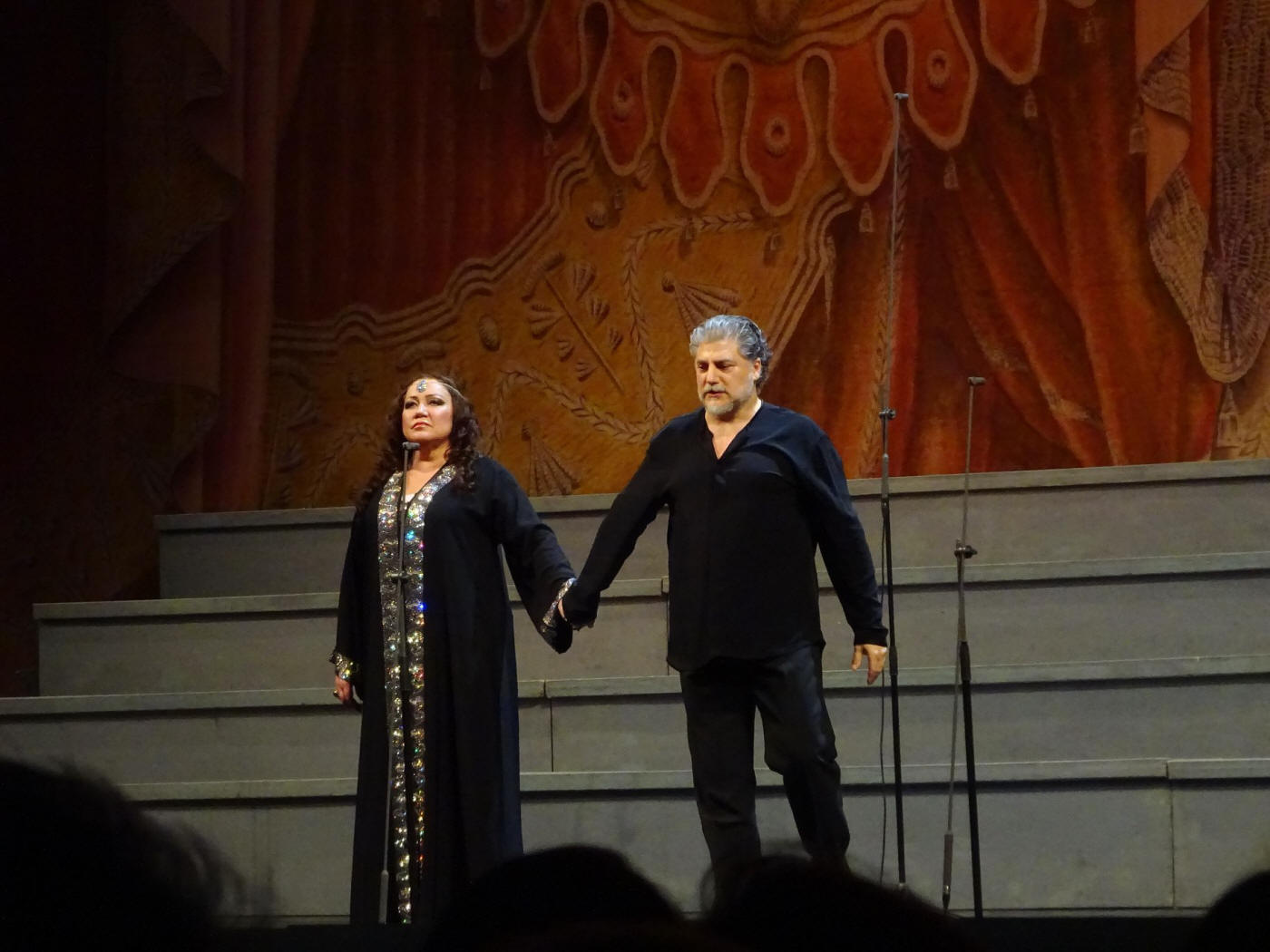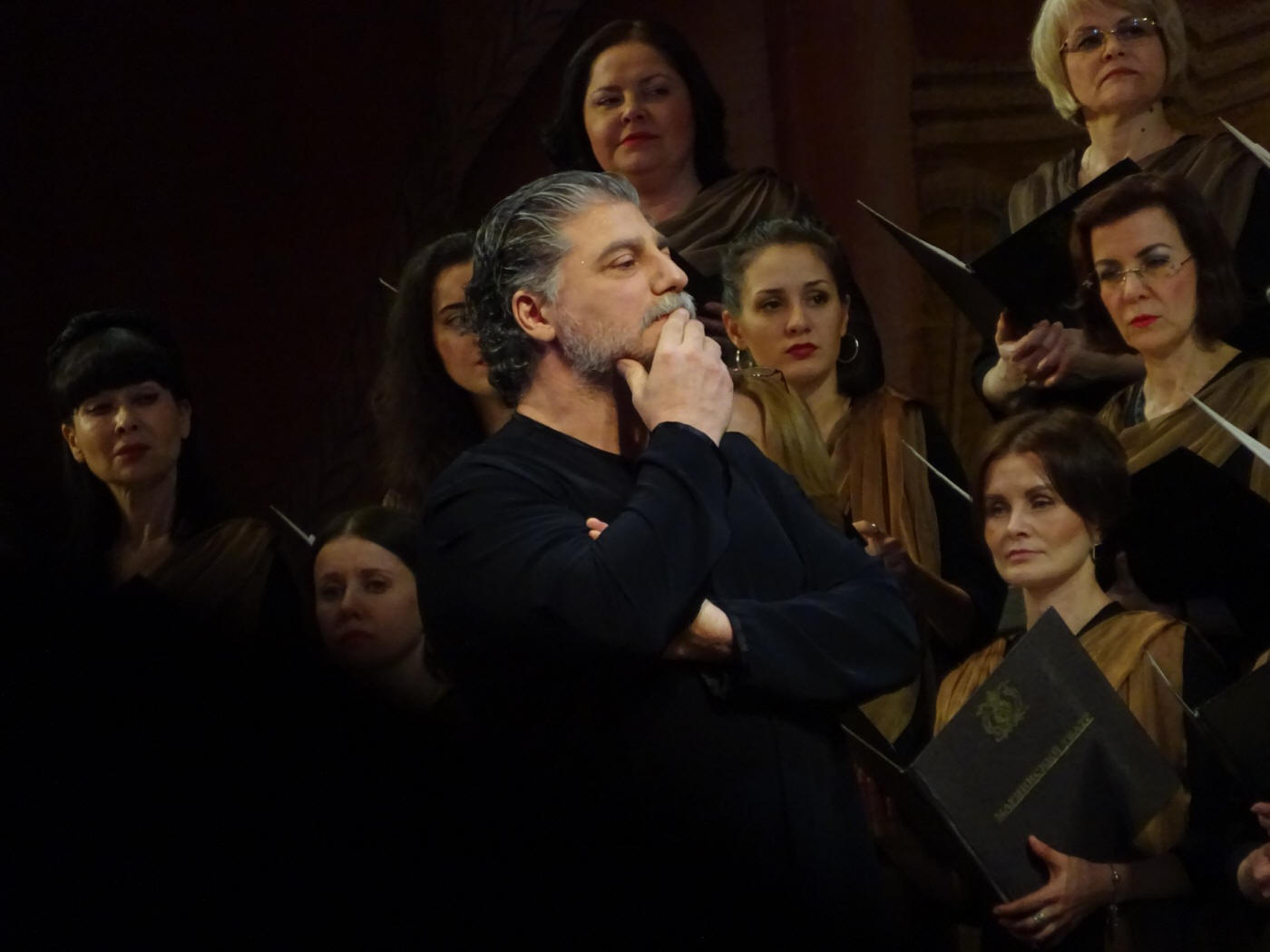|
Operatime
Arina
Timofeeva
28 October 2017
Note: This
interview was
actually conducted a
year ago but was
published to
coincide with José
Cura’s appearance
with Olga Borodina
in Samson et
Dalila in St
Petersburg. This is
a ‘cleaned up’
computer translation
so consider it an
approximation of the
discussion.
Q: I heard that this visit is
very short. Would
you like to come to
Russia, to St.
Petersburg again,
maybe for a longer
time?
José Cura: Oh
sure! It would be
great to come to
sing n Russia, where
I have never sung
before (in a
complete opera
performance - AT).
I know that my time
as an opera singer
will end, so it
would be great to
sing one of my
roles—Otello or
Peter Grimes—in the
legendary Mariinsky
Theater.
Q: Let's talk about your
childhood. Was
there music in your
house, were your
parents involved in
music?
JC: My parents were
not professional
musicians but my
father played the
piano. Every
evening, when he
came home from work,
he played a
little—Beethoven,
Liszt, Chopin—just
for his pleasure.
In 1974, he broke
his arm in a car
accident and never
played again. I was
born in 1963 so for
the first 11 years
of my life I heard
piano music at
home…and then it
stopped. But I
always felt
connected with
music. My parents
were always
interested in it.
In those days there
were no records on
CD, there was no
internet, music was
on vinyl. My mother
had a huge
collection of
records: classics,
good pop music,
Sinatra,
Fitzgerald. My
mother did not
discriminate: one
day it could be
Beethoven, another
day - Paul
McCartney. This is
the atmosphere in
which I grew up.
Q: Maybe you have some special
memory from
childhood about a
musical work that
made a strong
impression on you ?
JC: No, I cannot
distinguish one
musical impression.
I heard and listened
to a lot of music.
I grew up in Rosario
in Argentina. I had
a normal childhood.
I remember that I
was in the theater a
couple of times, I
listened to concerts
for a guitar, maybe
it was the beginning
of my interest in
this instrument, but
I do not remember
any one event that
would have made an
indelible impression
in childhood.
However, I can say
with certainty that
when I was a
teenager, I had a
musical idol - the
legendary guitarist
Ernesto Bitetti. He
is also from
Rosario, and my
family was friendly
with his family, we
talked, visited each
other at a party.
Now he is retired,
but in the last
century it was one
of the most famous
guitarists in the
world.
Q: Do you remember the moment
when you decided
that music would be
your profession?
JC: When I was 7 or
8 years old, my dad
sent me to learn to
play the piano. The
teacher was a very
nice elderly woman,
she tried to teach
me how to play but I
was just a child,
quite active and
unpredictable. And
after three or four
lessons she sent me
home, saying that I
was still too young
and not at all
interested in
music. After the
piano, I radically
changed direction
and began to play in
rugby, which, of
course, had nothing
to do with music. I
played rugby for a
long time, almost
becoming a
professional
athlete. But when I
turned 12 and went
to high school, I
had a classmate who
played the guitar.
Playing the guitar
and singing songs
seemed to please all
the girls. And I
thought that maybe I
should also learn
this. I studied, I
sang the Beatles
songs. And when I
was 14, I told my
father that I liked
playing guitar and I
would like to learn
this seriously. I
started studying
with a real teacher,
so it all started.
Q: And how did the transition
from guitar to
composition, vocals
and conducting?
JC: The guitar is
an amazing
instrument. To this
day, it is the only
one I truly love.
But over time I felt
that the guitar was
too quiet an
instrument for my
extroverted nature.
I needed something
more. I told my
father that I wanted
to study at the
conservatory and to
be a composer and
conductor. Among
other courses in the
conservatory was a
vocal course, and it
turned out that I
have a voice. I was
about 20 years old.
I've always sung,
but it was never an
operatic-style
singing.
Studying to be a
conductor helped me
to discover I have a
voice but I was not
then thinking about
making singing my
career. I studied,
I sang in the choir,
I earned a little
money with it, but I
continued to study
conducting and
composing music.
When I was 22,
Argentina passed
real elections after
many years and the
country returned to
democracy. This was
the beginning of a
new era but these
were very difficult
times: orchestras,
choirs had problems
with funding. It
was difficult to
survive and to make
a living as a
conductor and
especially as a
composer it was
almost impossible
(even now it is
impossible to earn a
living as a
composer, perhaps
only composers who
write music for
films somehow do).
And I was 24 years
old and I thought
that I could sing
and maybe find a job
related to singing:
weddings, parties or
a professional
choir. I would work
[singing] to support
my work with the
composition. I
started singing in
the choir, going to
the auditions.
Now I can say that I
am happy that I have
recognition as an
opera singer but in
addition I have
written music, I'm
conducting, and
still sing.
Q: Now you are a composer, a
conductor, a singer,
a director, a
choreographer, and a
photographer. Do
you have any plans
for the future? Do
you plan to develop
all these interests?
JC: Nobody knows how
everything will
develop. First of
all, no one knows
what will happen to
him in the future:
what will happen to
health, how
circumstances will
develop. Now I feel
healthy and young,
but every year I
feel that I should
not work so
intensively. I used
to give 100
performances a year,
and now I feel that
I need more time to
recover. You just
need to be prepared
to react and adapt
to any situation
that life can
bring. This is one
side. The other
side is dreams. Of
course, I dream to
continue singing for
as long as I can,
but it depends on my
body. Some can sing
for a long time,
some cannot. It
also depends on how
much you've sung
throughout your
career. For
example, on average
over 25 years of
career someone can
give 1000
performances. I
have already given
2500. If we draw an
analogy with cars,
that is, two cars
from 1990, but one
has driven 50
thousand km and
another 500
thousand. Two
identical machines,
but one of them was
operated much more.
So let's see how my
body "behaves." But
my dream is, of
course, to conduct
and compose music,
because it all
started, and to
return to this would
be a wonderful way
to complete the
cycle.
Q: Let’s return to the operatic
career. Do you have
a favorite opera
hero, a favorite
opera part?
JC: I will answer
the way I always
like to answer: my
favorite role is the
one I'm working on
right now, the one
I'm singing now. In
other words, after
all that I have
done, and this is a
lot of roles and a
lot of performances,
if I go on stage,
then I go out in a
role that I really
can perform and
which I really enjoy
performing. I do
not go out on stage
for the sake of
profit. When you
are young, you have
to make a living,
you have to be in
the profession, then
there comes a time
when you can say: I
can sing this role
very well, and in
this role I'm not so
good, so it is
better not to take
for it.
Q: Can you name colleagues with
whom you are very
comfortable singing?
JC: Of course I
will not give you
any names, because
it can lead to
conflict. For me to
be with someone on
the stage, working
together is like
dancing in a couple
or making love. It
should be very
comfortable, there
must be interaction,
moments when you
lead, then those
when the partner
leads. This is the
perfect partner for
me on the stage.
Sometimes there is a
partner who "does
not know how to
lead" or "steps on
your feet". This
has rarely happened
to me. There is
nothing more
terrible in dancing
than when a partner
steps on your feet.
It hurts. And then
you have two
options: you either
stop dancing or you
start to lead, and
then everything goes
well. Depending on
the situation, you
must decide how to
proceed. I have
been lucky that
during my work I
never had to "stop
the dance."
Q: I know that you sang with
Anna Netrebko. Did
you work with other
Russian singers and
singers?
JC: Yes, of
course. Two Russian
singers with whom I
sang a lot are Marie
Guleghina and Olga
Borodina. I met
Maria in 1995, so
that is already 22
years we have been
singing together. I
met Olga in 1998,
she sang her first
Carmen with me. We
were practically
children. Since
then we have sung
together, made
records, grown older
together, watched
our children grew up
together. I knew
her daughter when
she was a little
girl, and now she is
a young woman. And
of course, I was
familiar with Dmitri
Hvorostovsky. I
know his family.
I’ve know his
children since their
birth.
Q: You said that when you sang
Otello, then your
partners were ,
among other things,
young singers who
performed this role
for the first time
working with you .
JC: Yes, we can
say that I
"baptized" at least
20 singers for the
role of Desdemona
and also many
singers who
performed Iago for
the first time. By
the way,
Hvorostovsky sang
his first Iago with
me.
Q: Speaking generally, do you
think that the
nationality or the
opera school has a
great influence on
the singer, on his
manner of singing?
JC: Singing is a
cultural phenomenon,
as is painting,
literature or
dance. One does not
just click the
button and start to
sing. In this
sense, the
Argentinian will not
sing like an
Italian, the Italian
will not sing like a
Frenchman, and the
Frenchman will not
sing like Russian.
Each of us,
expressing ourselves
in art, does this
through the cultural
baggage that is in
his head and often
in the heart. Of
course, training can
help, but if
everyone could sing
like an Italian in
an Italian opera,
like a German in a
German opera, like
Russian in Russian -
that would be
perfect, but it's
very difficult.
That's why, for
example, I do not
sing Russian opera.
I do not have a base
on which I could
feel myself as
Russian. I would
just copy as a
pirate. If they
offered Herman for
me to sing, it would
not be me singing
Herman, but it would
be me mimicking
someone who sang
Herman, because I do
not have the
knowledge of either
the Russian language
or Russian culture.
For the same reason,
I do not sing a
German opera. I
sing Italian,
French, English,
Spanish opera,
because I know these
languages and
understand the
culture. I think
that it is very
important for an
artist to be honest
in this matter,
including
recognizing that in
this honesty the
difference between
the artist and the
performer is
manifested. Every
artist is a
performer, but not
every performer is
an artist.
Q: In Russia, only 4-5 of the 40
opera houses are
widely known. Is it
the same in
Argentina? Are
there any well-known
theaters besides the
Colón Theater in
Buenos Aires? Is
there anything
interesting in them?
JC: This is not an
easy question. Why
does fame appear?
First of all, the
place, in our case
the theater, should
be part of the
story--for example,
if there were
high-profile
premieres in the
theater. It is also
a matter of economic
power-- that is,
money—and whether
the theater can
launch a "media
machine" and make
people talk about
it. That is, it
turns out that this
is not a question of
what we like but a
question of what
moves the business.
We are engaged in
business related to
beautiful things,
but it's still
business.
The Mariinsky is
known for many
premieres, the same
can be said about La
Scala and others.
There are positive
and negative points
in this, depending
on perspective. If
the theater works,
it has its own
audience, its
sponsors and it
plays an important
social role in the
city. And then it's
not really important
if it is a famous
theater or not.
Fame is very
ephemeral, today you
have it, tomorrow
you do not. It is
important not just
to be known, but to
be useful to the
environment in which
you are in. I would
even put the
question
differently. Many
famous theaters are
known today only
because of their
past. They do not
serve the present,
they do nothing to
be known in the
present. Of course,
I will not mention
names. But it's one
thing to be in the
halo of the glory of
your predecessors
and it's another
thing to work for
the glory of your
present. Therefore,
the question you
asked me is not so
easy to answer.
Q: Then let me ask this a little
differently. If I
come to Argentina,
which theater should
I visit besides the
Colón?
JC: If you come to
Argentina and
visited the Teatro
Colón and a few more
theaters, I can only
say: what a pity!
Of course, the Colón
Theater is
incredibly good, and
the artists of the
Colón Theater are
some of the best in
the world, but if
you want to come to
Argentina just for
the sake of it
alone, then do not
come at all because
you can find about
the same thing in
any famous theater
in Europe. Arriving
in Argentina, you
need to visit a lot,
including the
Colón. Argentina is
an incredibly
beautiful country,
maybe one of the
most beautiful on
earth, but, as often
happens, people come
to the country and
visit one or two of
the most famous and
large cities: Moscow
and St. Petersburg
in Russia,
Washington and New
York in the US, Rome
and Milan in Italy.
But the real beauty
of the country is
often not in the
capital.
Q: You just do not want to name
names, so I'll ask a
general question.
You are a dramatic
tenor, the owner of
a rare type of
voice. Since there
are not many
dramatic tenors,
other tenors are
forced to play
dramatic roles. Is
it really dangerous
to sing something
that is not meant
for your type of
voice?
JC: I will answer
with an abstract
example, because if
I answer using
technical terms, it
will not be
completely clear.
Imagine a boxer
weighing 50 kg. If
he competes with
another 50 kg boxer,
then everything is
in order. If he is
in the weight
category 50 - 60 kg,
this is also
normal. But if he
enters into a fight
with a 100-kilogram
opponent, then
obviously he plans
to die. Opera is
the same. Otello is
a heavy role, Canio
is a heavy role,
Grimes is also a
100-kilogram role
but if you are a 100
kg boxer, you can
deal with them.
Nobody says it's
easy, but it's
physically
possible. But if
you are 50 kg and
you're going to
fight Mike Tyson,
you can say with
certainty that you
will lose.
Q: Please tell us about Peter
Grimes. You sang
the lead role and
directed this opera
at the same time.
How hard is it to
sing in your own
production?
JC: I must say that
for me it was an
incredible
pleasure. Again I
do not want to talk
using technical
terms, because then
I will remain
someone not
understood. I will
explain with another
example. Imagine
yourself writing a
book where you can
open a page and step
into it, become one
of its characters,
or paint a picture
and by magic can
enter your
creation. This is
the feeling that you
have when
participating in
your own
production. You
seem to have stepped
into your dream.
This is the romantic
side. The
unromantic side is
that it is very
difficult. If you
are a singer, then
you have a rehearsal
of 3 hours or a dual
rehearsal of 6
hours, and then you
go home. If you are
a producer, then you
have meetings with
technicians,
engineers, lighting,
then rehearsals with
singers, rehearsals
with the orchestra,
pianists, and then
everything in a new
circle. When I put
on a performance,
I'm at the theater
from 8.30 to 23.00
every day.
Q: You brought a remarkable
comparison "step
into your dream" ...
JC: Yes, often
people think only
about the negative
side but not to
remember the
positive. Imagine,
you can live your
dream! You can
create the world you
dreamed of and step
into it and live in
it. Some people
criticize me but
then I ask: "And
what would you do in
my place?" And they
reply: "You are
right, I would do
the same." Of
course! They would
have done it if they
had had a chance.
Someone may disagree
with the fact that I
do several things at
once but for me it's
more important how I
do it, whether the
singers and the
orchestra are good,
whether the
production is
interesting. And if
the answer is "yes,
it's done well, it's
done professionally"
- then what's the
problem? For me,
that is the only
thing that matters.
And it's also
important that the
people you work with
work well. You deal
with real people,
the motor of the
theater, the heart
of the theater. The
heart of the theater
is not the
quartermaster, not
the administration,
not the soloists,
not the musical
director, they can
change. The heart
of the theater is
technicians,
electricians,
chorus, orchestra,
these guys are
always here. They
are the theater's
blood. And if these
people are happy to
work with you, if
they are proud to
work with you and,
most importantly, if
they feel safe
working with you,
then you are doing
everything right.
Then people can like
what you do or not
like it, but no one
will say that you
did it
unprofessionally.
This is a border
that I will not
cross. If I am
offered the chance
to do something and
I know that I am not
able to do it
professionally, I
will say no. But if
I can do it on a
professional level,
even if it's
terribly difficult,
I'll do it. And I
will do it even
knowing that I can
be criticized.
Because life is
short. And if you
live all the time,
looking around,
thinking only about
others will say,
then you live a
shitty life. We
cannot change a
short life. But a
shitty life, we
probably have the
power to change
that. And this is
our own decision.
Q: What would you advise young
singers for career
development? Is it
better to stay in
home and make a
career at the
theater and then go
out to conquer the
world’s opera scene,
or to head out into
the world at the
beginning of a
professional career
and starting with
small
roles?
JC: There is no
answer to this
question. We need to
place ourselves in
the perspective of
the present and see
what kind of world
we live in now. Both
opera and classical
art are not outside
this world, they are
part of it. They are
part of a big
machine, part of
society. We live in
a very difficult
time: terrorism,
immigration,
environmental
pollution, crazy
guys from North
Korea, experimenting
with a nuclear bomb
and so on. In
addition, the large
unemployment among
young people is, in
fact, a great social
drama. In this
reality, it is
unrealistic to worry
too much about the
future of classical
art. This does not
mean that we should
not do this! This
means that we must
persist , because
beauty (and what we
do is beauty) is
always food for the
soul, and we should
not stop! And I will
be the first to
insist that we
should not stop. If
the social machine
does not provide it,
then the person will
seek for beauty
himself because he
needs it. And
looking for beauty,
you will find it in
nature, you will
find it in God, if
you believe in God,
you will find it in
music, ballet,
painting, anywhere.
But it's pointless
to ask society to
take care of the
opera, when most
people think about
how to hold out
until the end of the
month.
What can I advise
the young? I do not
know. The world now
and the world when I
started 30 years ago
are very different.
It is difficult to
give advice you are
sure will be good
advice in 90% of
cases. How to tell
young artists "work
hard, learn a lot
and you will achieve
something" when
young artists watch
TV and see that
someone, just by
having a "Big
Brother" can become
a popular artist?
How can you explain
to your child that
someone, without
making any effort,
can become
successful and
famous? It is
difficult to find an
answer to this. My
son is a movie actor
and we often talk
about it. How can
you explain why you
need to study for 10
years at the academy
when some model or
football player or
rock musician
becomes an actor and
gets a role simply
because he is known?
But I do not want
young people to lose
hope, lose the
desire to make
efforts, so they
think "if it's just
this way, I will not
make it anyway,"
because it is not
true. It happens.
And if you really
try, maybe it will
happen. Even in the
past there was never
a formula for
success. Now it’s
just more difficult.
There is no single
formula for true
success. To become
famous now appear in
the news in any way
and you will
automatically become
famous. I can give
interviews in front
of the camera and
someone will push or
insult me and it
will be shown on the
news and it will
instantly become
known. With the
media this is very
simple. So today the
bigger task is not
to become famous but
to become
outstanding in your
career. Therefore,
my advice to young
people, to young
artists: do not seek
fame, because fame
is short and
ephemeral. Strive
for greatness in
work and in life.
* The interview was taken from
Jose Cura in his
previous visit to
St. Petersburg
(10/28/2017)
|
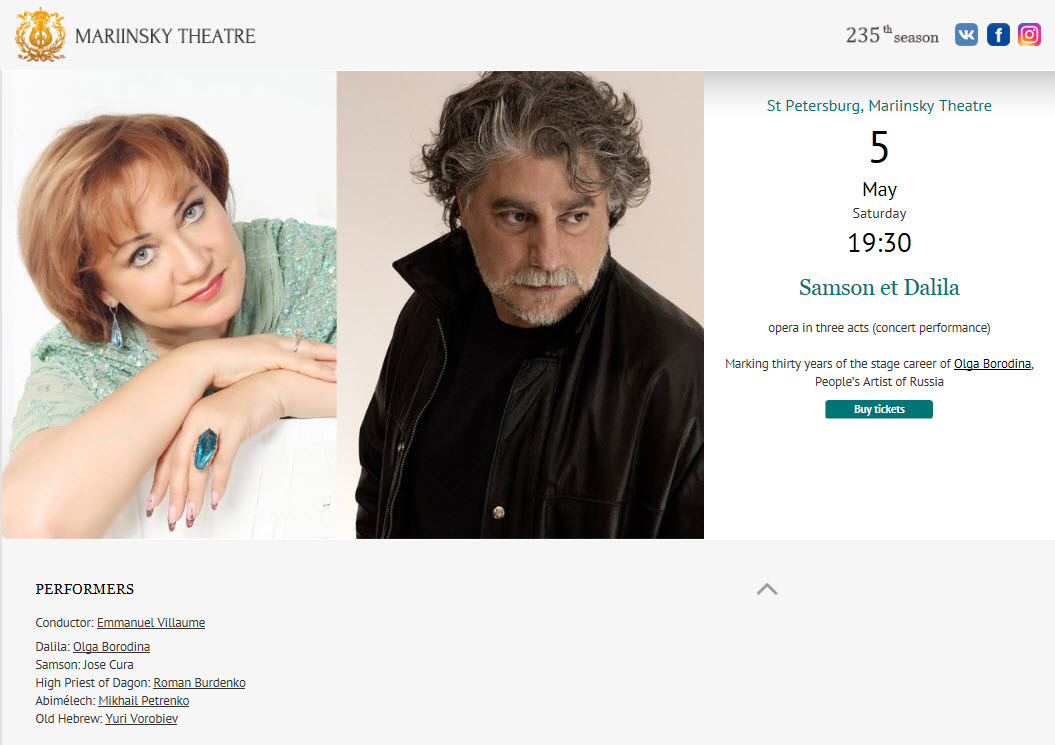
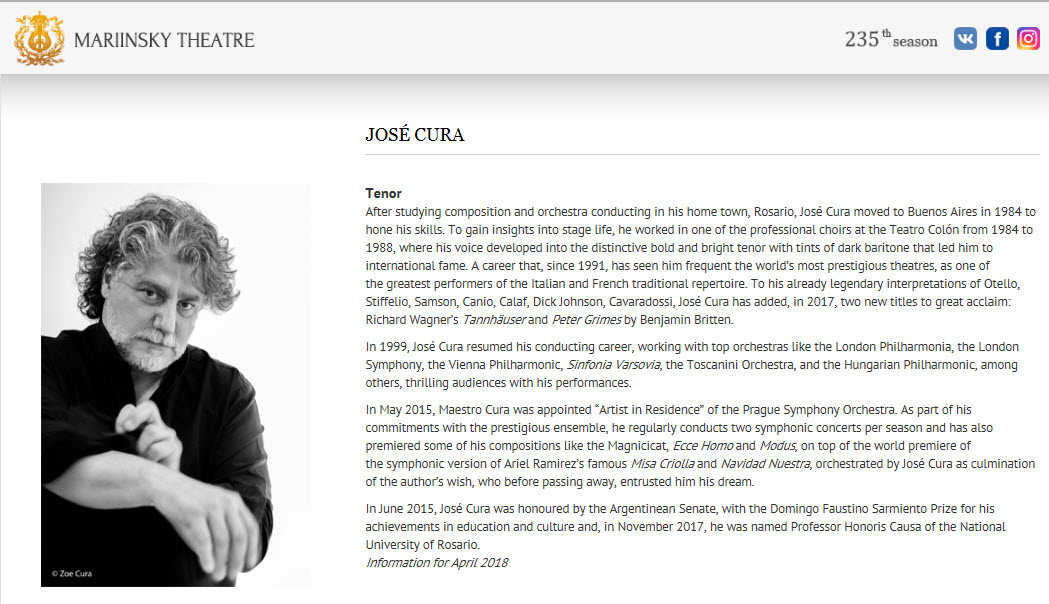
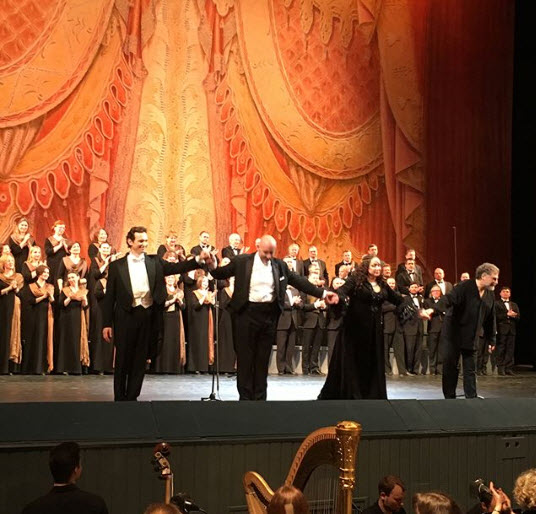
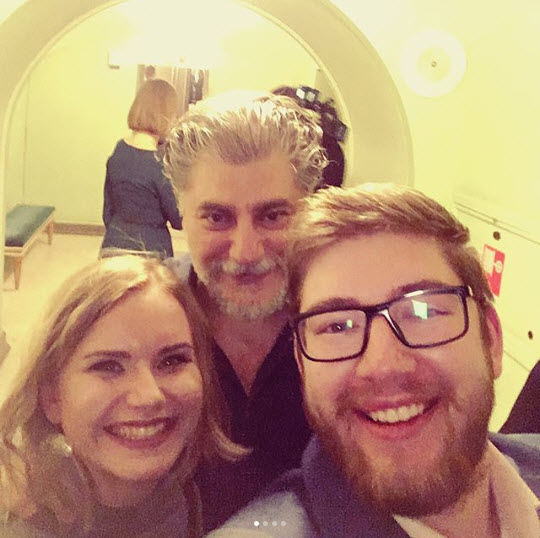
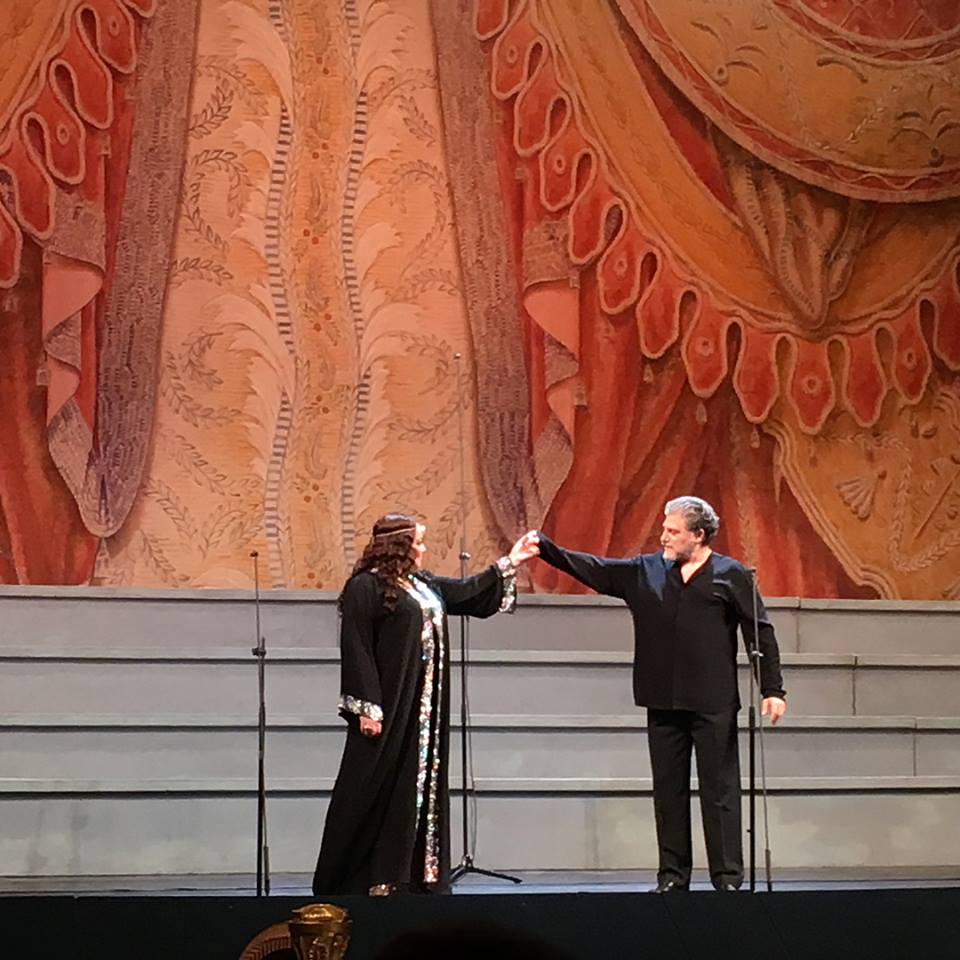
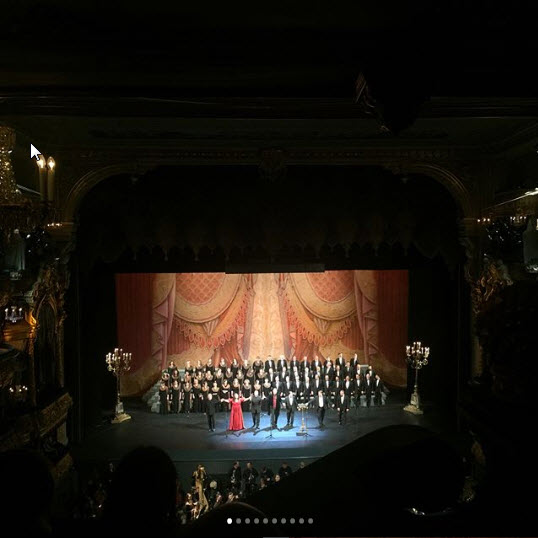
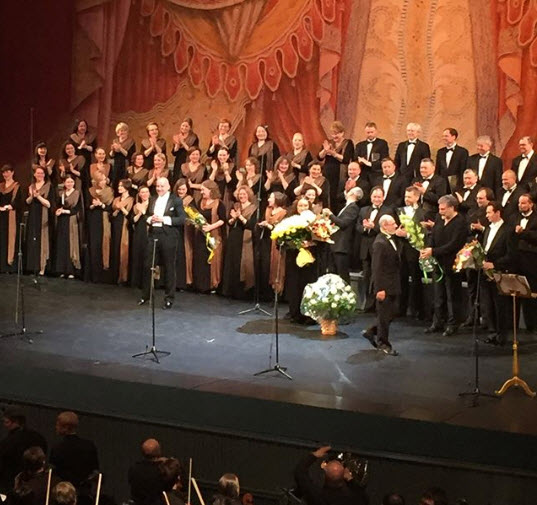
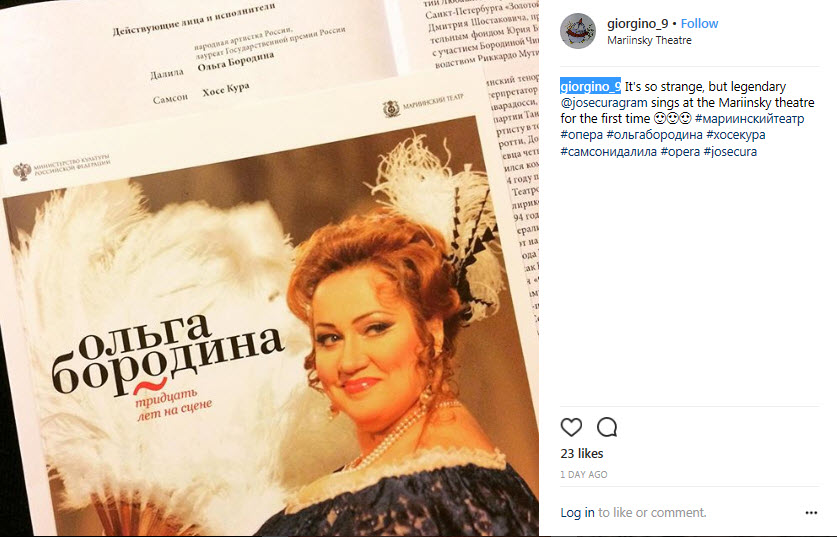
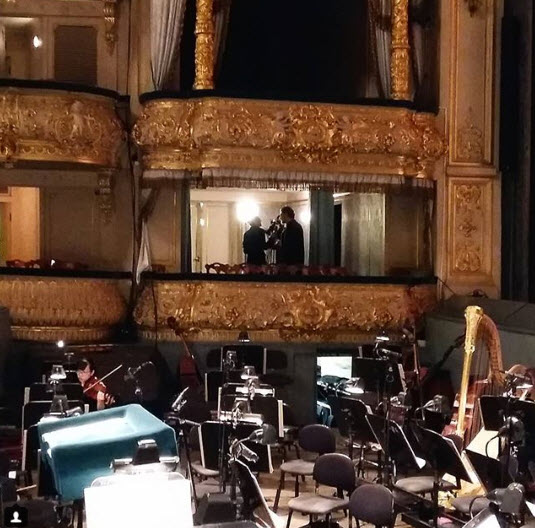
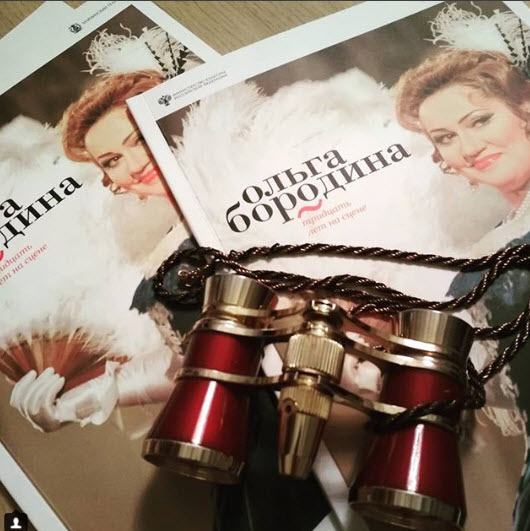
.jpg)
.jpg)
